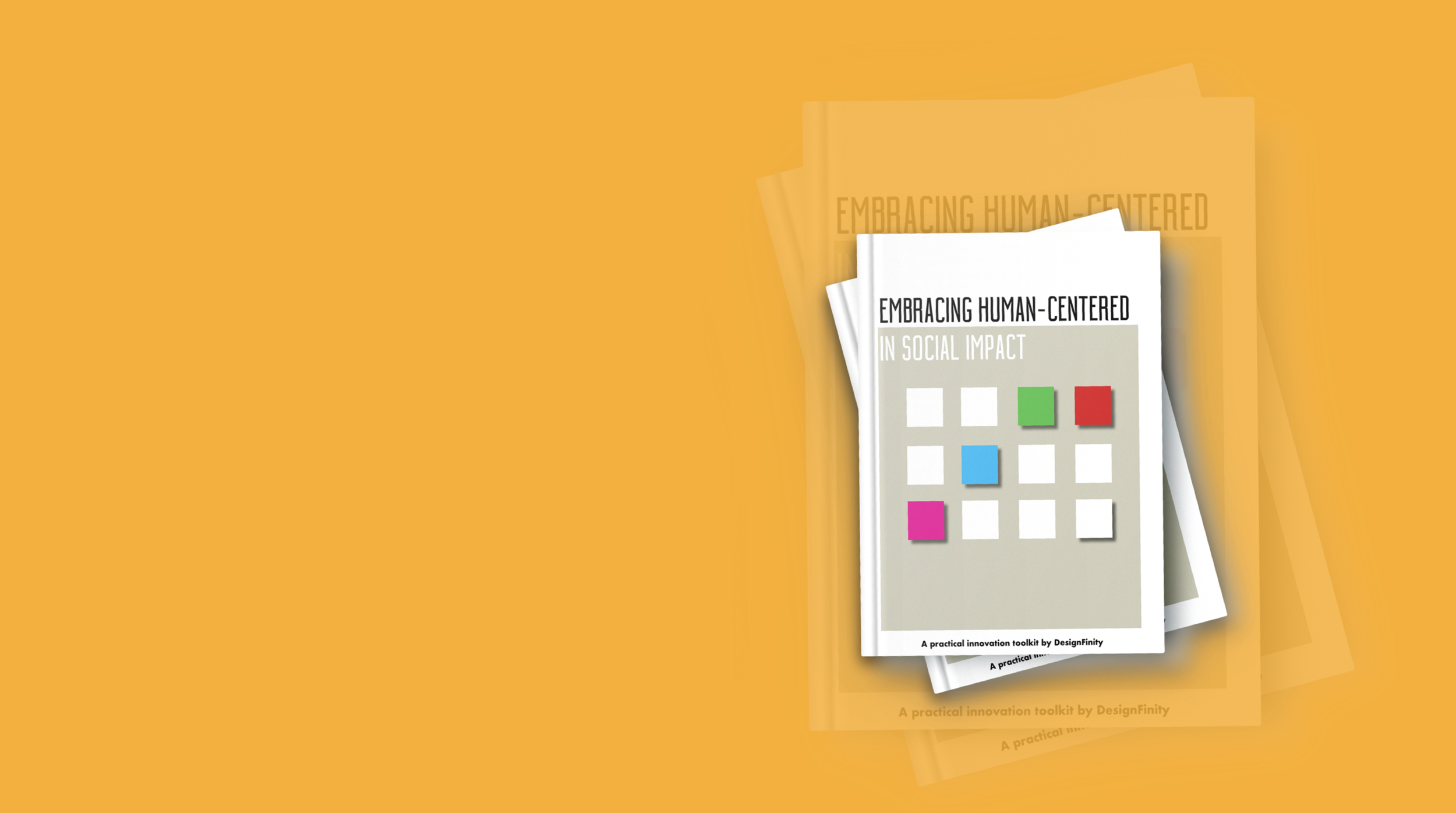
Embracing Human-centered in Social Impact
UX Research | Data Analysis | Concept Development |
B2B SCAD
Overview
The purpose of this project is to use design management methods to help small non-profit innovators. To invent, adopt or adapt any ideas that can deliver better results and practice human-centered design to help them in their internal innovation.
Thus Presenting, Embracing Human-centered in Social impact a toolkit by DesignFinity. To run creative and collaborative tools to create innovative functional products or processes for their manifests, users, or target audience.
Project timeline
10 Weeks
Team
Individual
M.A Final project
Role
UX Strategy
UX Research
Framework Design
Tools
Indesign
Photoshop
Figma
Keynote
Process
I choose double diamond design process model in this project, It helped me in Discovering: a deep dive into the problem we are trying to solve. Defining: synthesizing the information from the discovery phase into a problem definition. Develop: think up solutions to the problem. Deliver: pick the best solution and build that.
Define: Problem statement
Nonprofits are suffering from what’s been dubbed an “innovation-aspiration” problem: While 80% of the top 145 nonprofit leaders say the sector needs to change practices in order to make greater societal gains, only 40% believe they have the capacity to do that.
The problem is that this traditional approach increasingly delaminates from the expectations of donors who are less interested in giving to problems than they are in investing in solutions.
How might we apply Design Management methods in small non-profit boards to enhance their Innovation process?
Secondary research
The majority of nonprofits have annual budgets of less than $1 million which does not allow them to expand their operations or scale their solutions in 2020
nonprofits say they don’t have a vision compelling enough to unify the board, staff, and donors and facilitate decision-making.
Of Small non-profit sectors said they need a transition in their internal process in 2020
Of non-profits are operating their organization without any knowledge or access to a strategic plan in development sector
Secondary research takeaways
User Research methodology
Primary research
Surveys
64%
believes that they need a transition in their strategy and innovation process
86%
Owners of non-profit are looking for a change in their innovation process
72%
Donors are looking for a way to reach out their potential users to understand their behavior
66%
Small non-profit are leaning towards Human-centered approach but don’t have enough funds and knowledge
In-depth user interviews
Card Sorting
An affinity map was created with quotations from the interviews to look for patterns and gain deeper insights into the target audiences. This research created various visual models, including best quotes cloud, an affinity map, empathy maps, and personas which served to organize and re-structure the research data
Analysis and Synthesis of data
Empathy mapping and Personas
Key Insights
Organization has to transition from it's traditional approach & create better communication level
Donors want to see Non-profit org. should adapt to digital tools
Organization are looking for Strategic tools and strategic planning methods for their innovations and ideas
Organization has to transition from it's traditional approach & create better communication level
Donors want to know about their donations impact and would want to know what the organization is upto
The organization needs an effortless strategy, planning and tools with essential resources
Volunteers and donors would like to see more transparency from the social impact organizations
Sole founders face tough challenges while working on solutions or any product. They need an assistance with the process
Creative matrix
Diverse concepts
1
Design thinking tool-kit for non profit
2
Guide to donor management
3
Guidelines for organizing digital workshops & events
Facilitating workshop
I facilitated the workshop among peers & participants from my interview. Took their feedback and will move on with my first concept and build a business model around it
Developing toolkit - Journey
Enter
Download
Learn
Engage
Product phase
Develop a plan
Business model
Learning loop
SWOT analysis
Collect insights
Interview guide
Target group
Persona creation
Generate ideas
Creative workshop
Thinking hats
Value mapping
Test ideas
Prototyping testing plan
Improvement triggers
Monitor and evaluate
Prototyping & Testing
High-fidelity User-feedback
How would I know what tools to use at what time? How many people I’ll be needing around?
How much time will each task take?
By looking at it I should be able to read the tool I’m using
Overall the toolkit is helpful for me I would want to see the boxes colors in white too as it presents positivity to me
The design can be overall well balanced
I like the idea of involving the methods and tools you got the inspiration from
By looking at it I should be able to read the tool I’m using
This looks insightful tool for my work and I would wan to know about the duration of this activity
Do you also provide video with this?
Will I be able to take a print of this tool and work over?
Why don’t you include the 4 colors on the cover page and match it along with the HCD process
I can relate myself after reading the HCD process and how much it makes sense to incorporate these tools within the organization
Adding visuals which I can resonate with is so compelling
Just few overall alignments and this is a perfect toolkit for me as a userDo you also provide video with this?
Brand identity
High fidelity
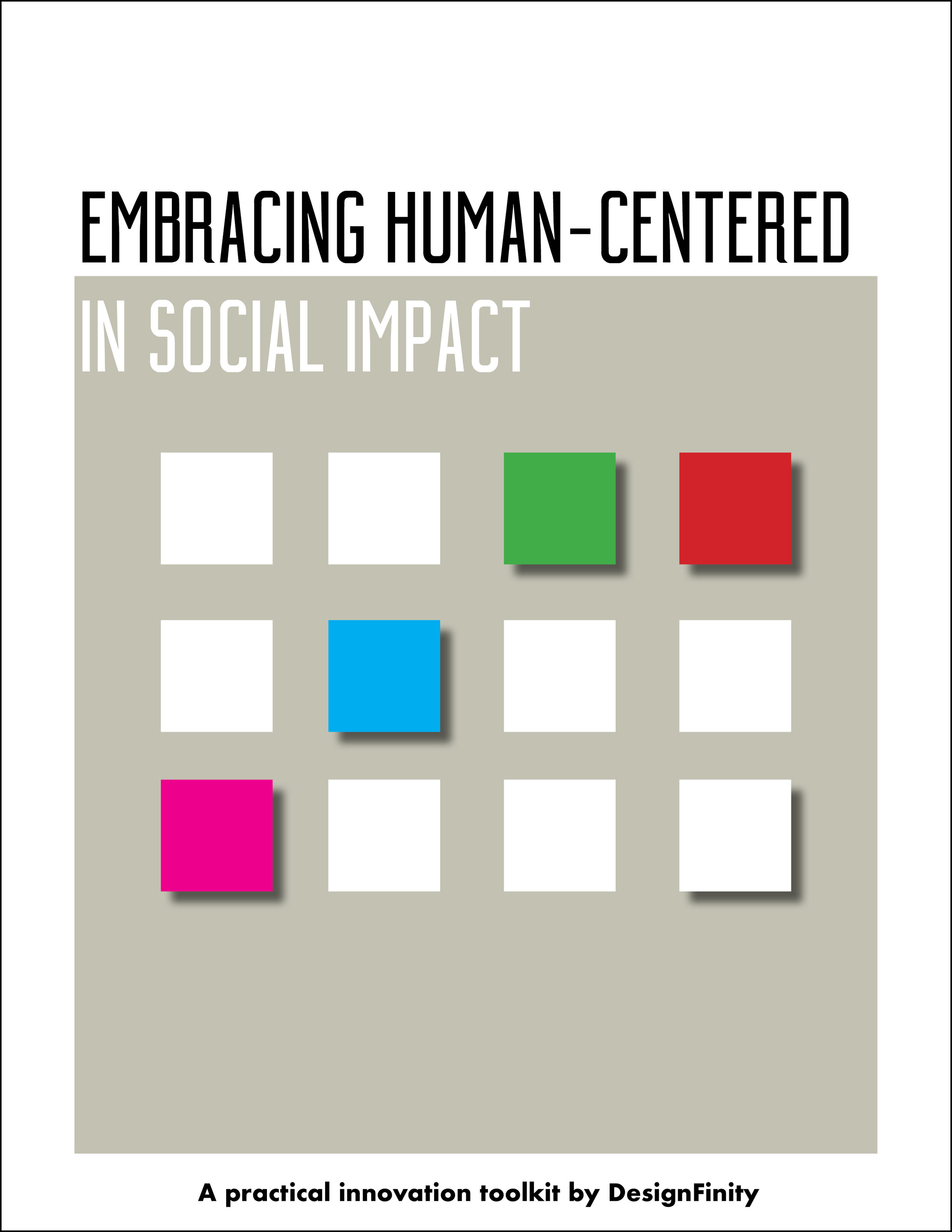
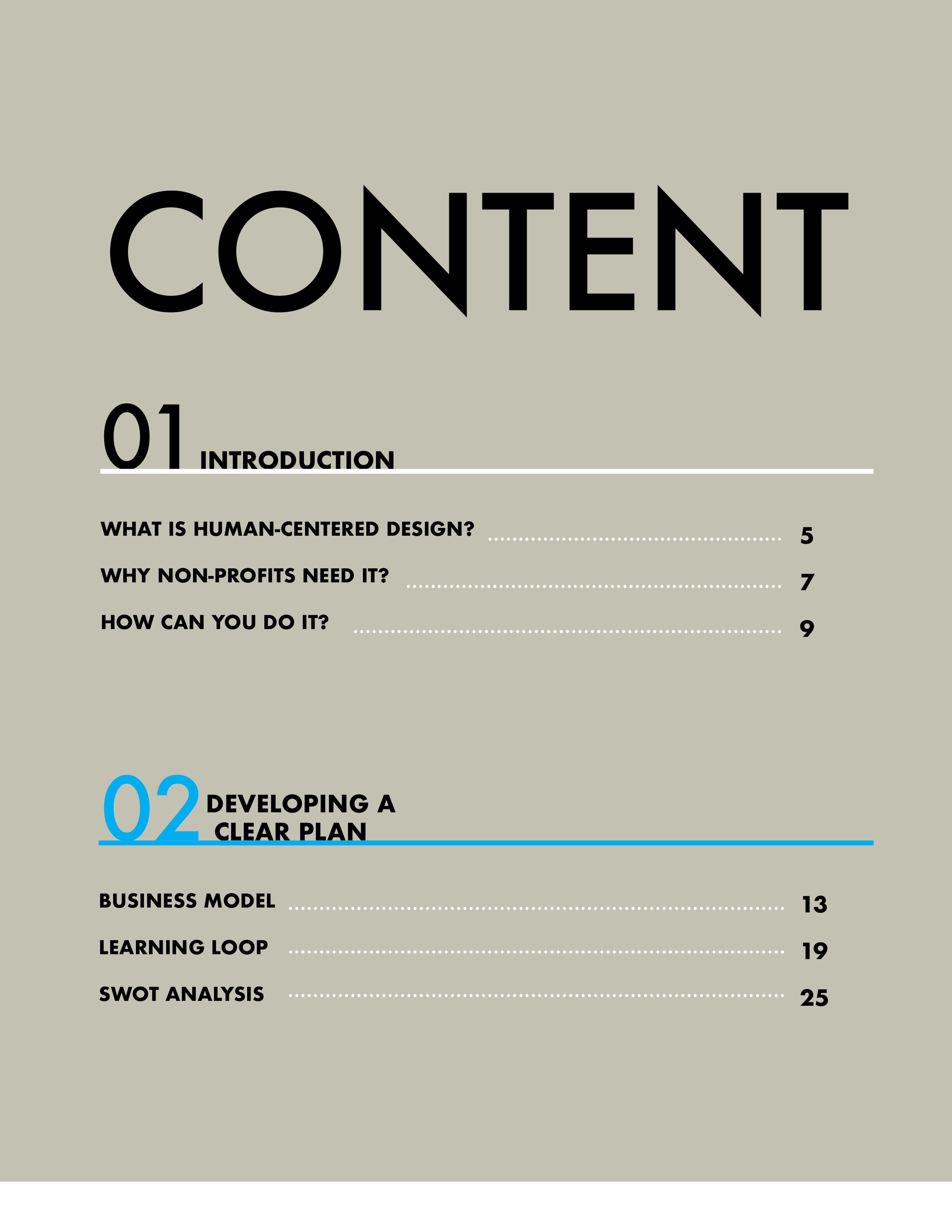
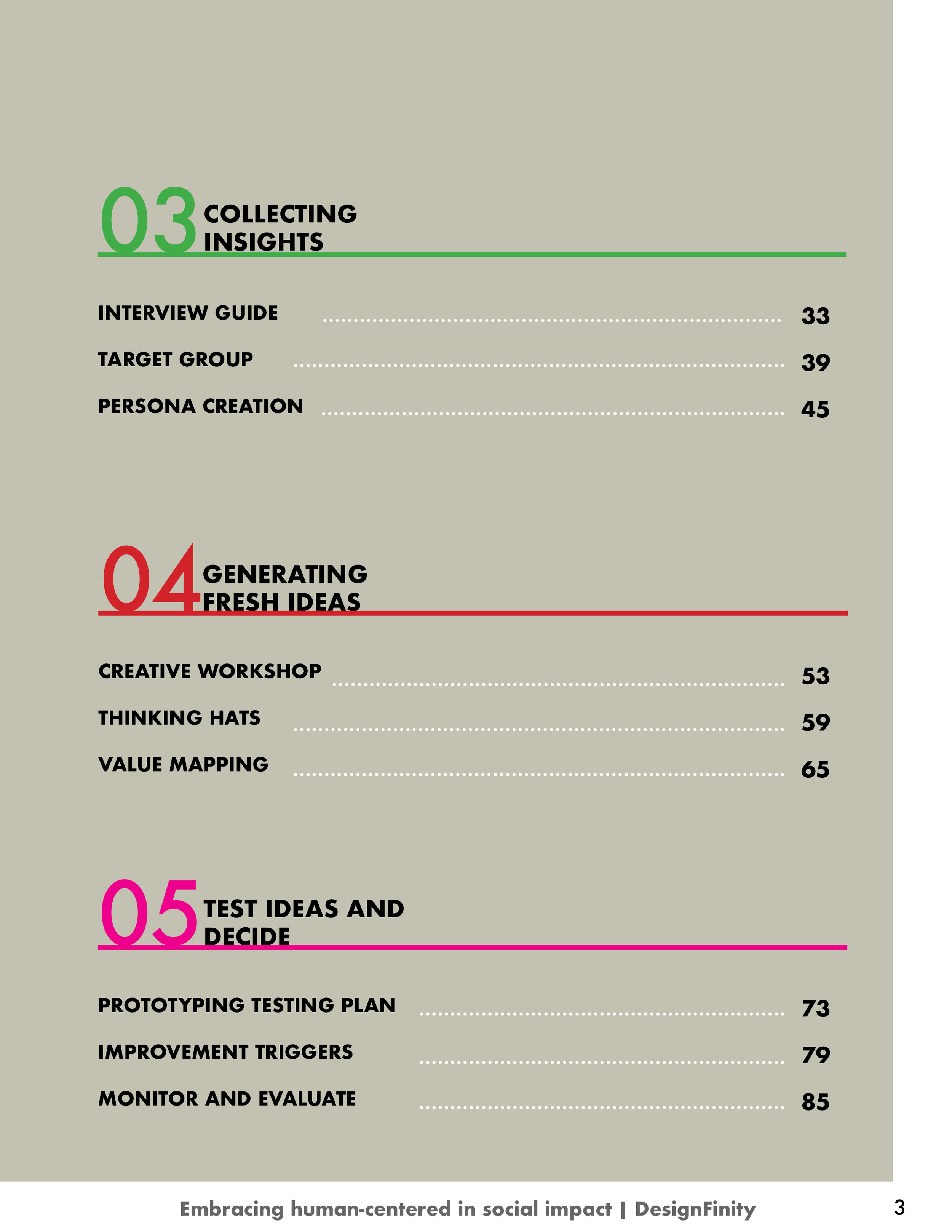
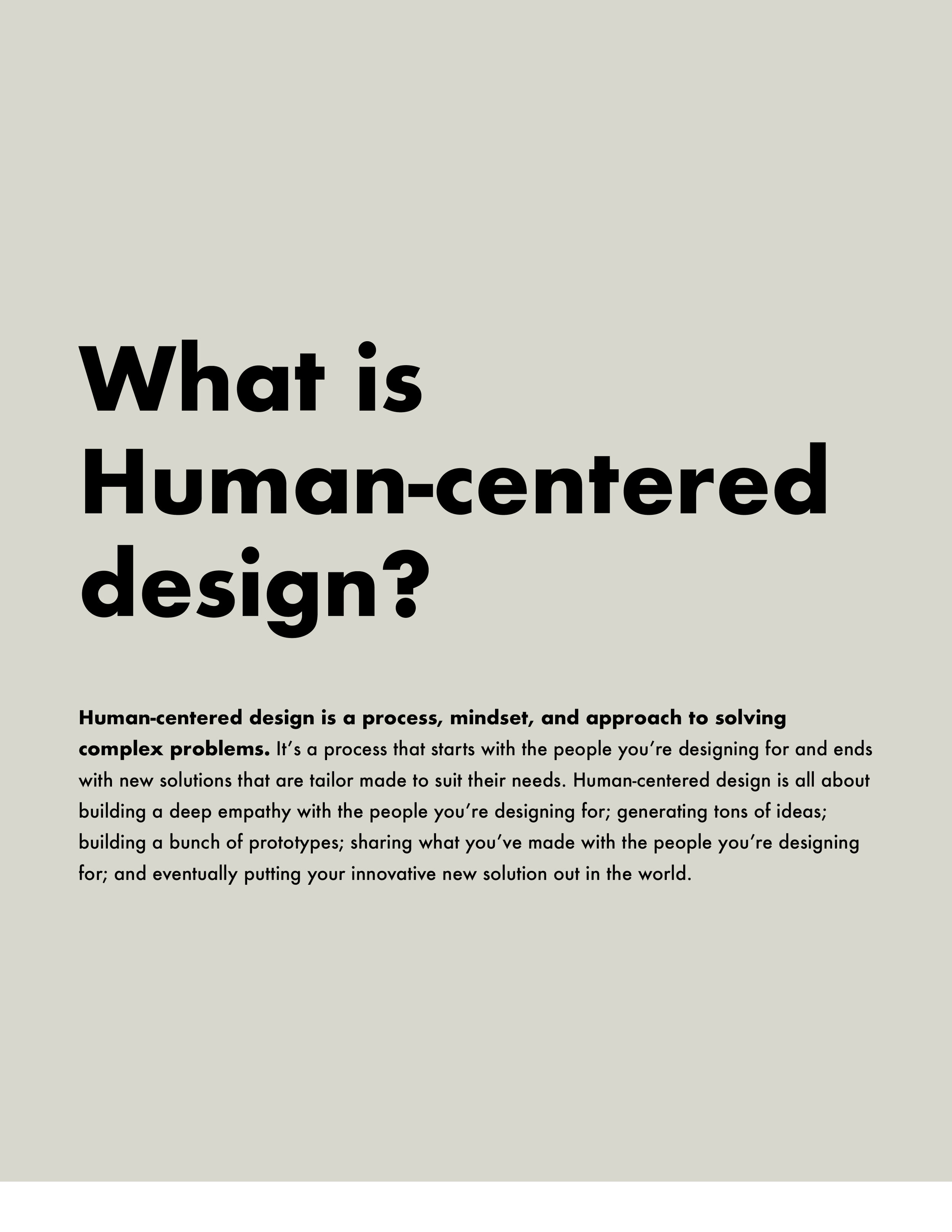
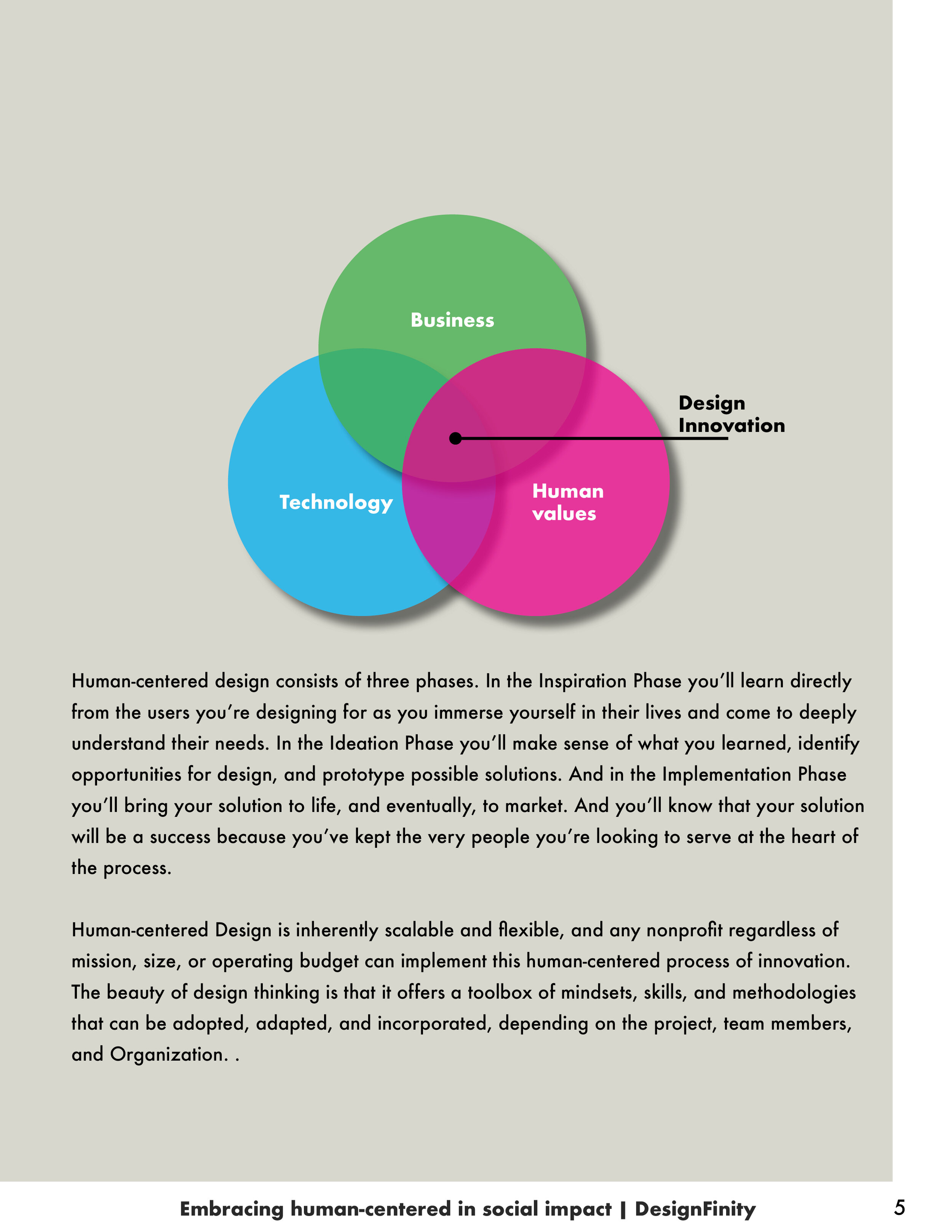
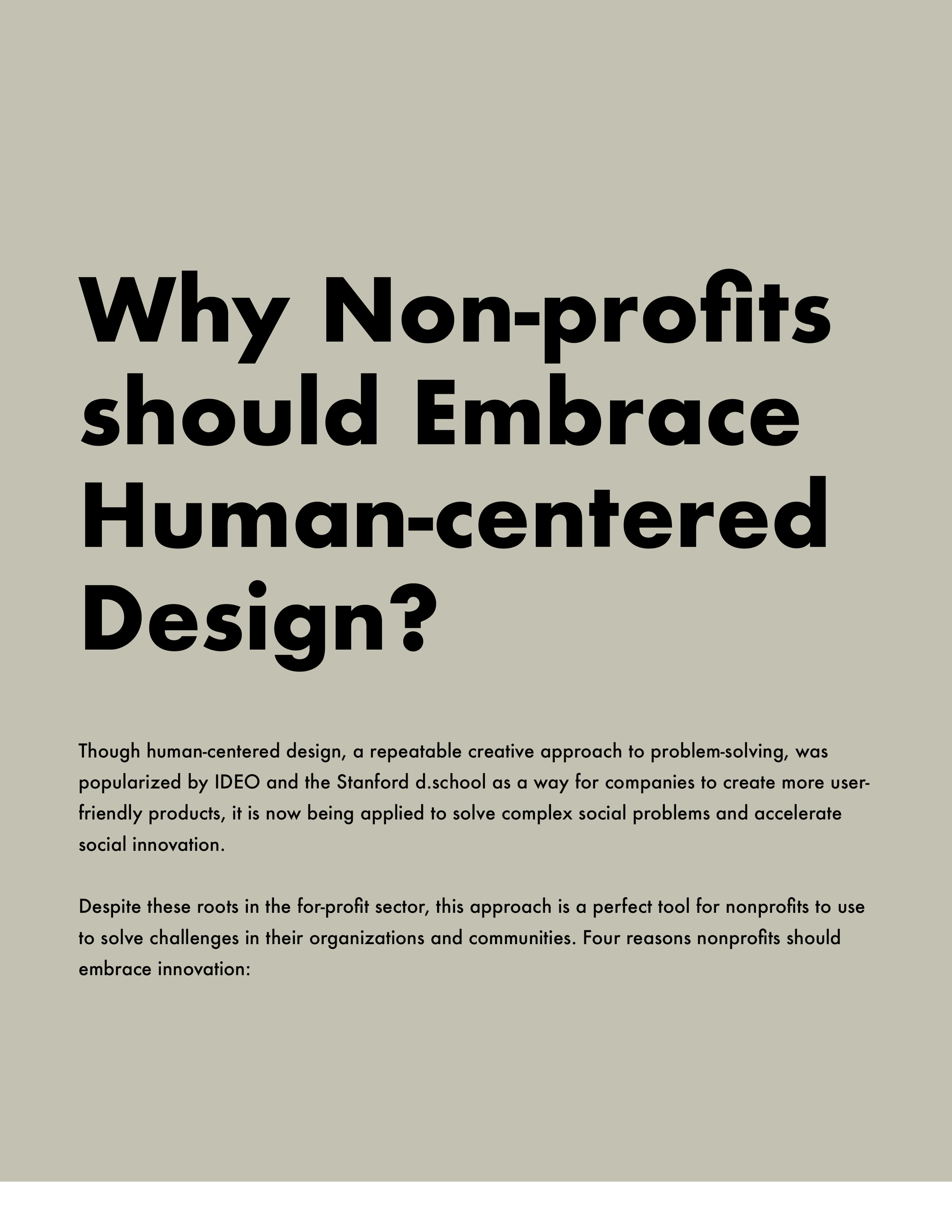
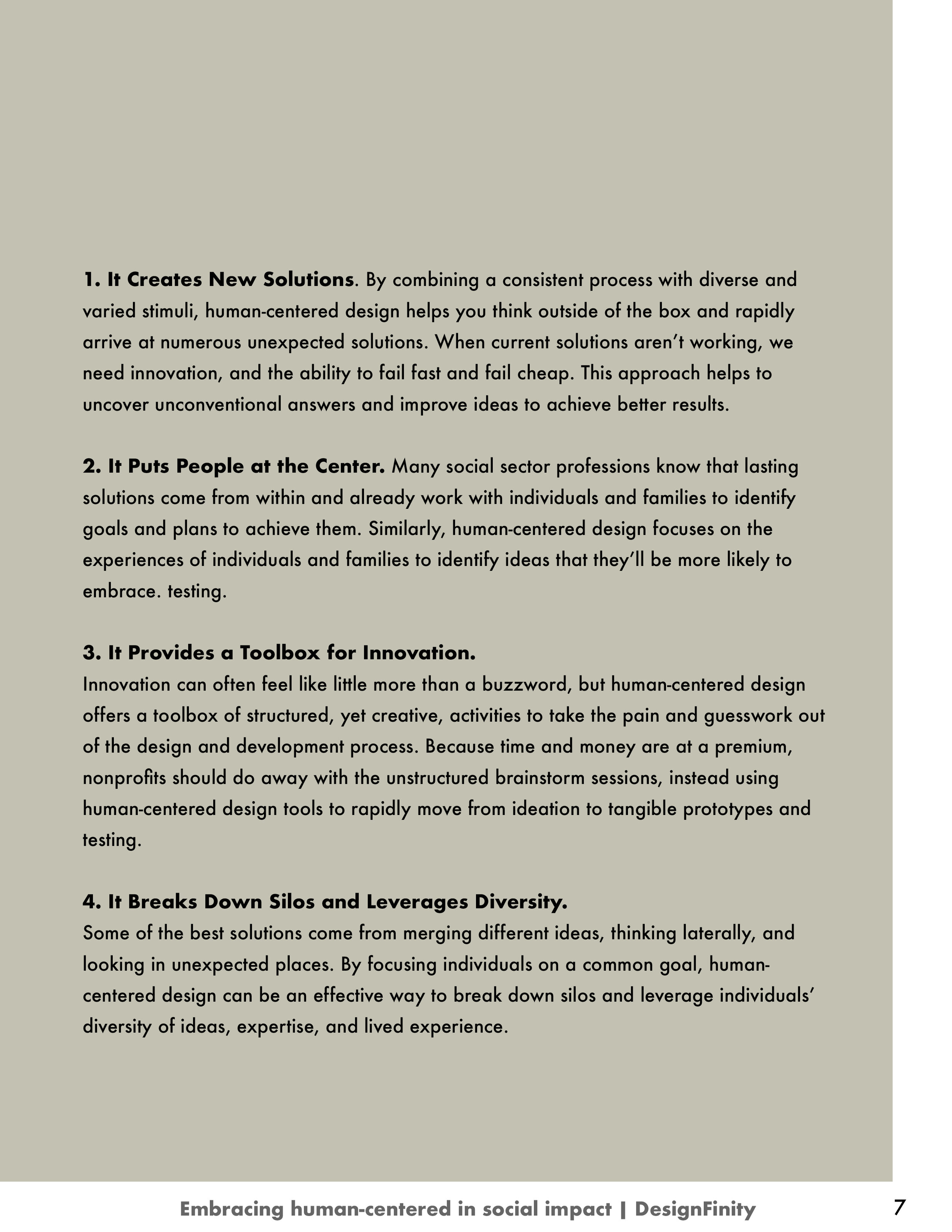
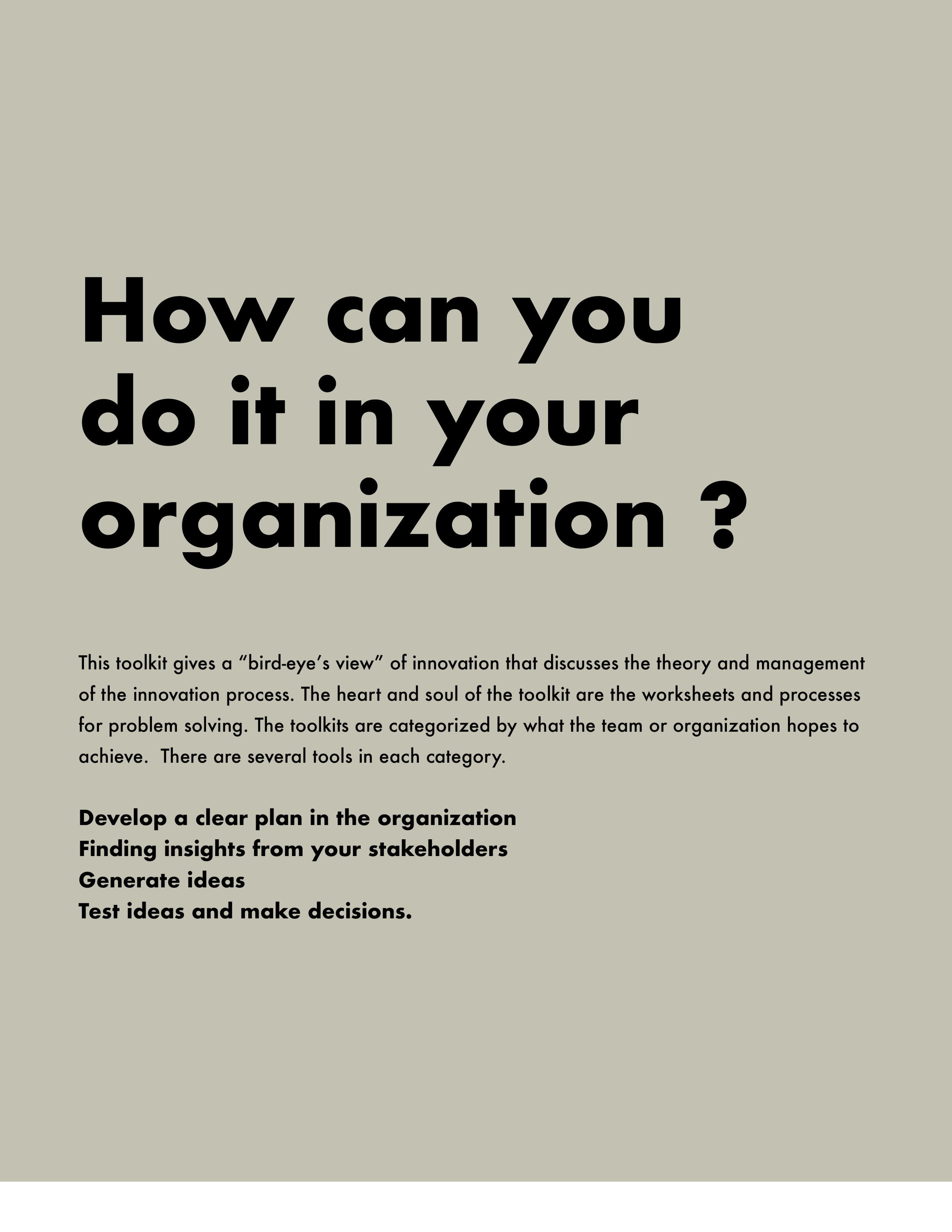
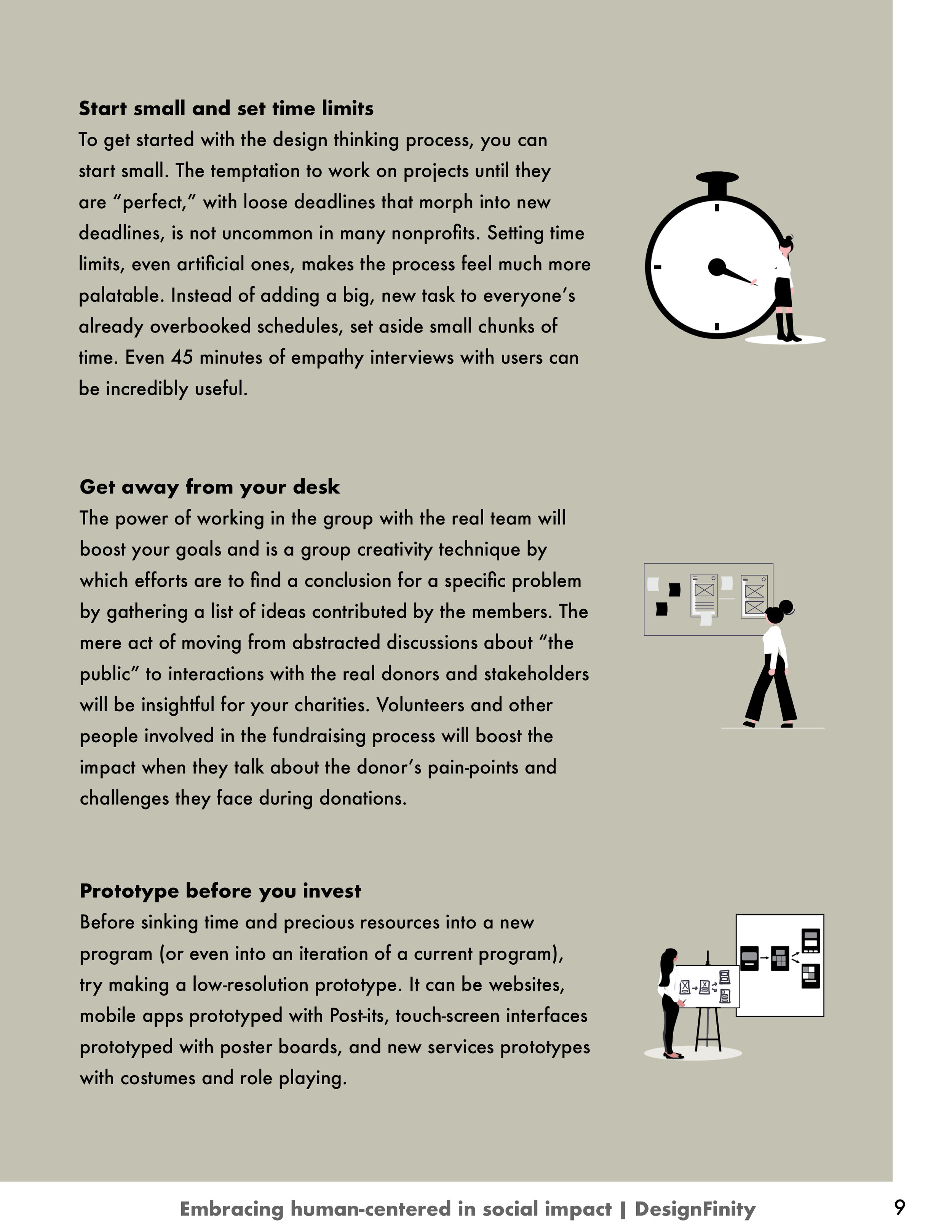
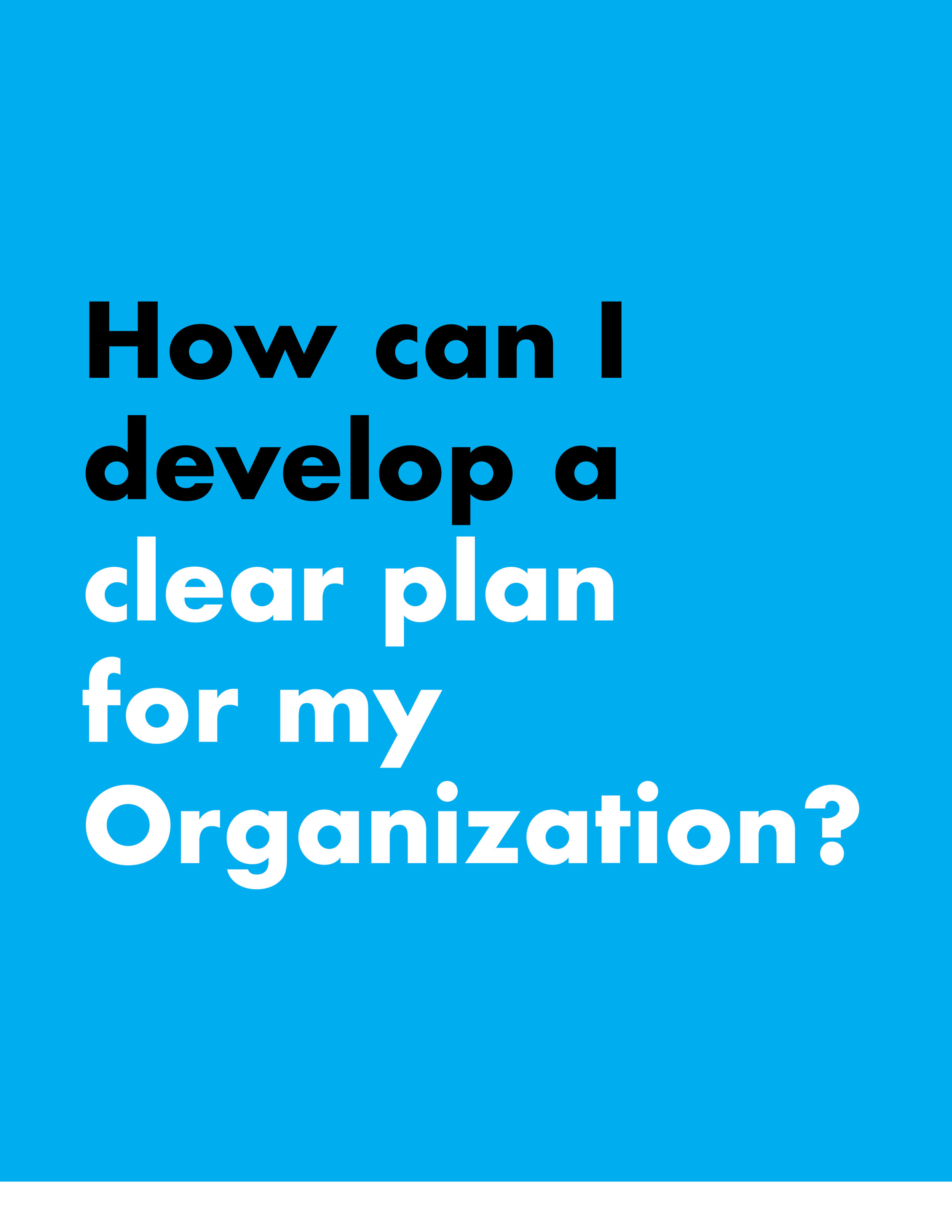
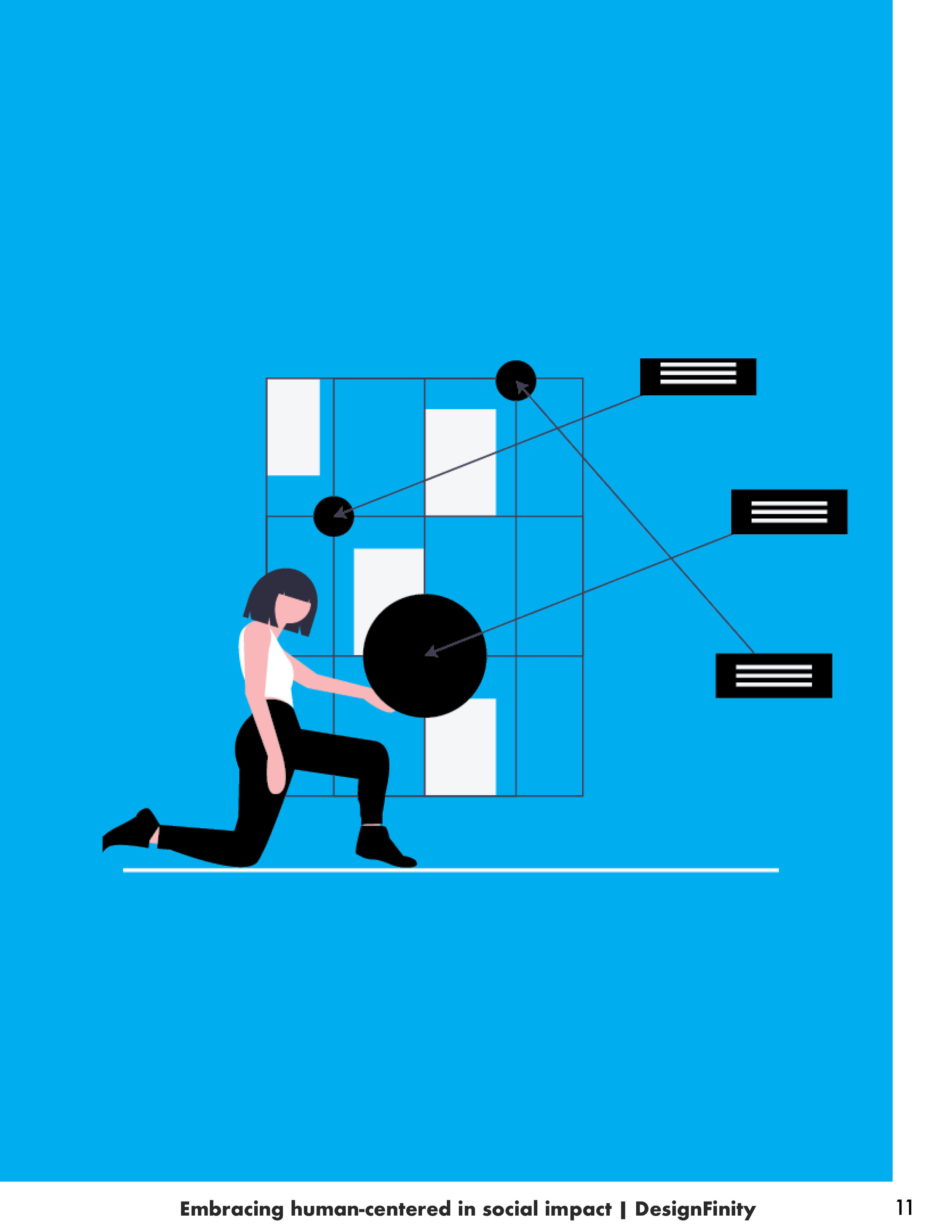
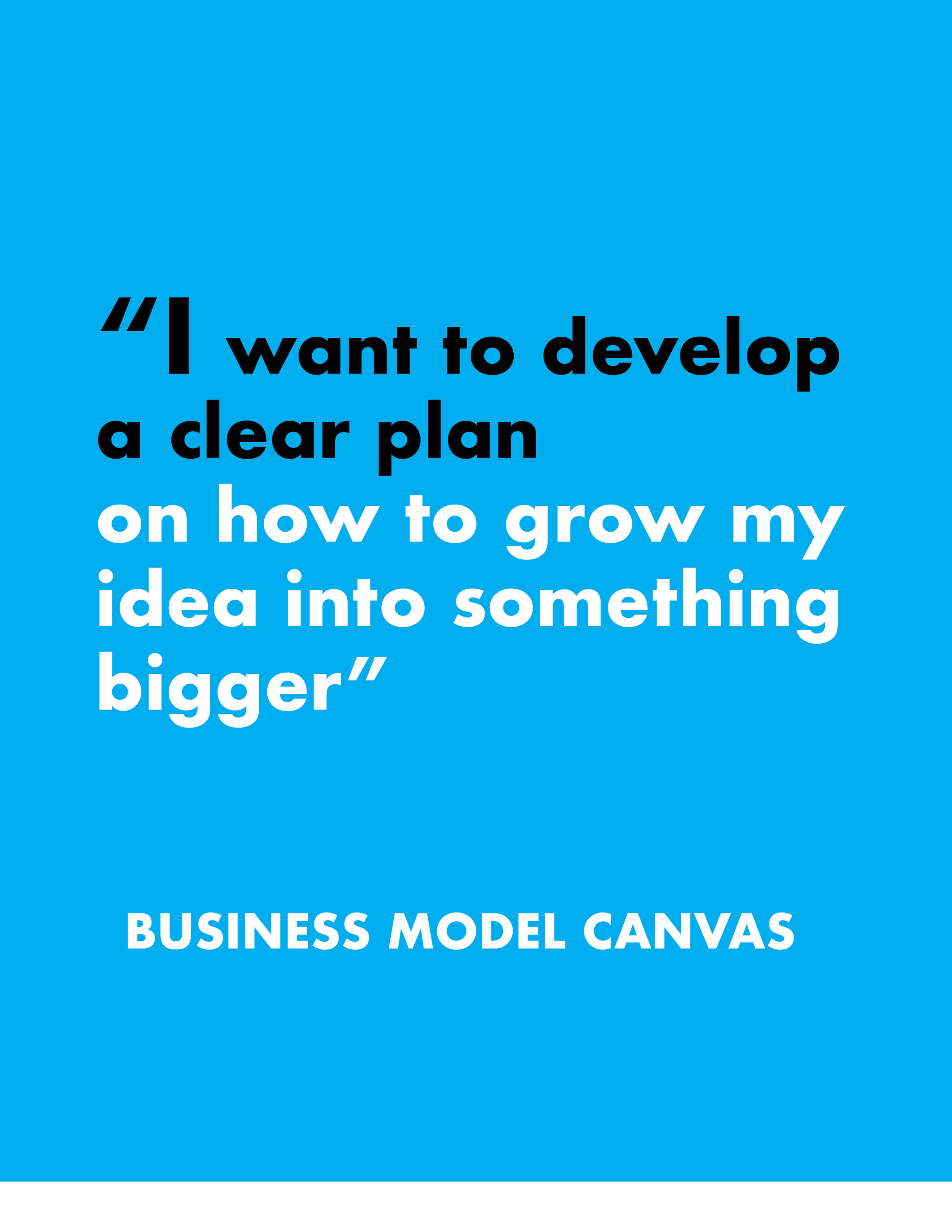
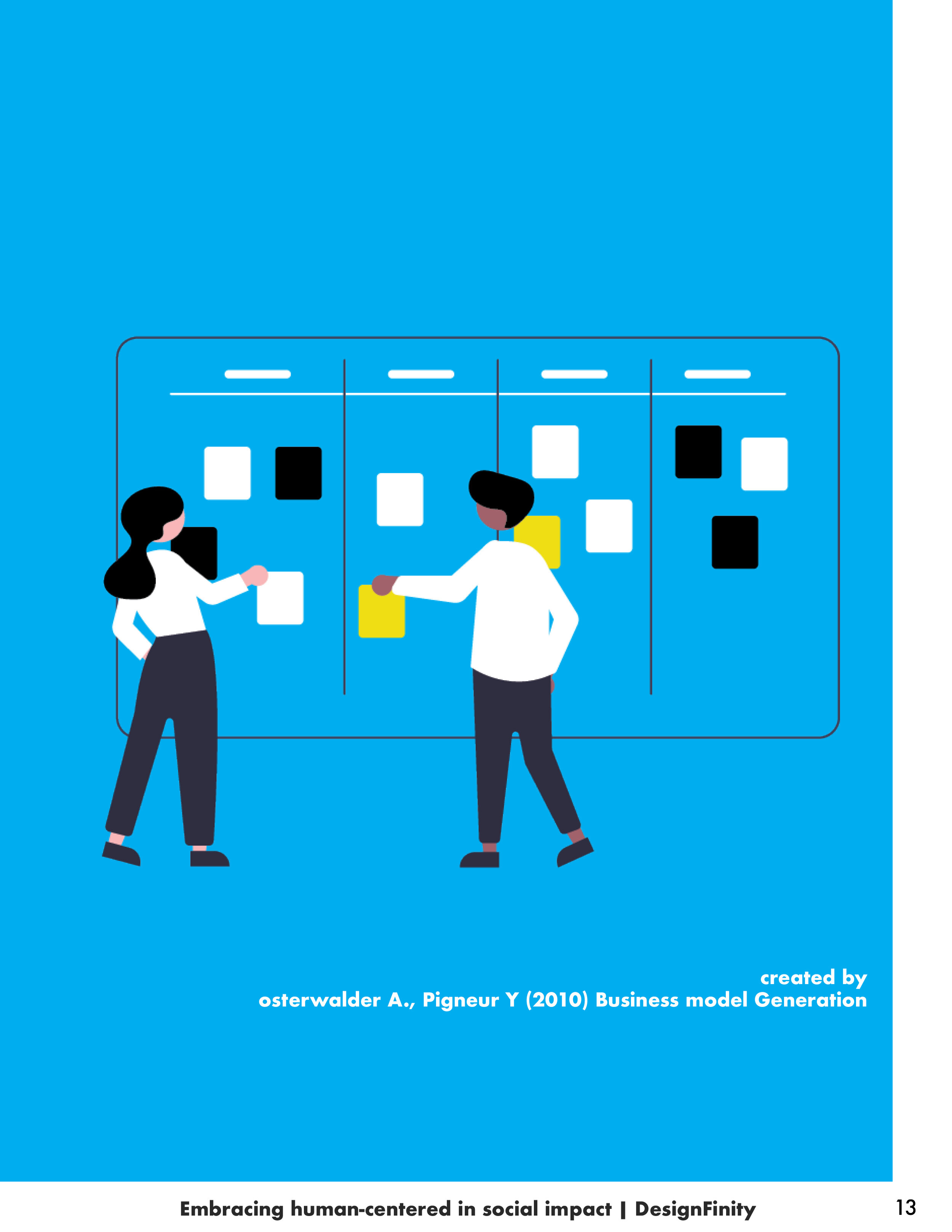
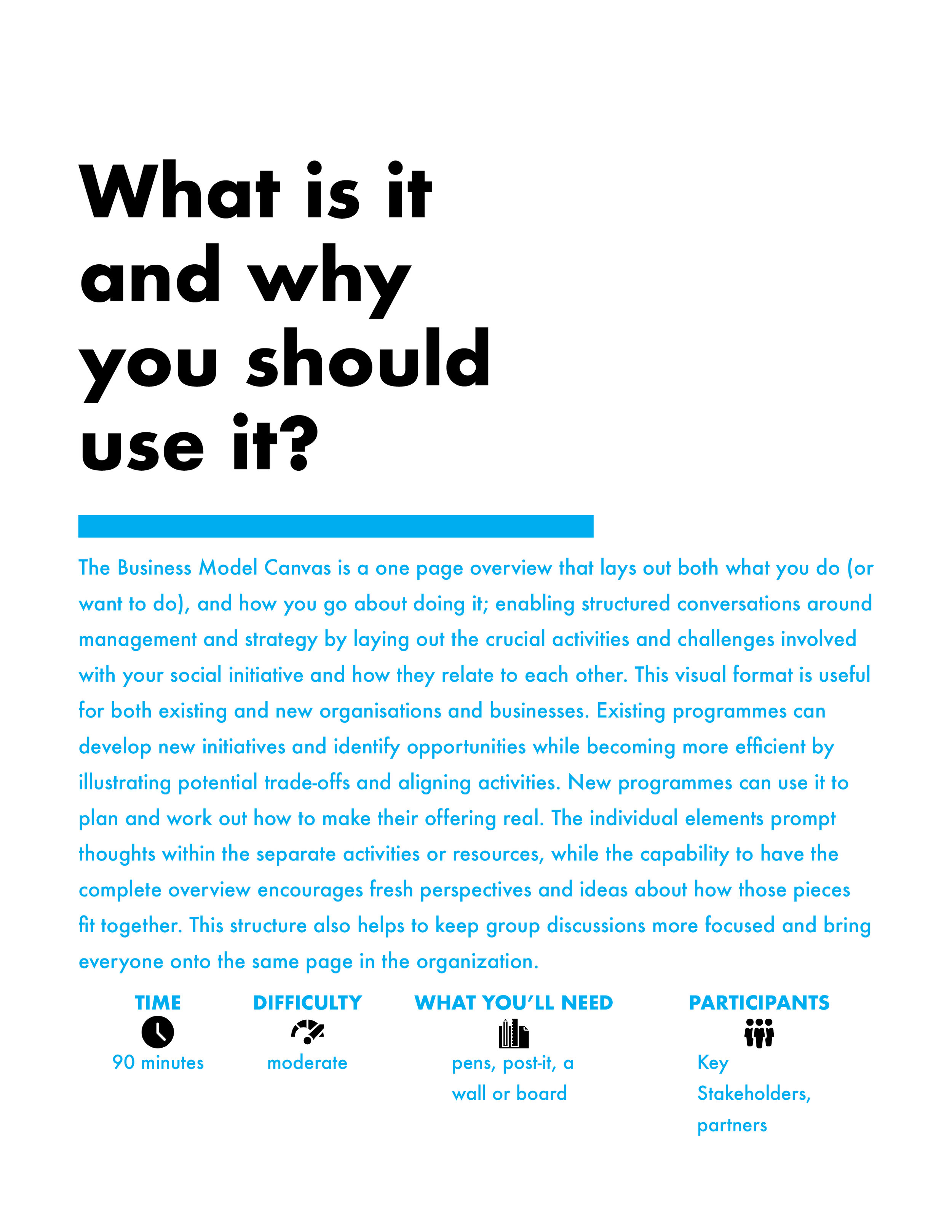
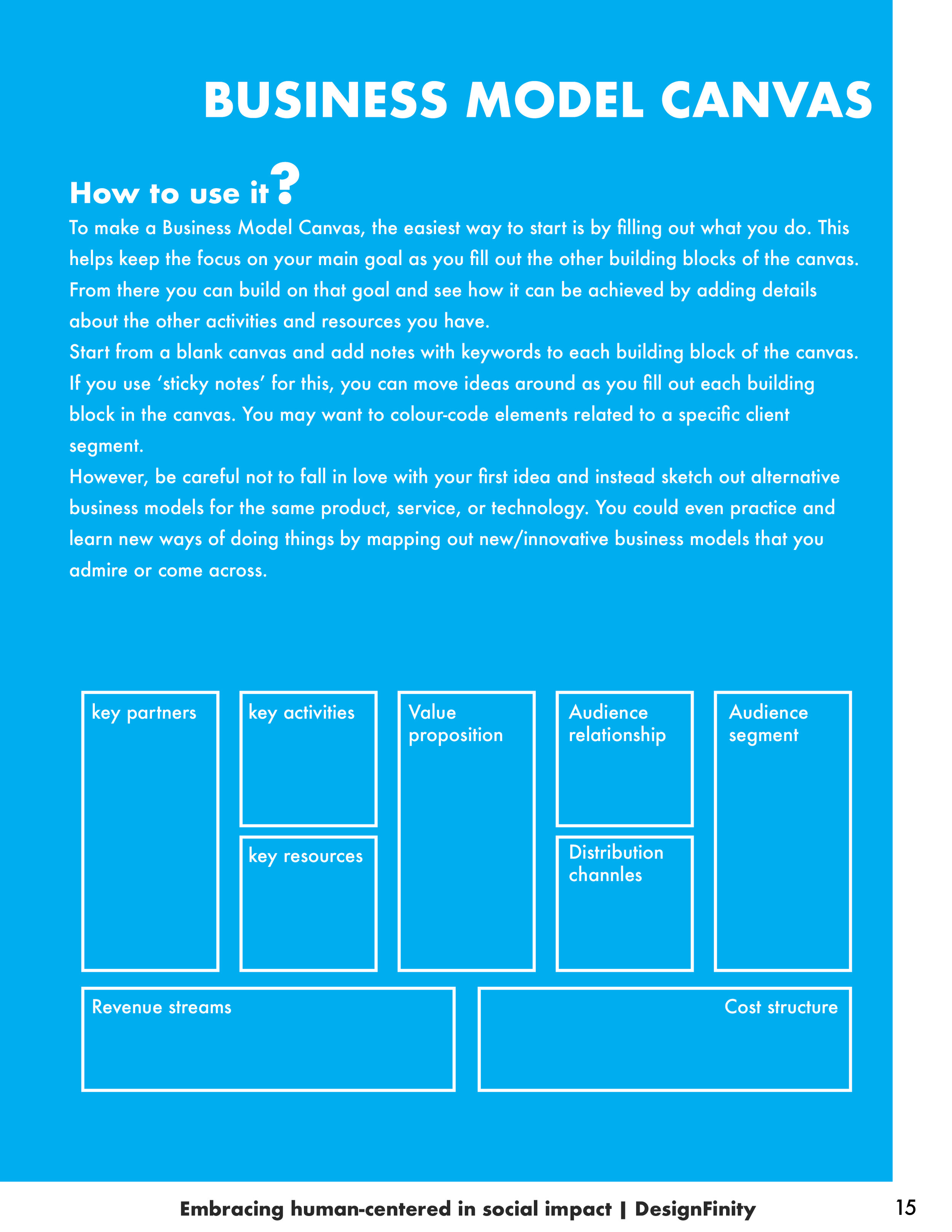
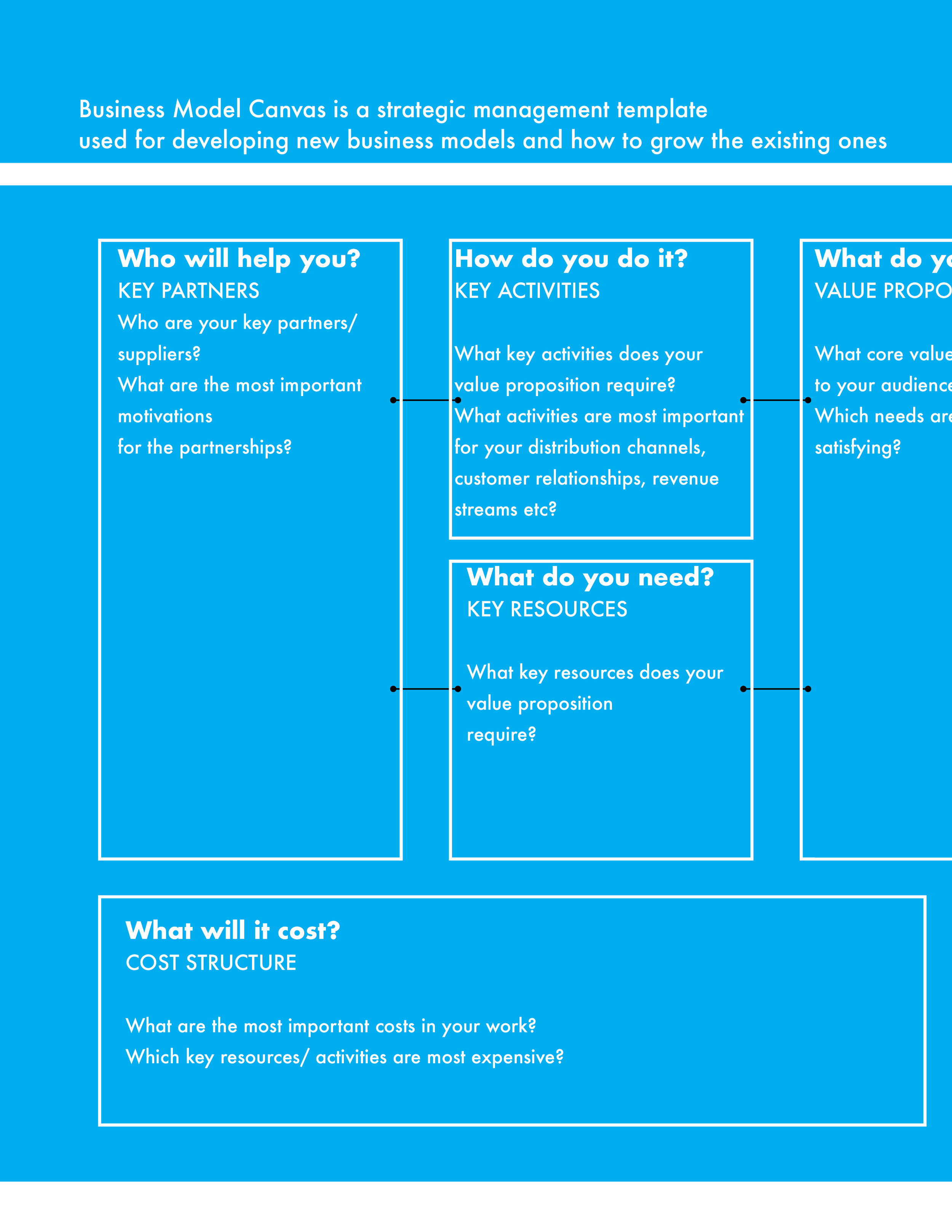
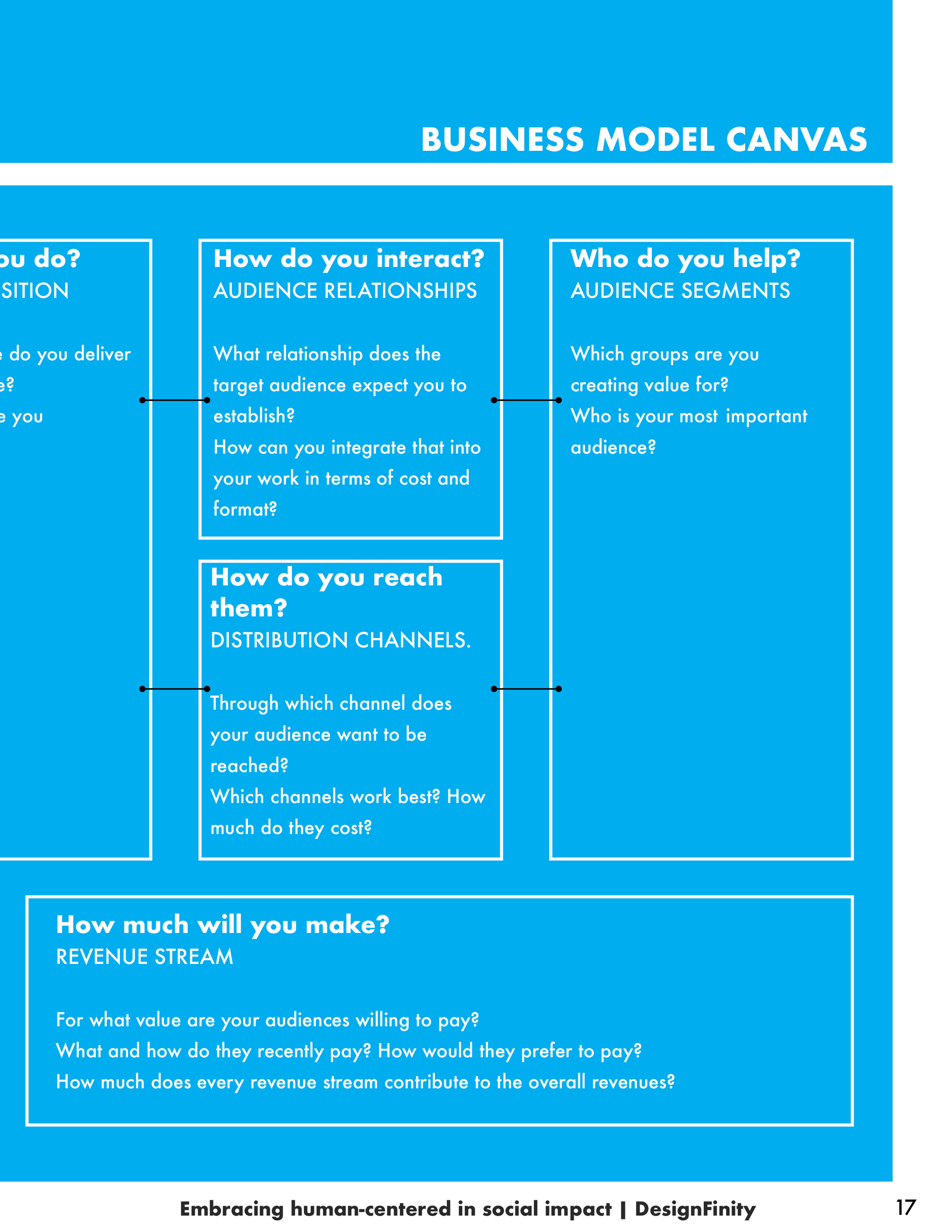
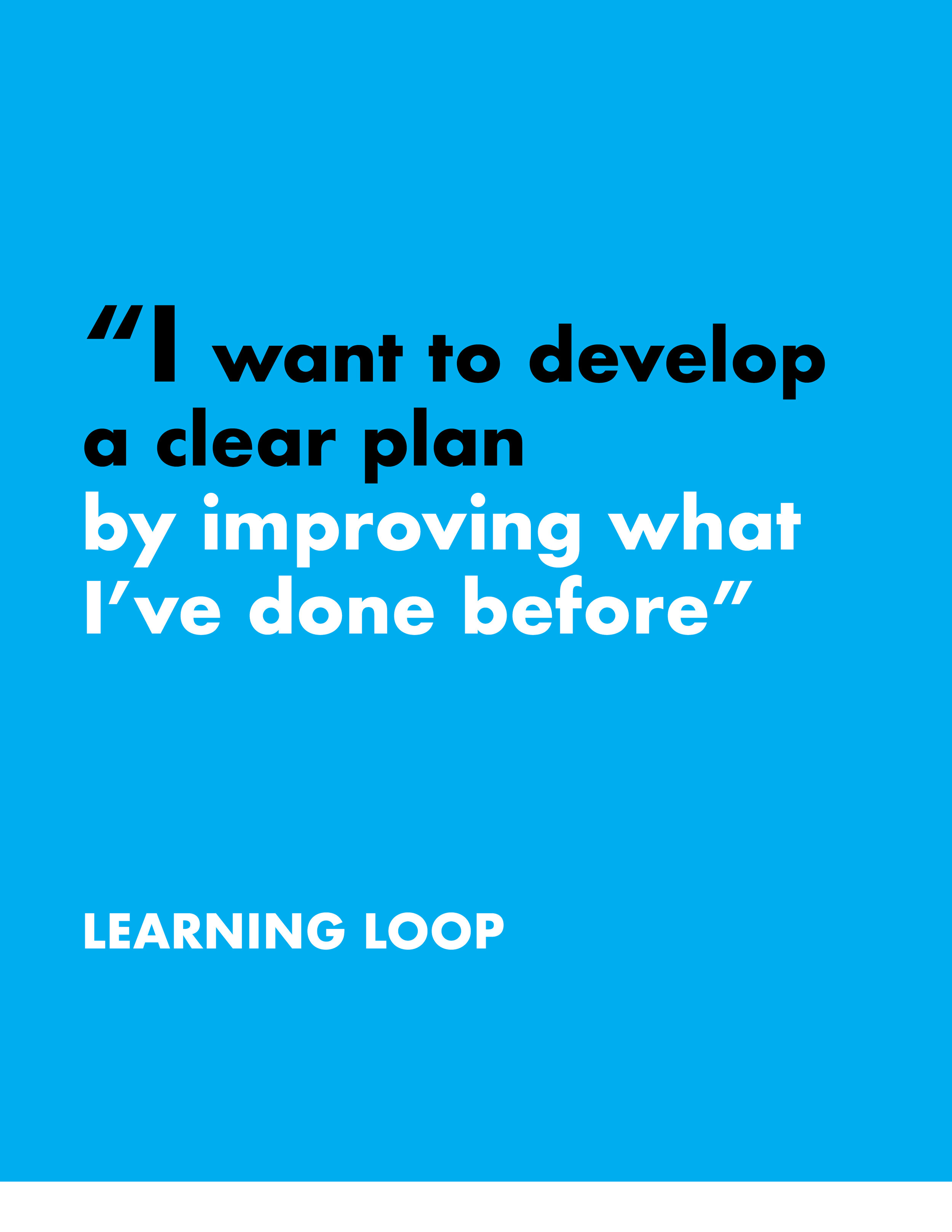
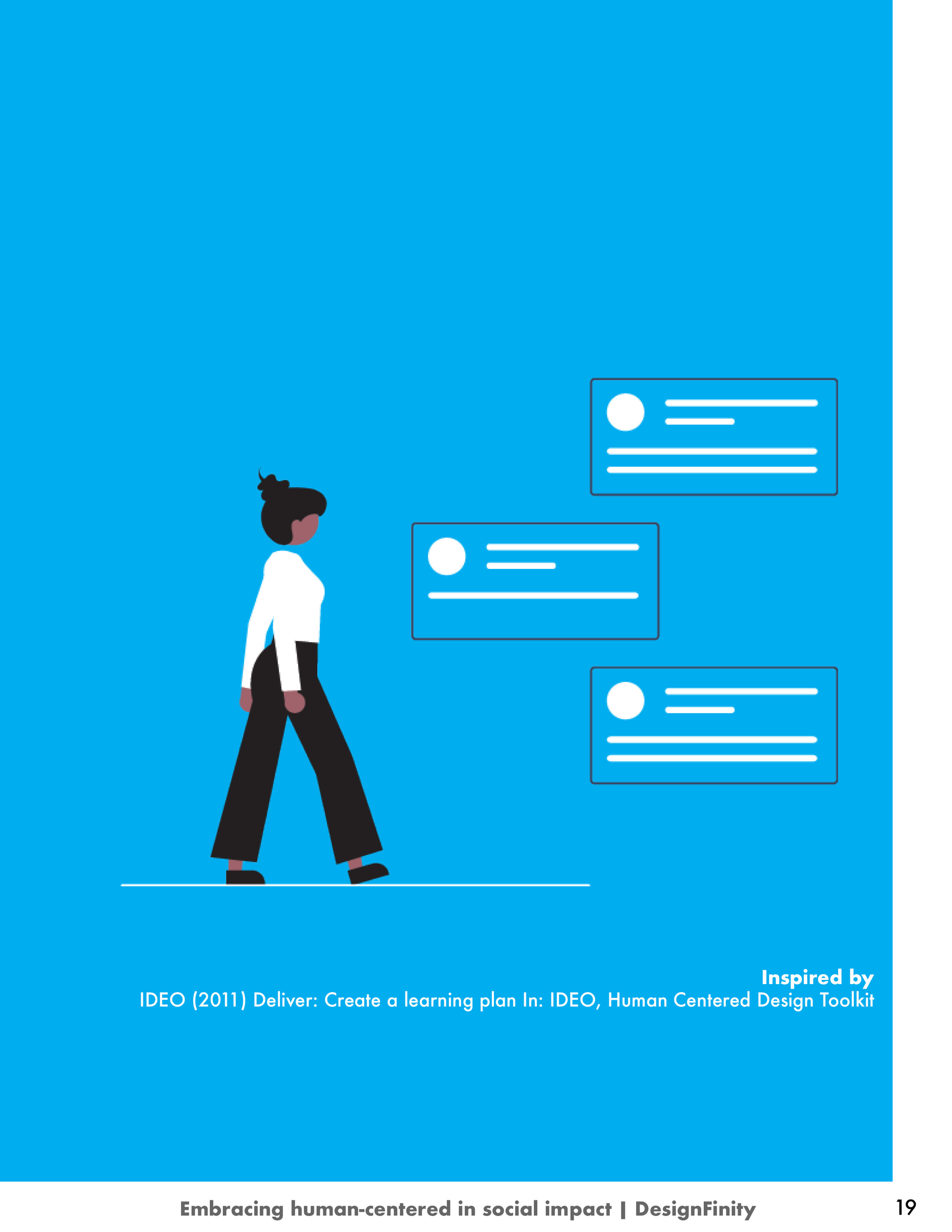
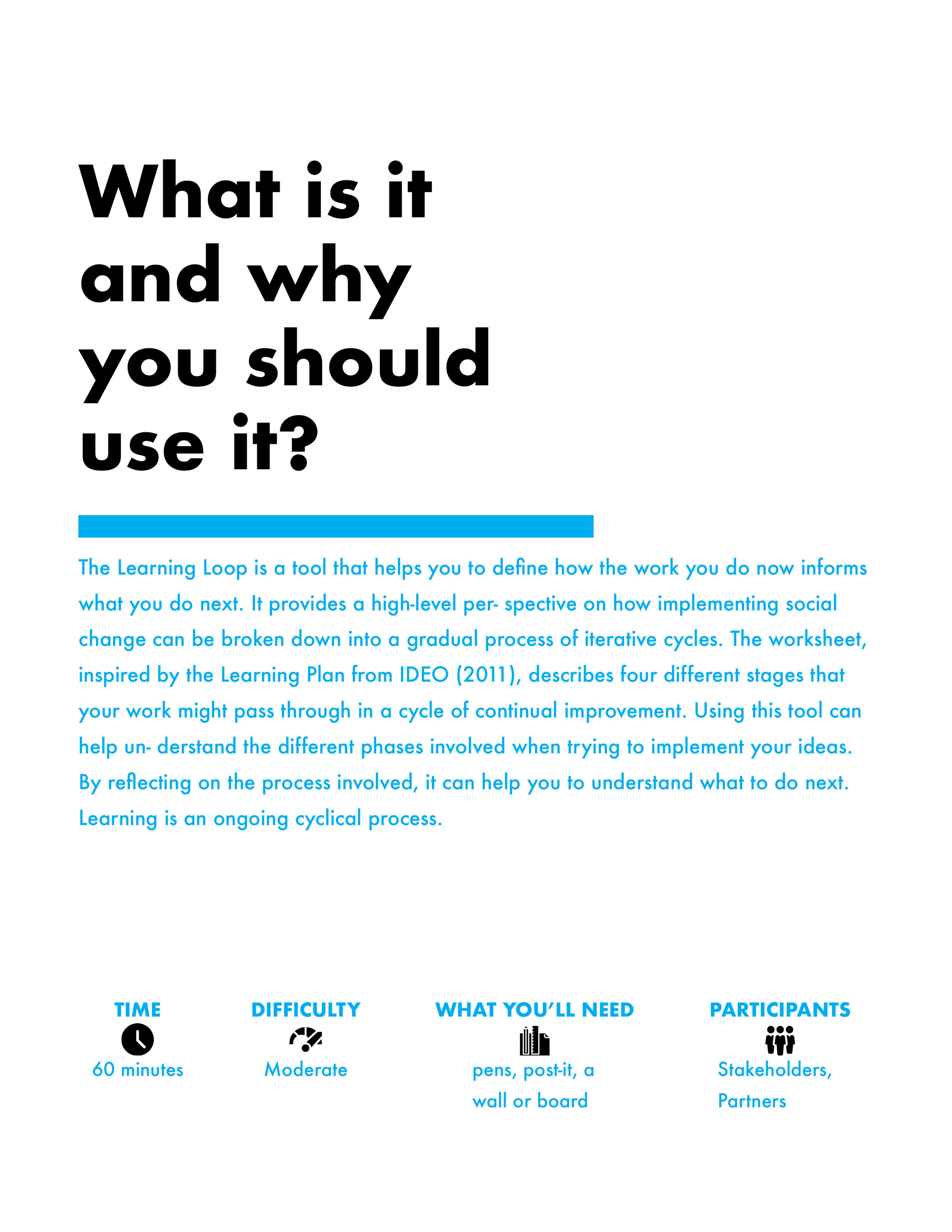
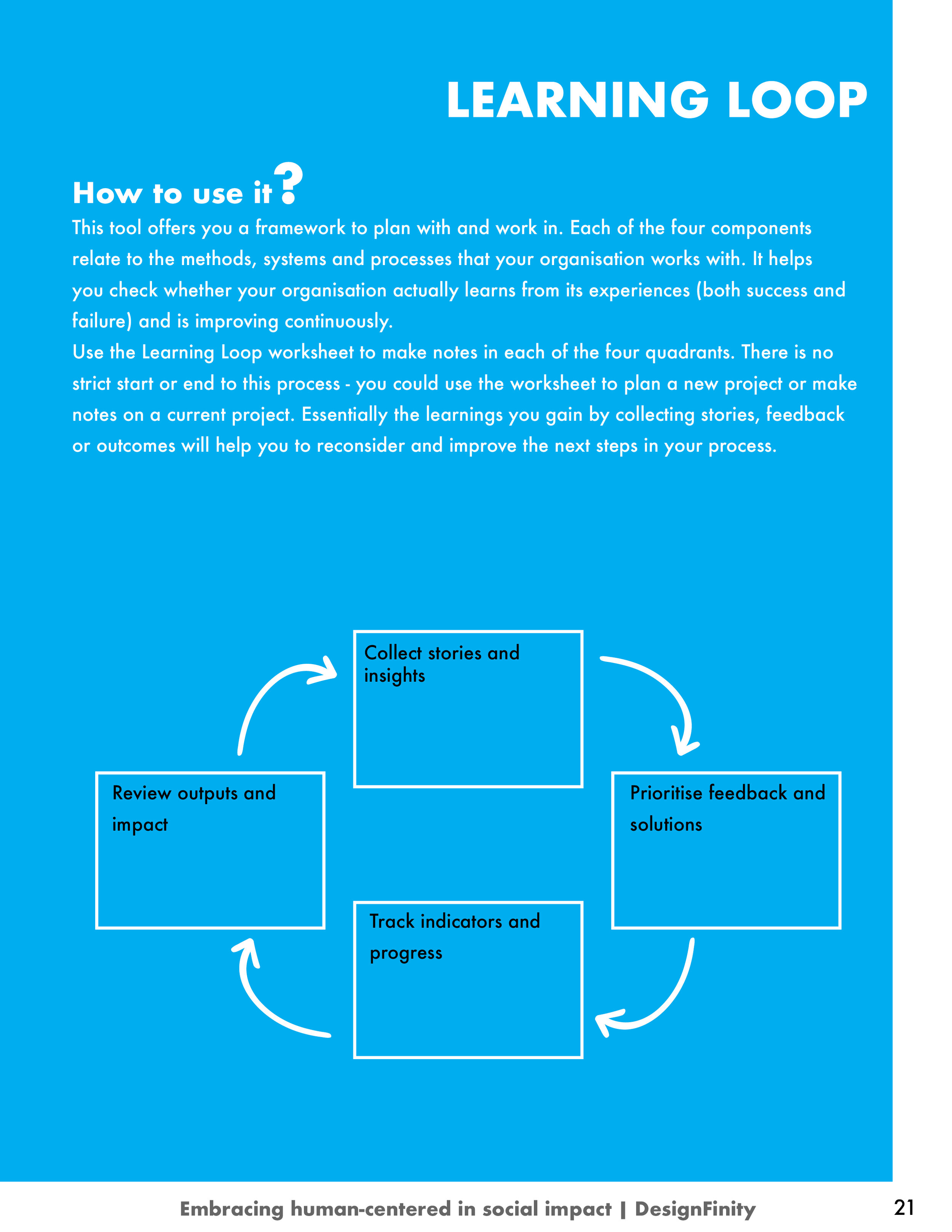
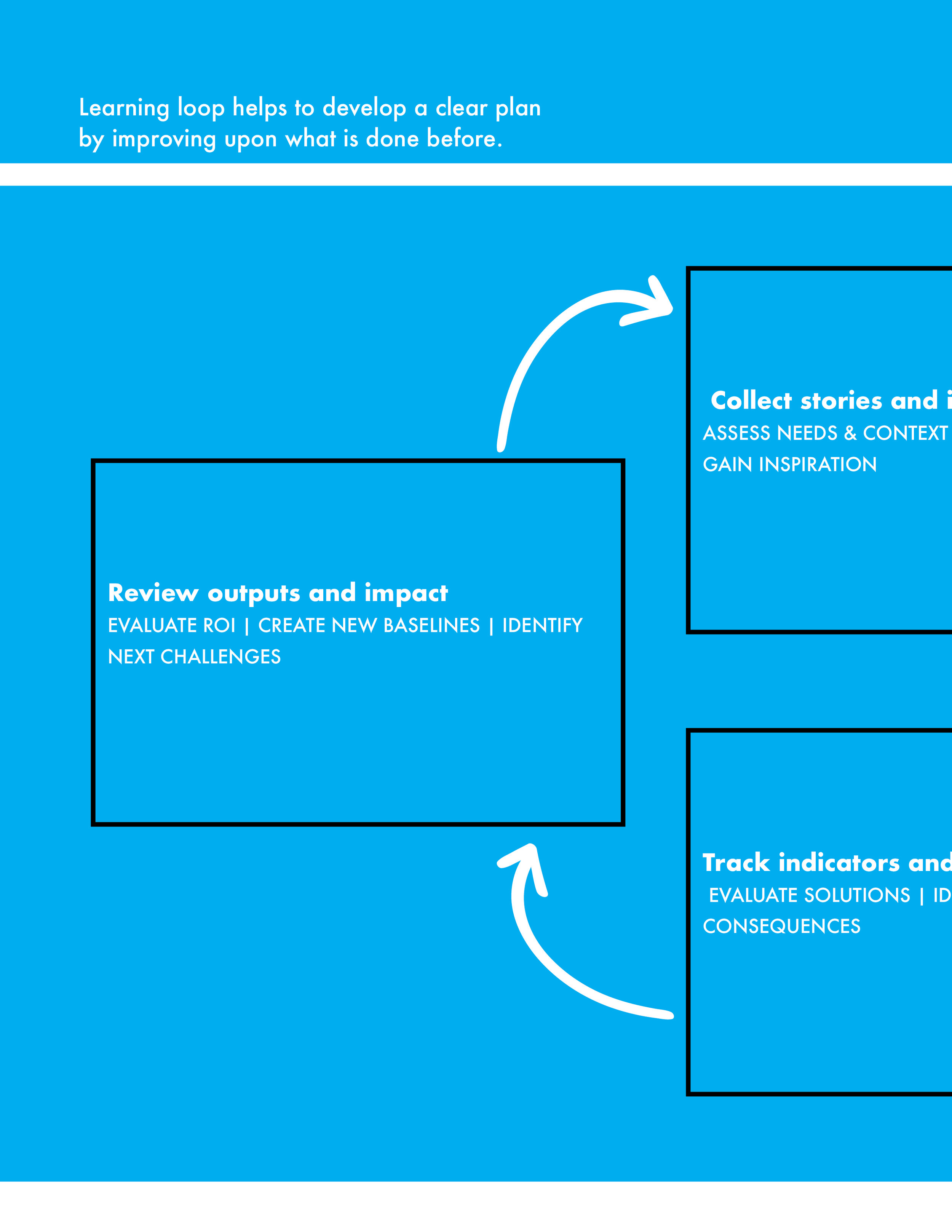
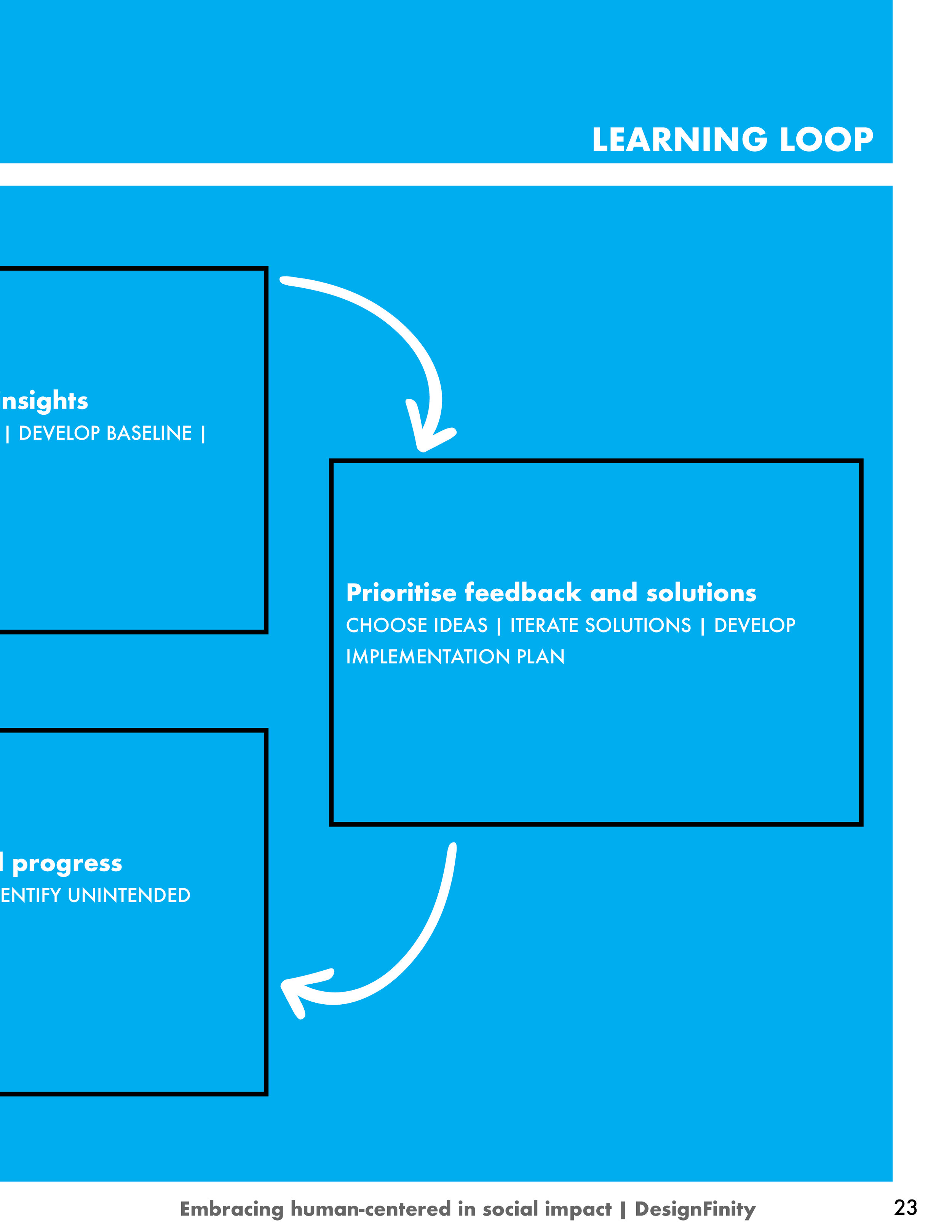
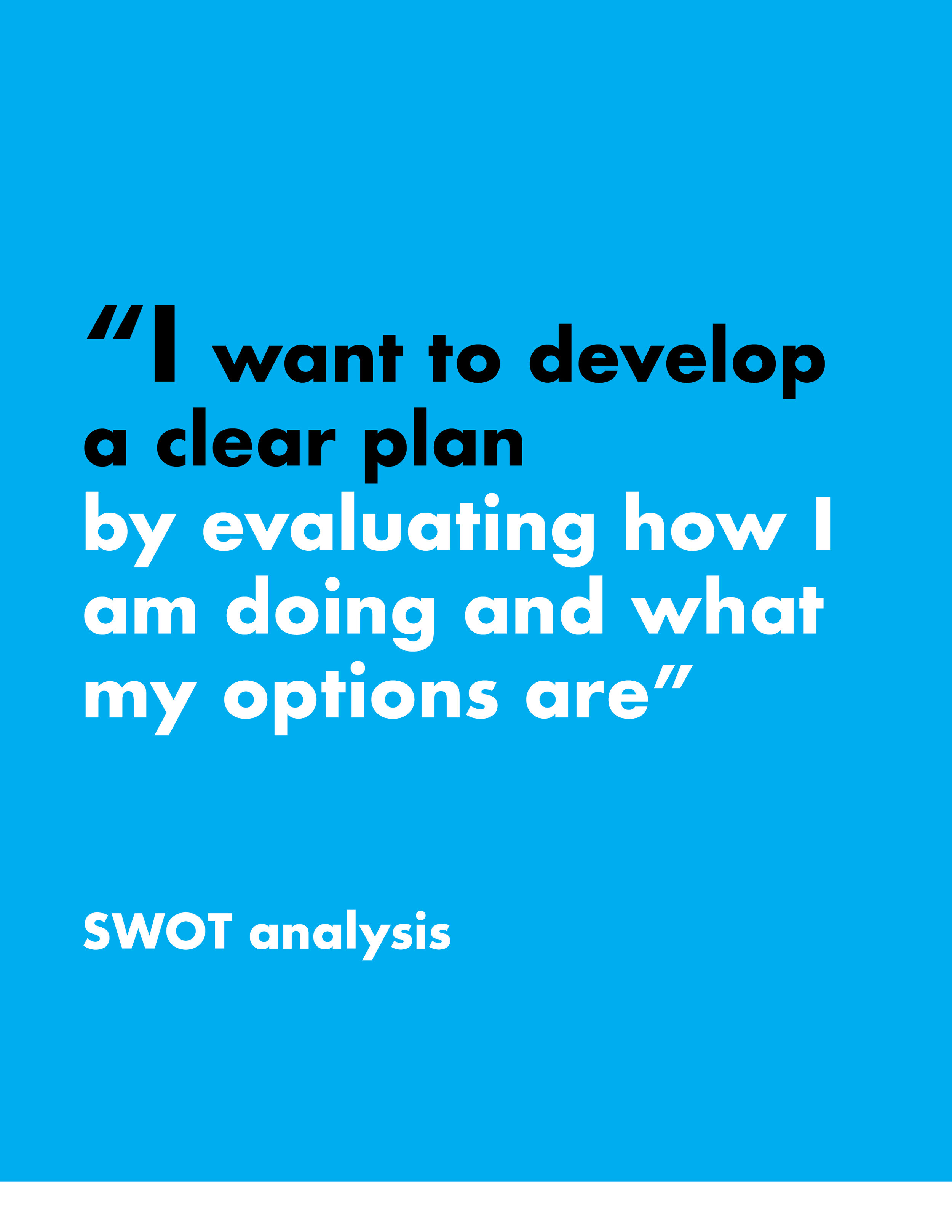
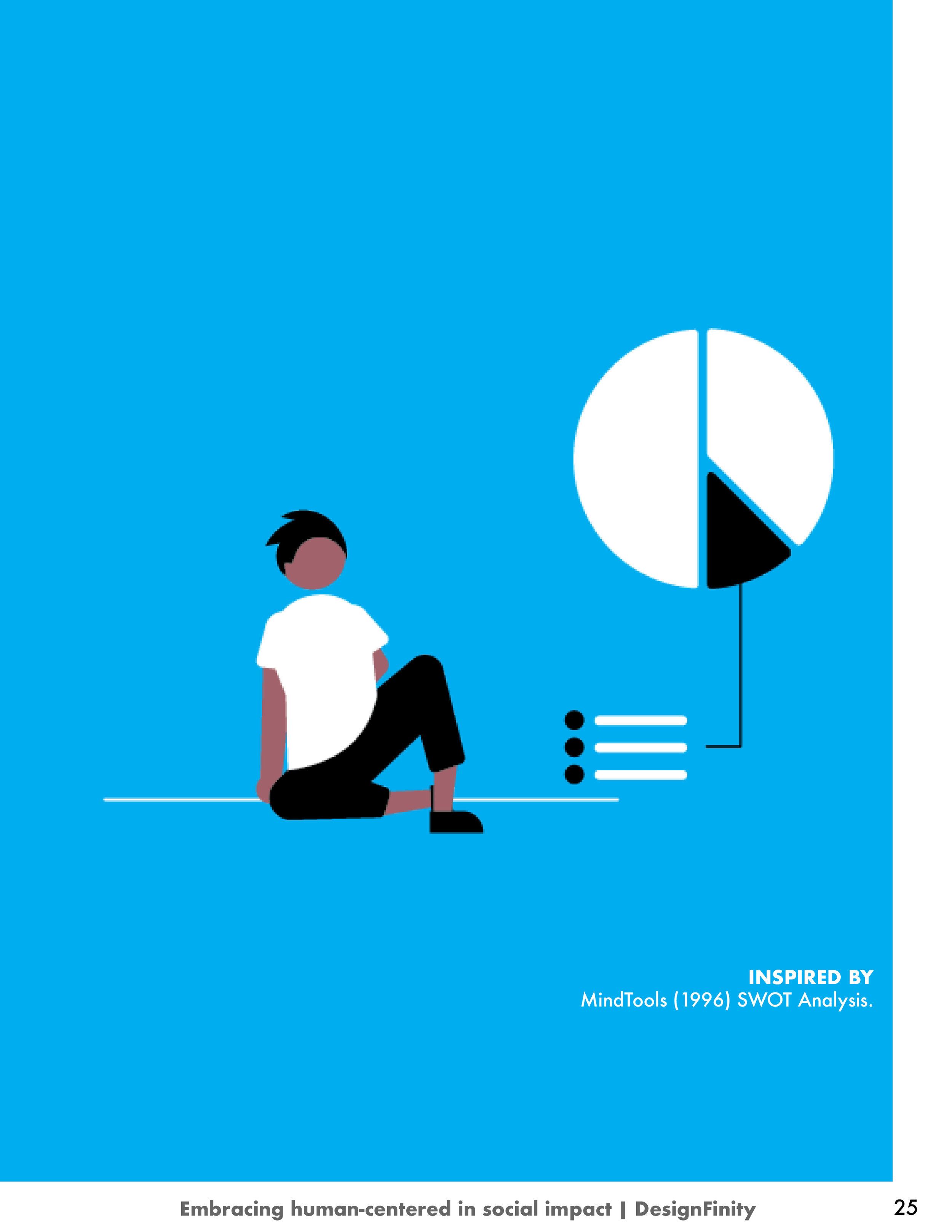
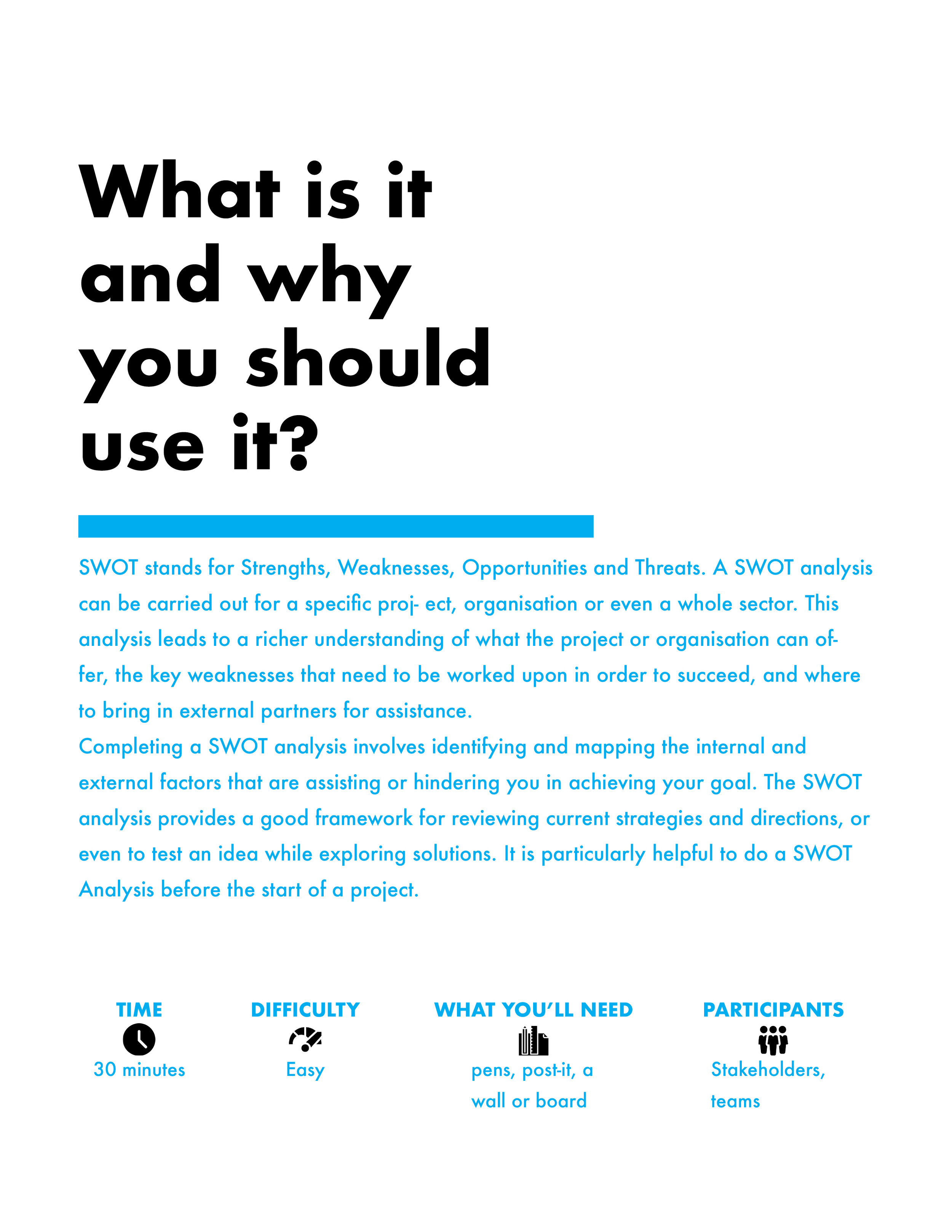
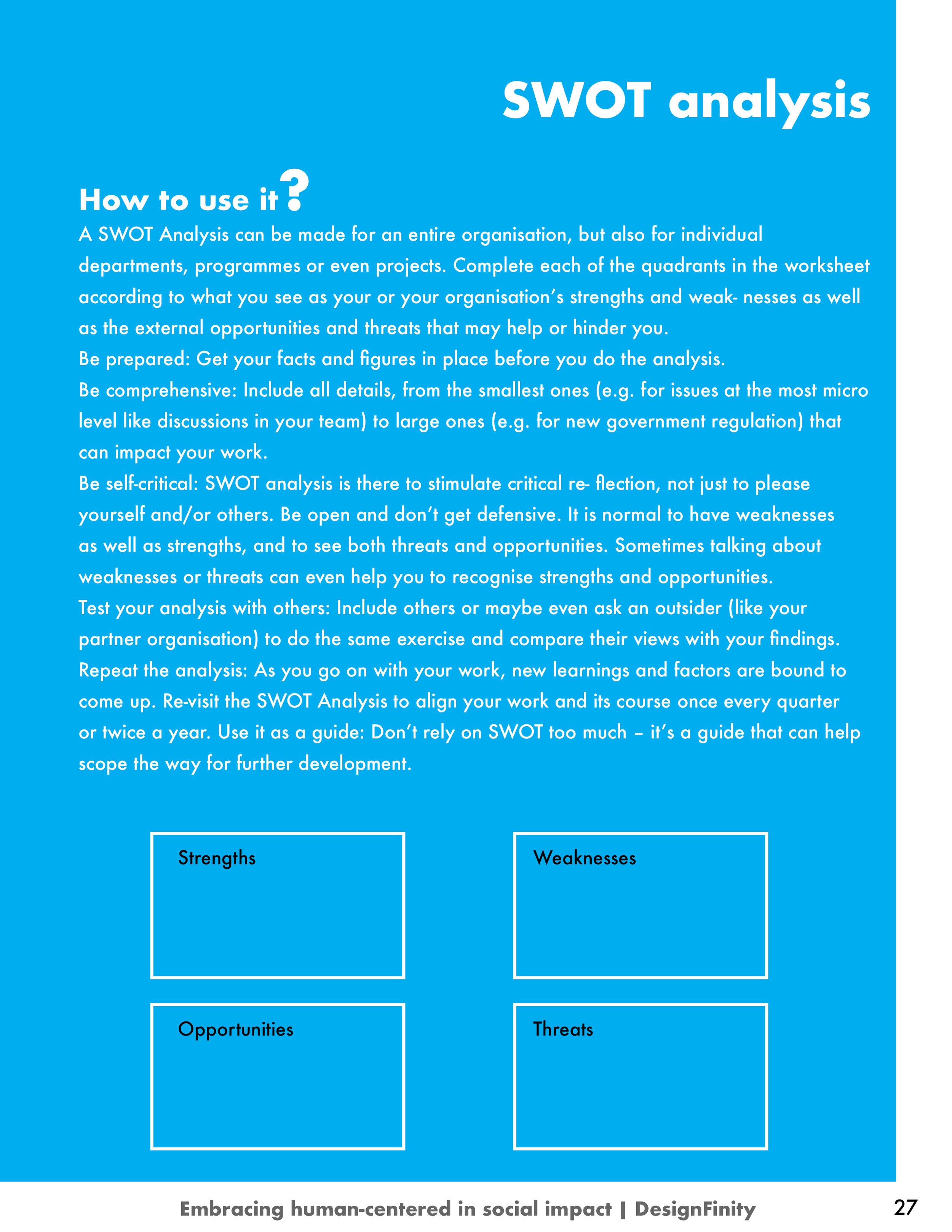
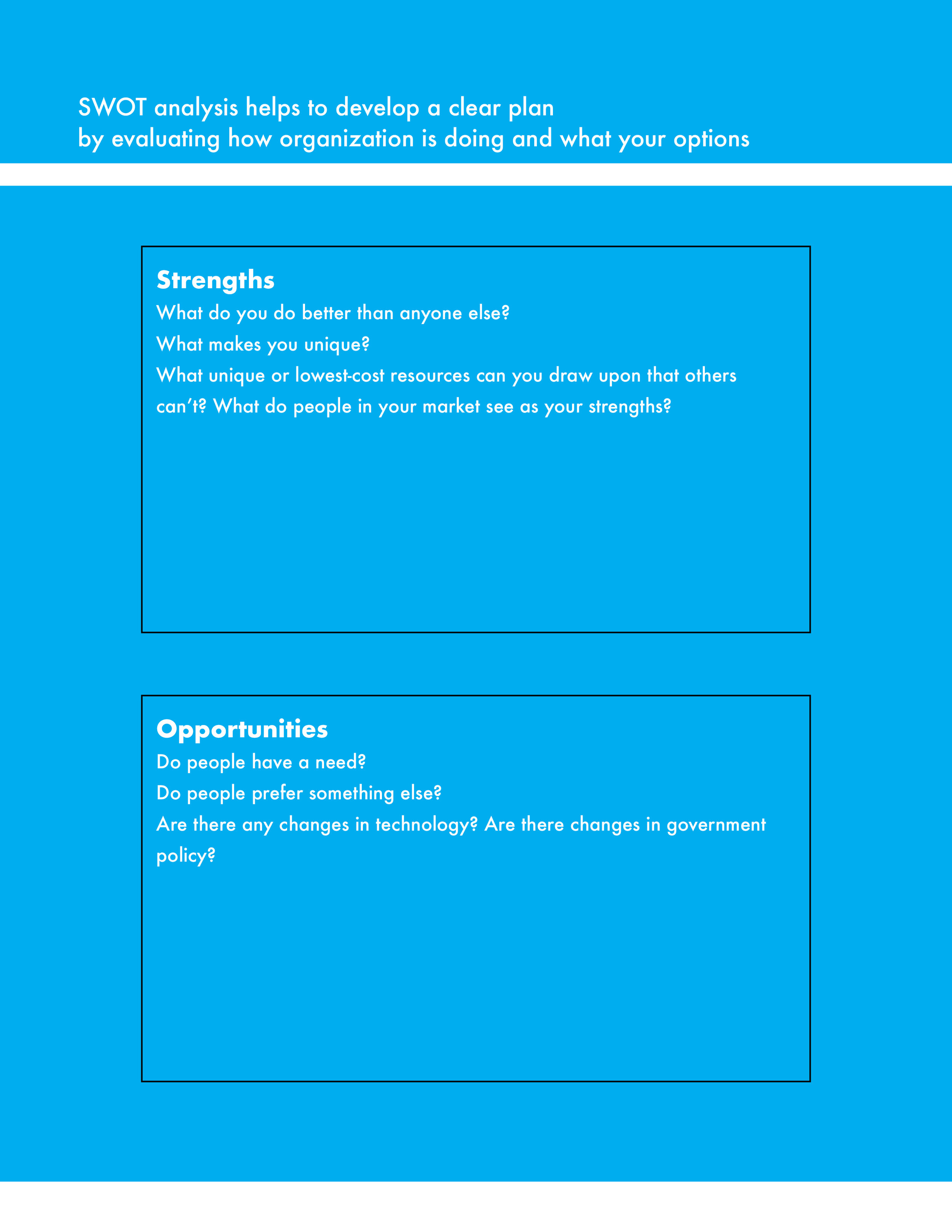
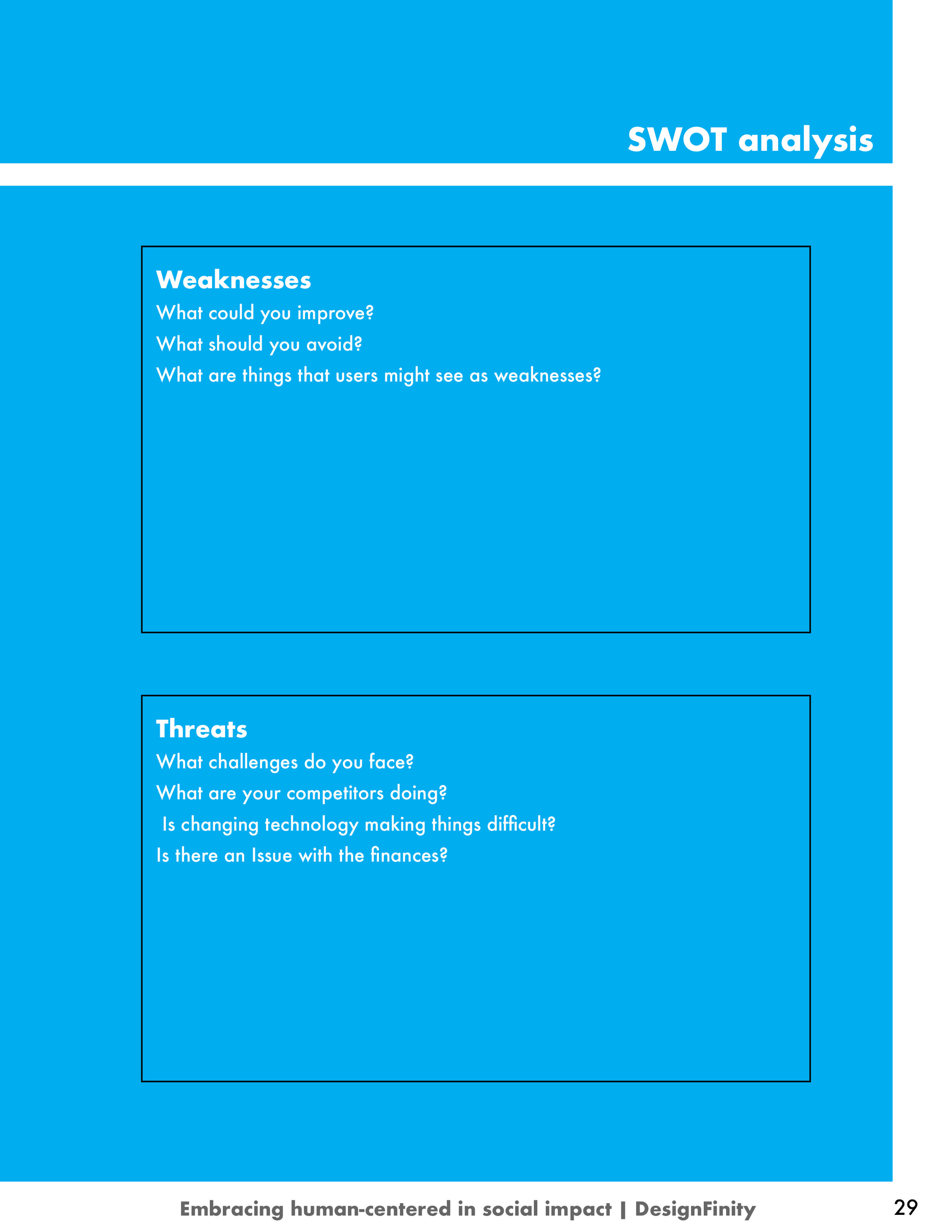
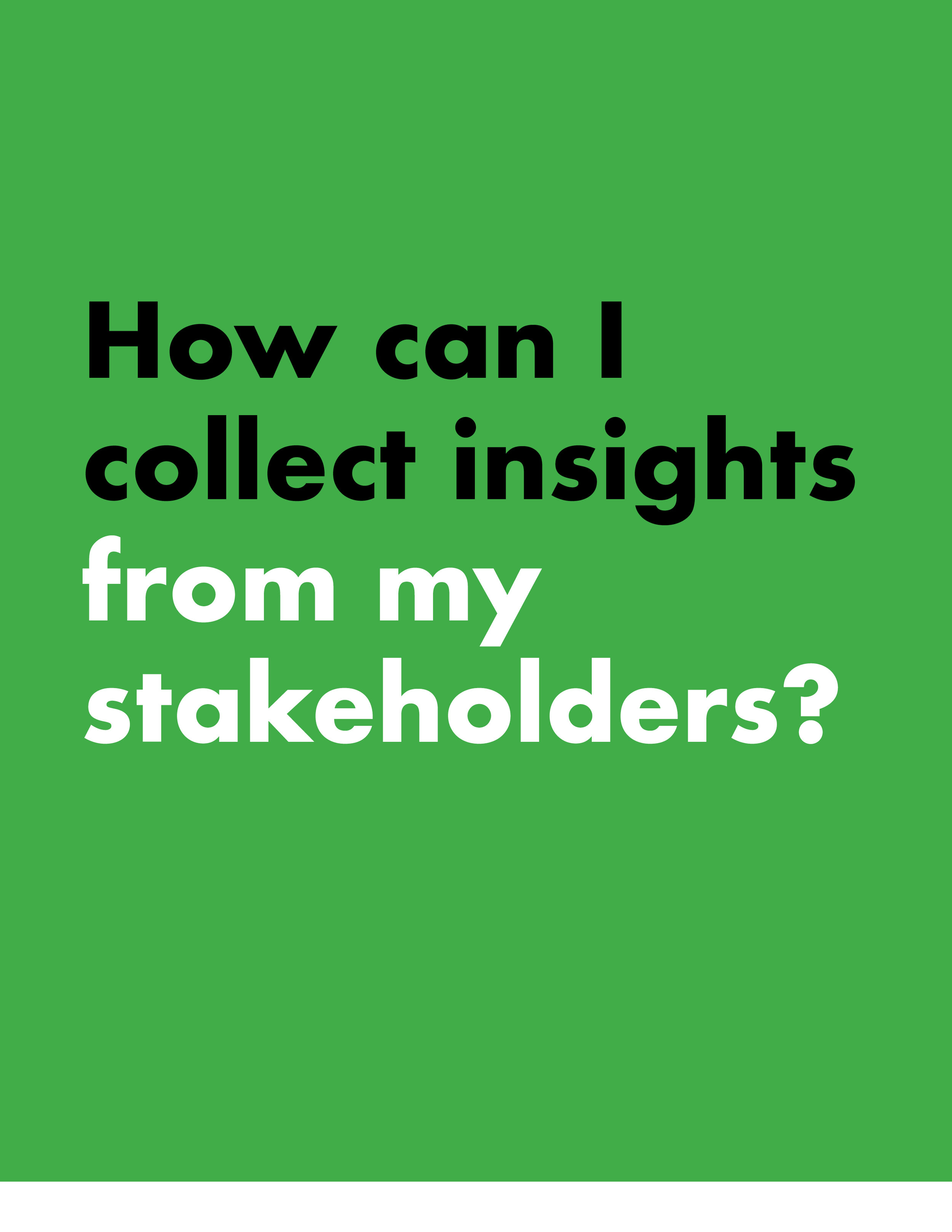
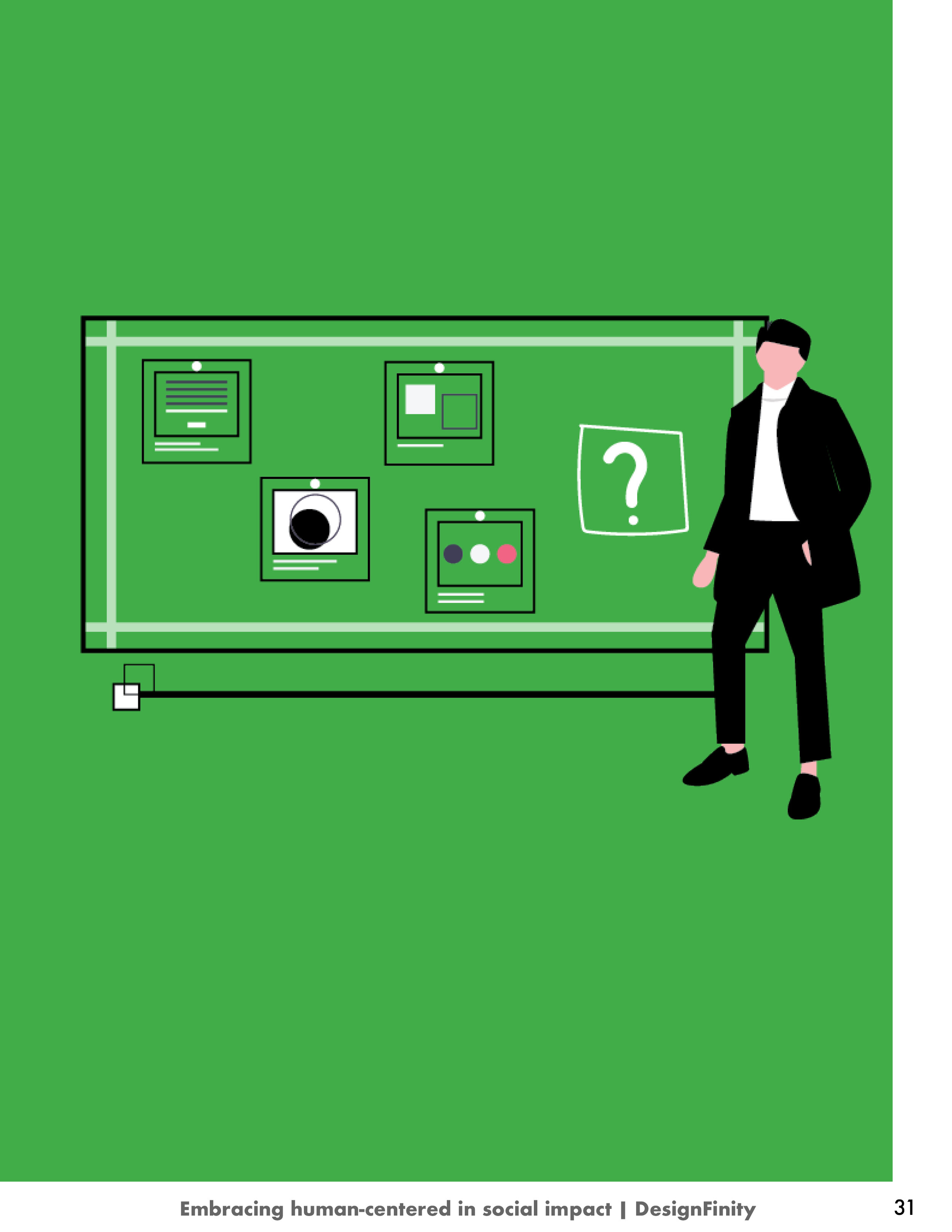
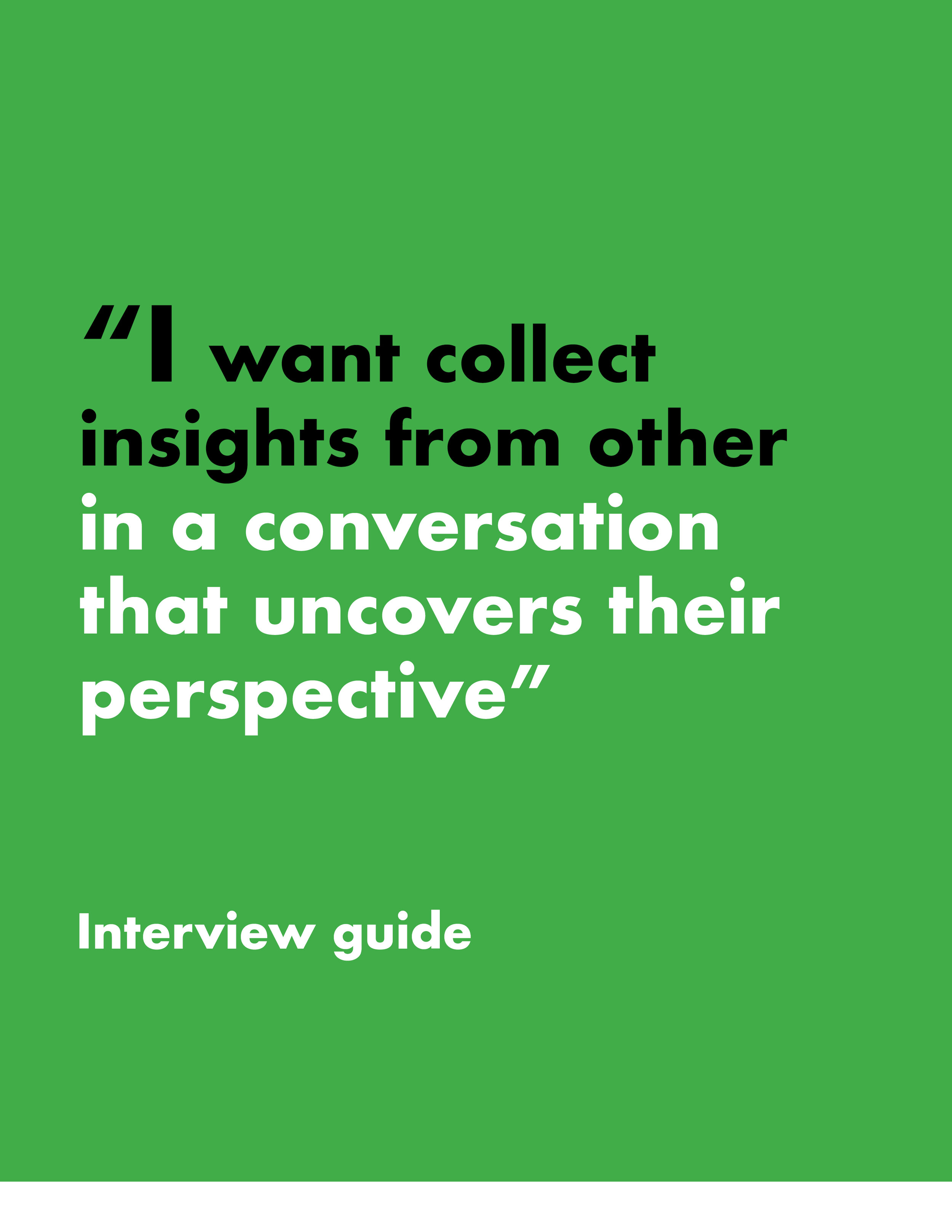
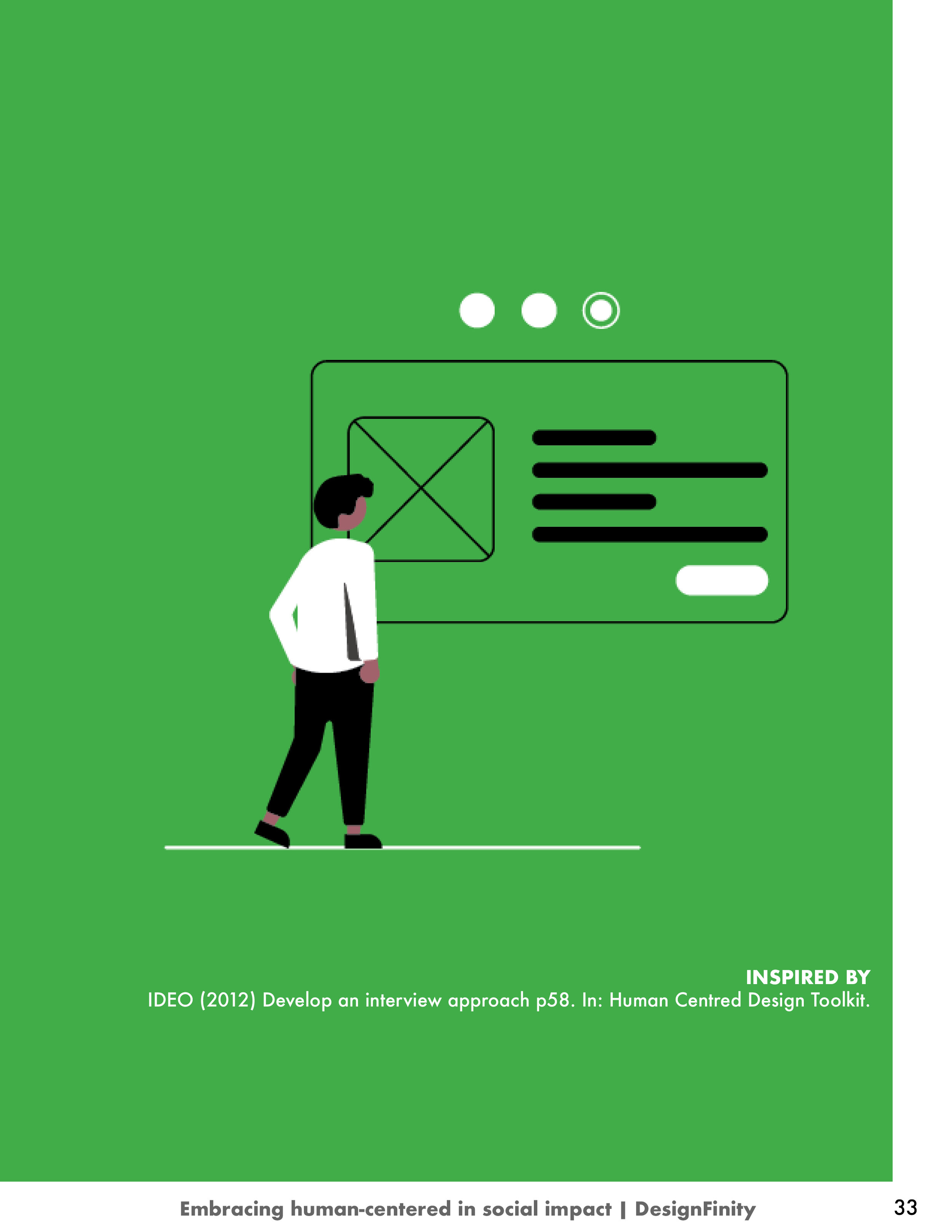
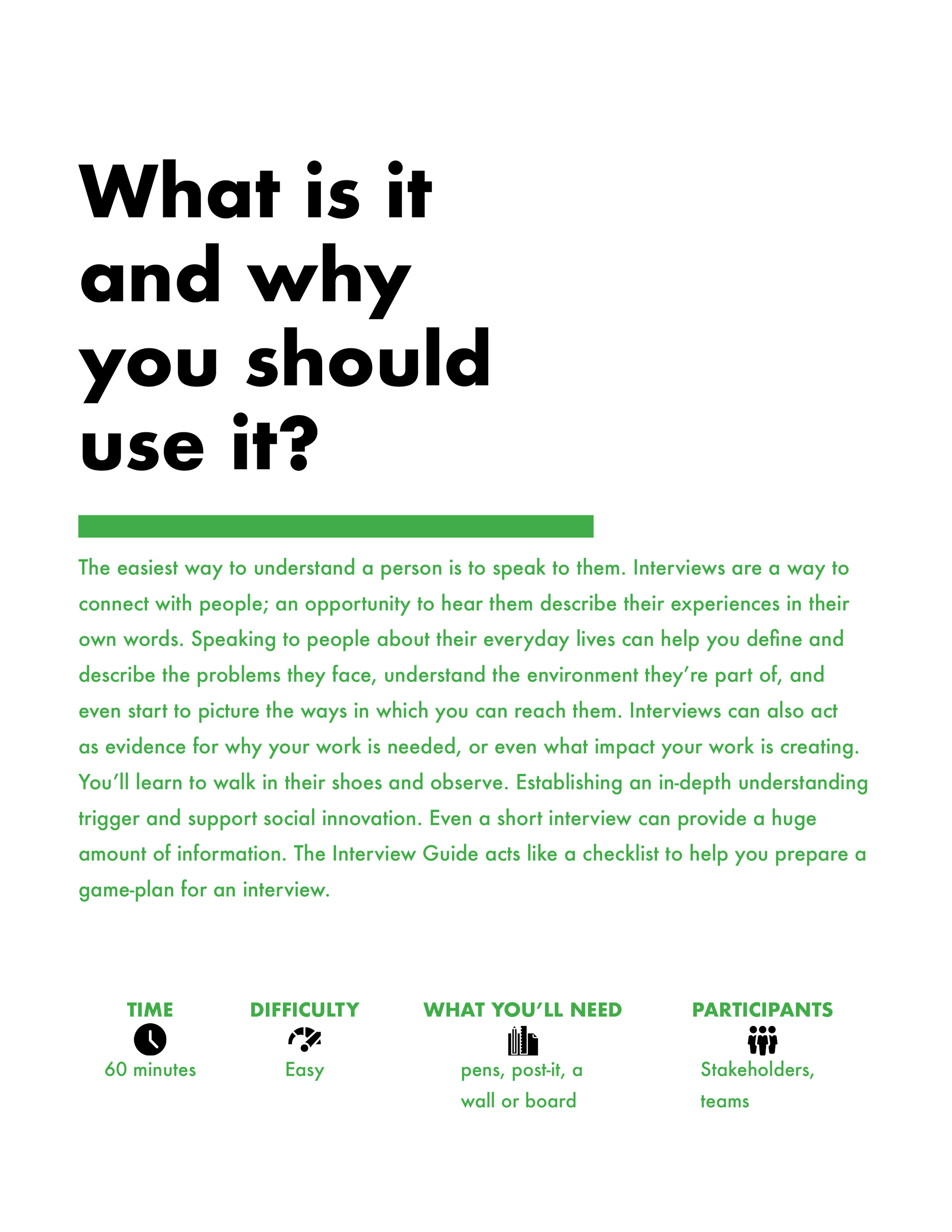
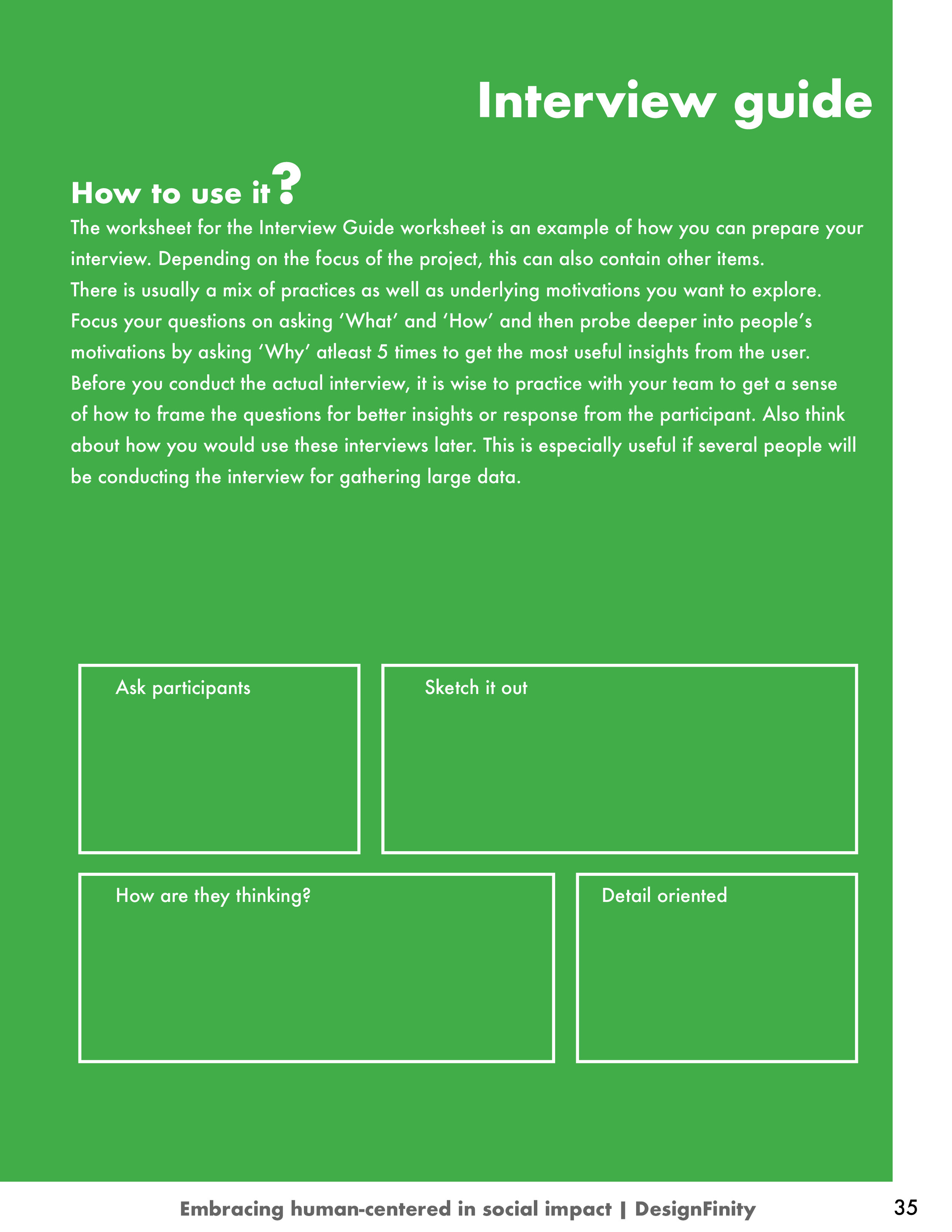
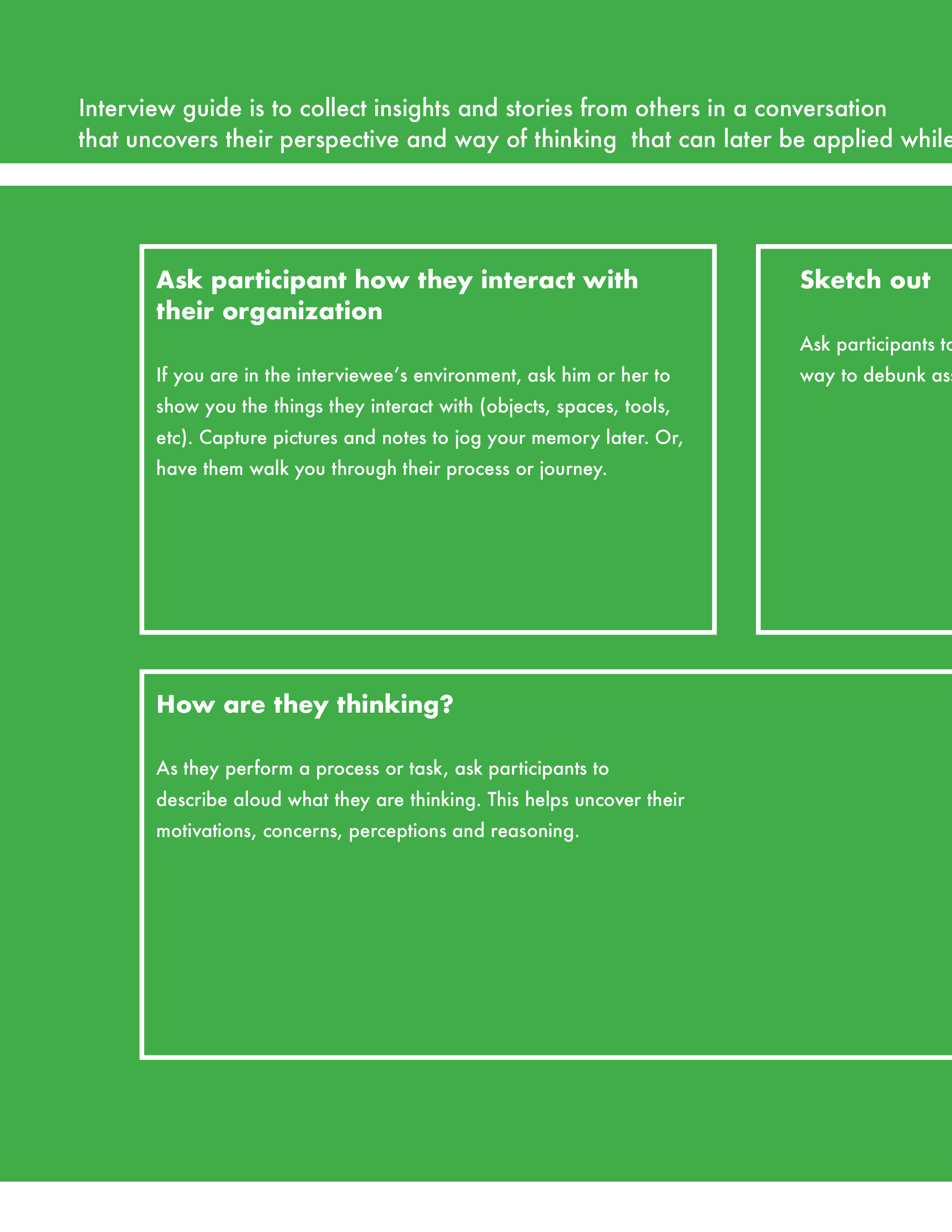
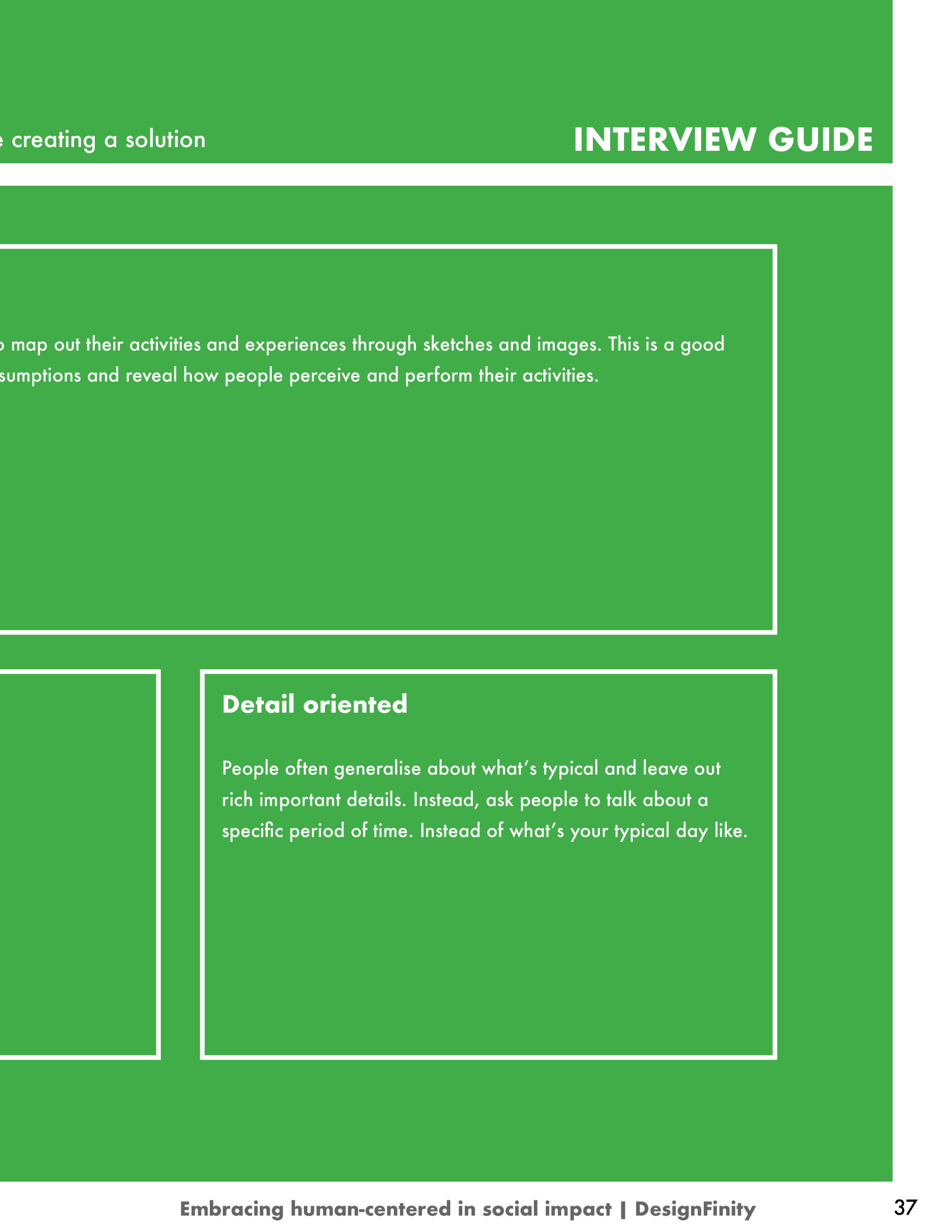
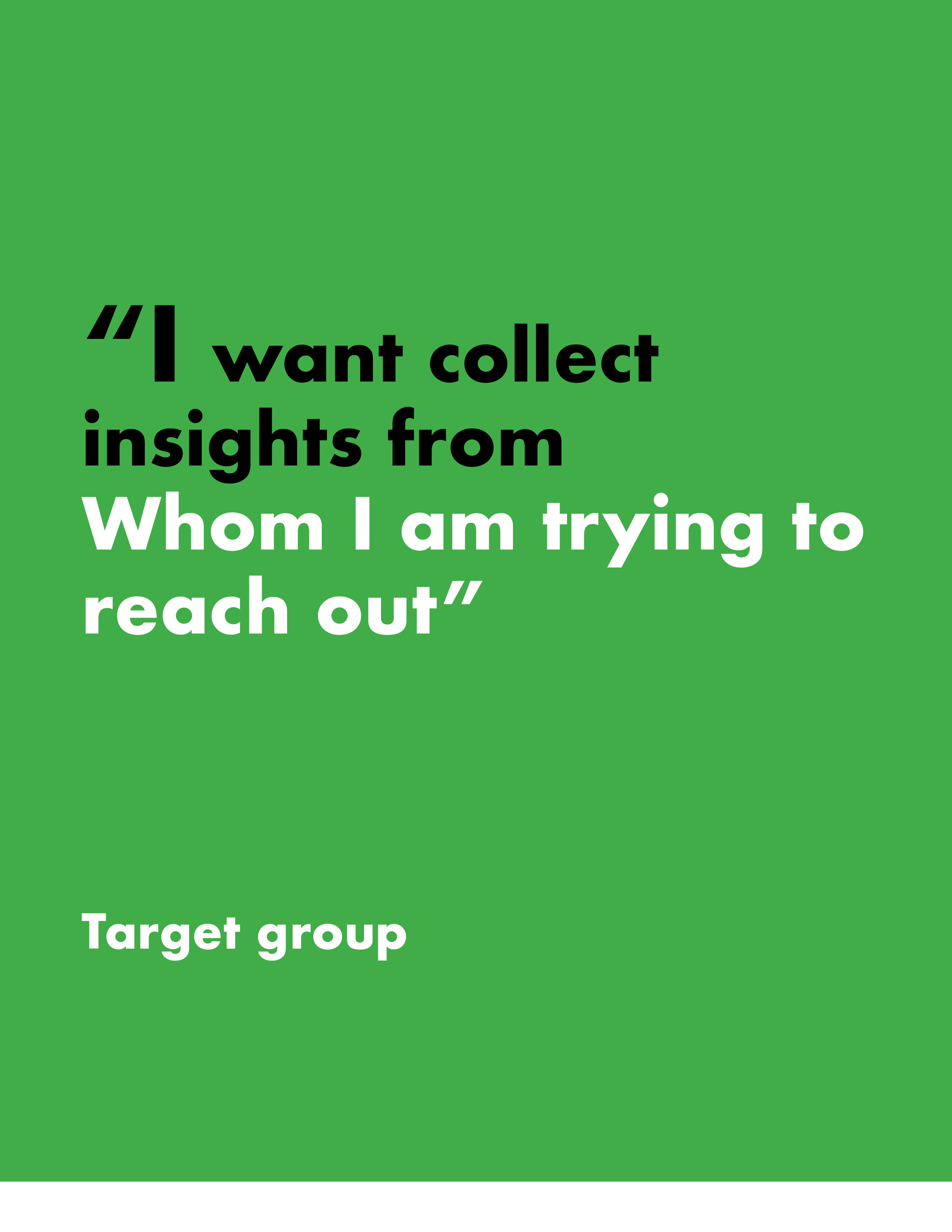
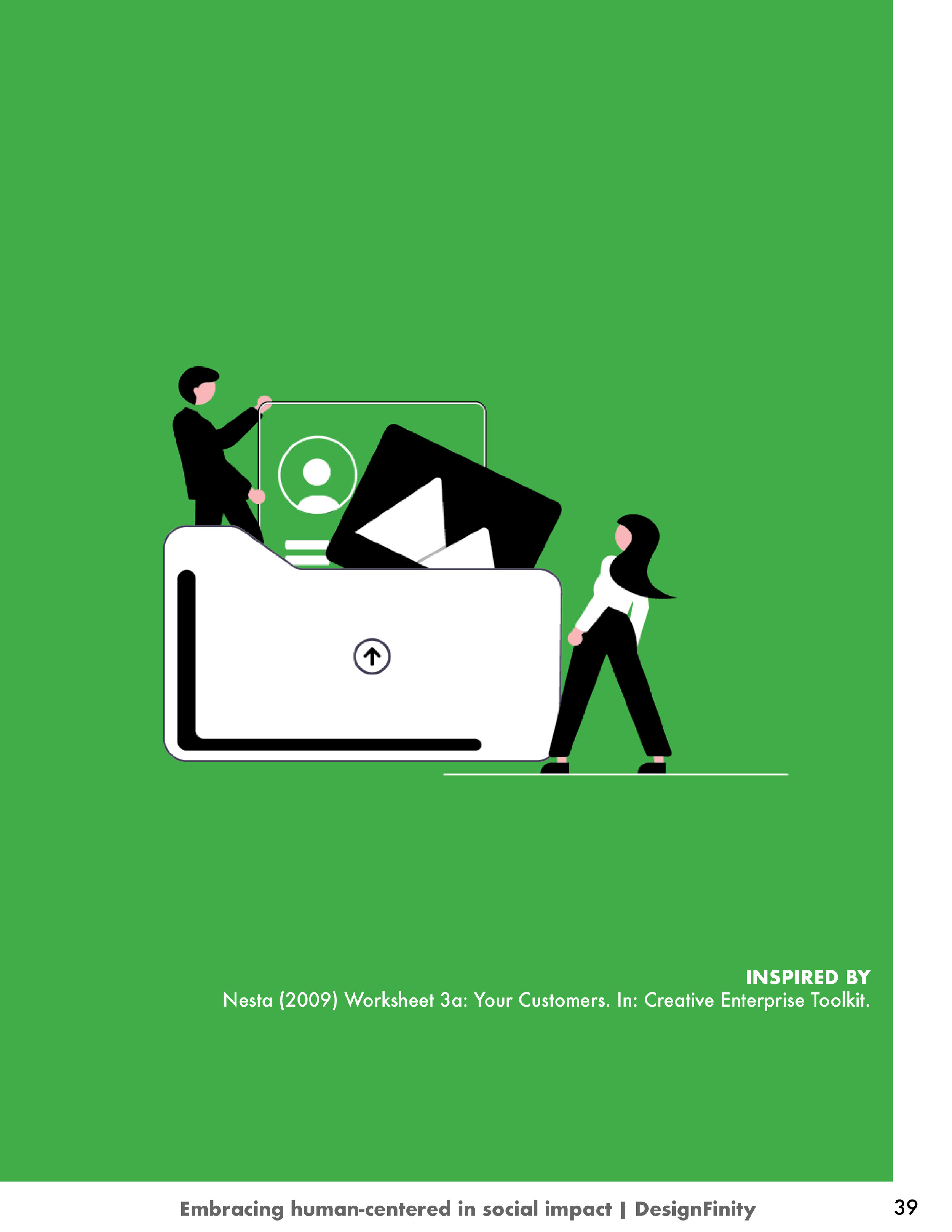
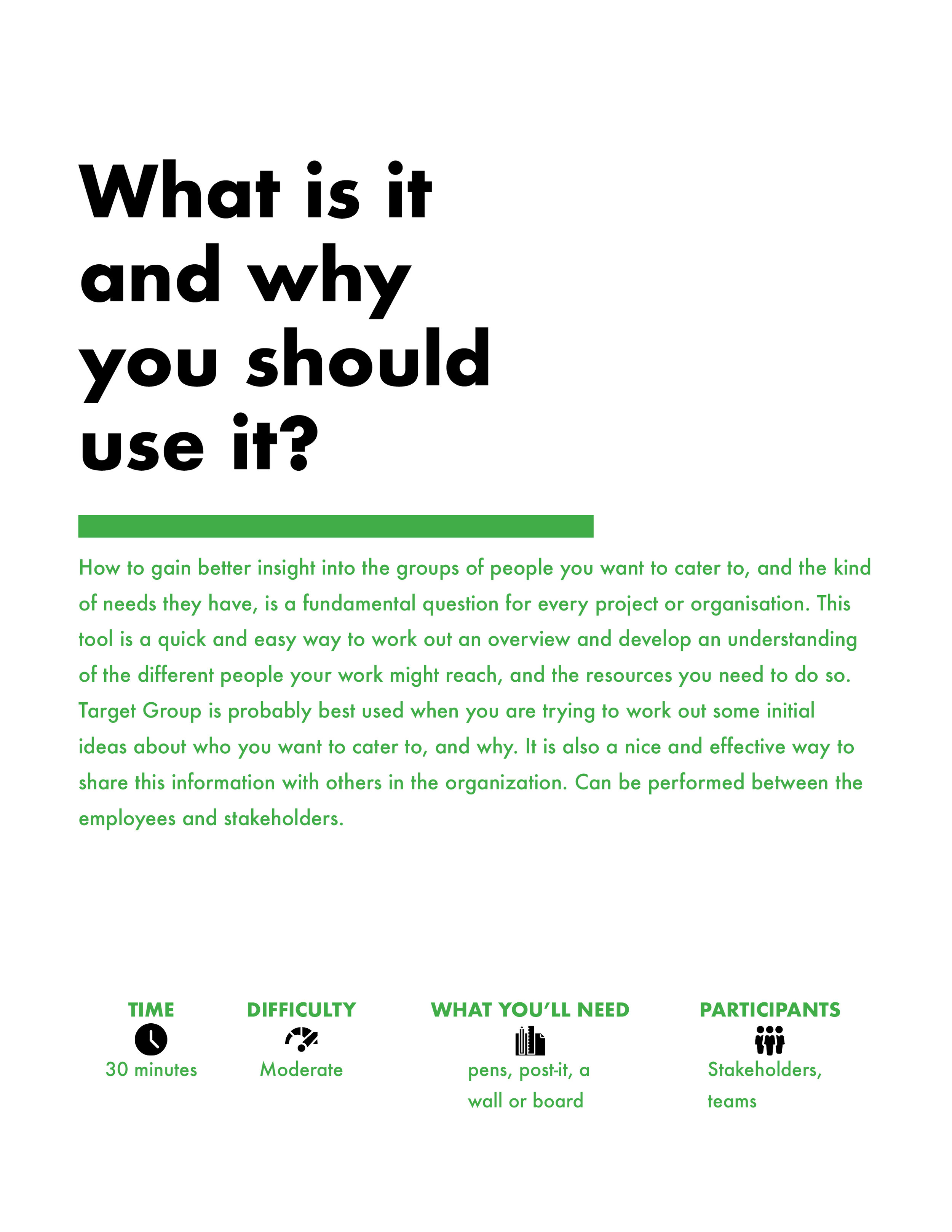
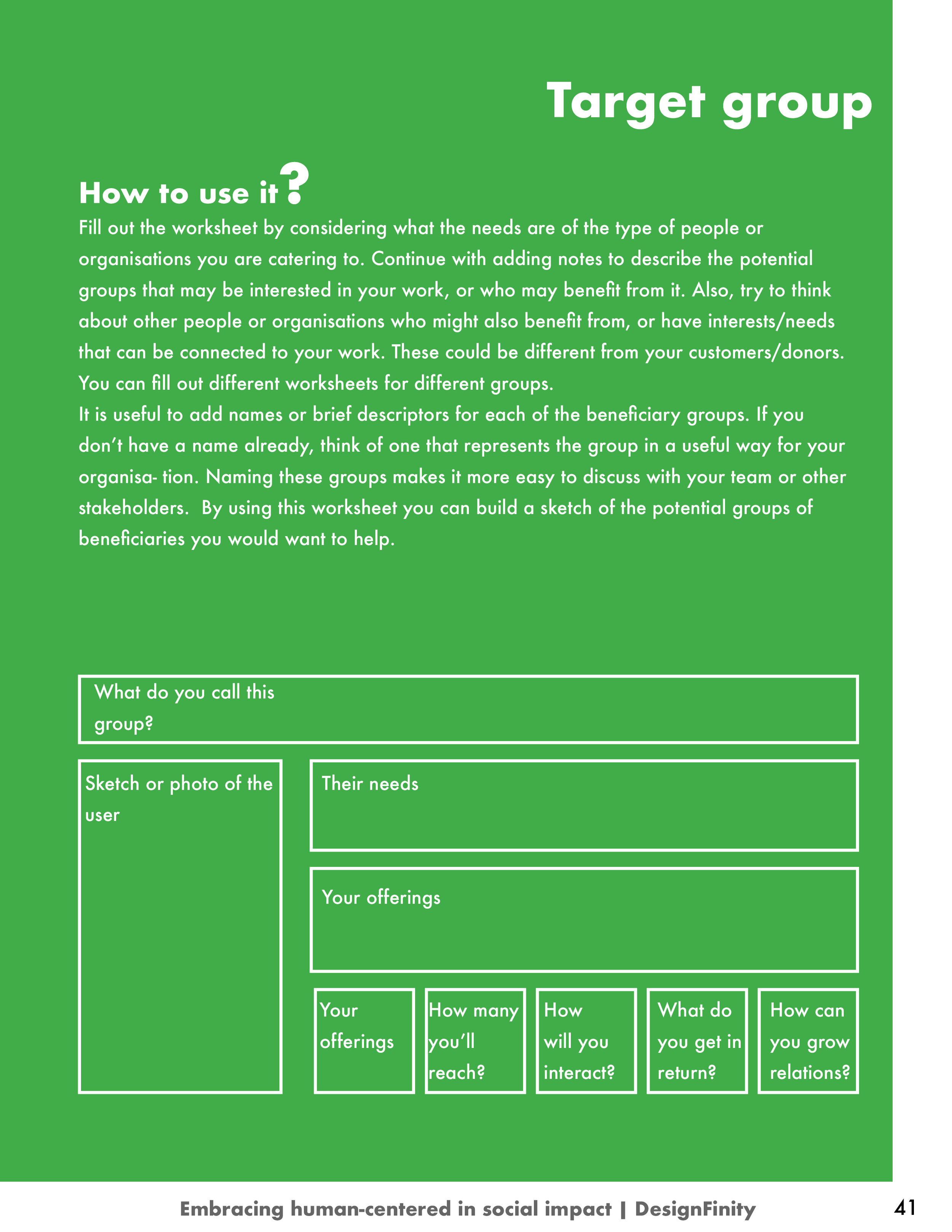
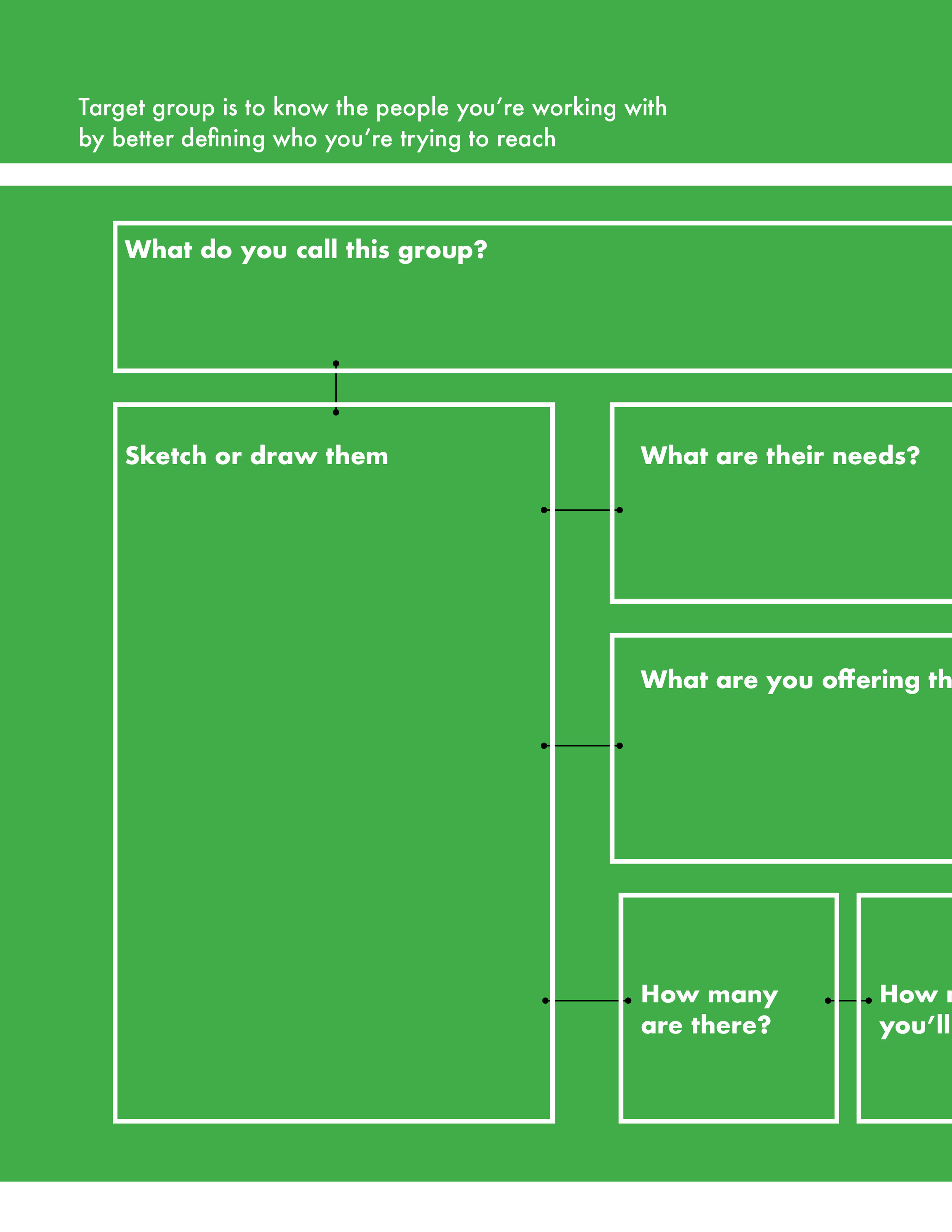
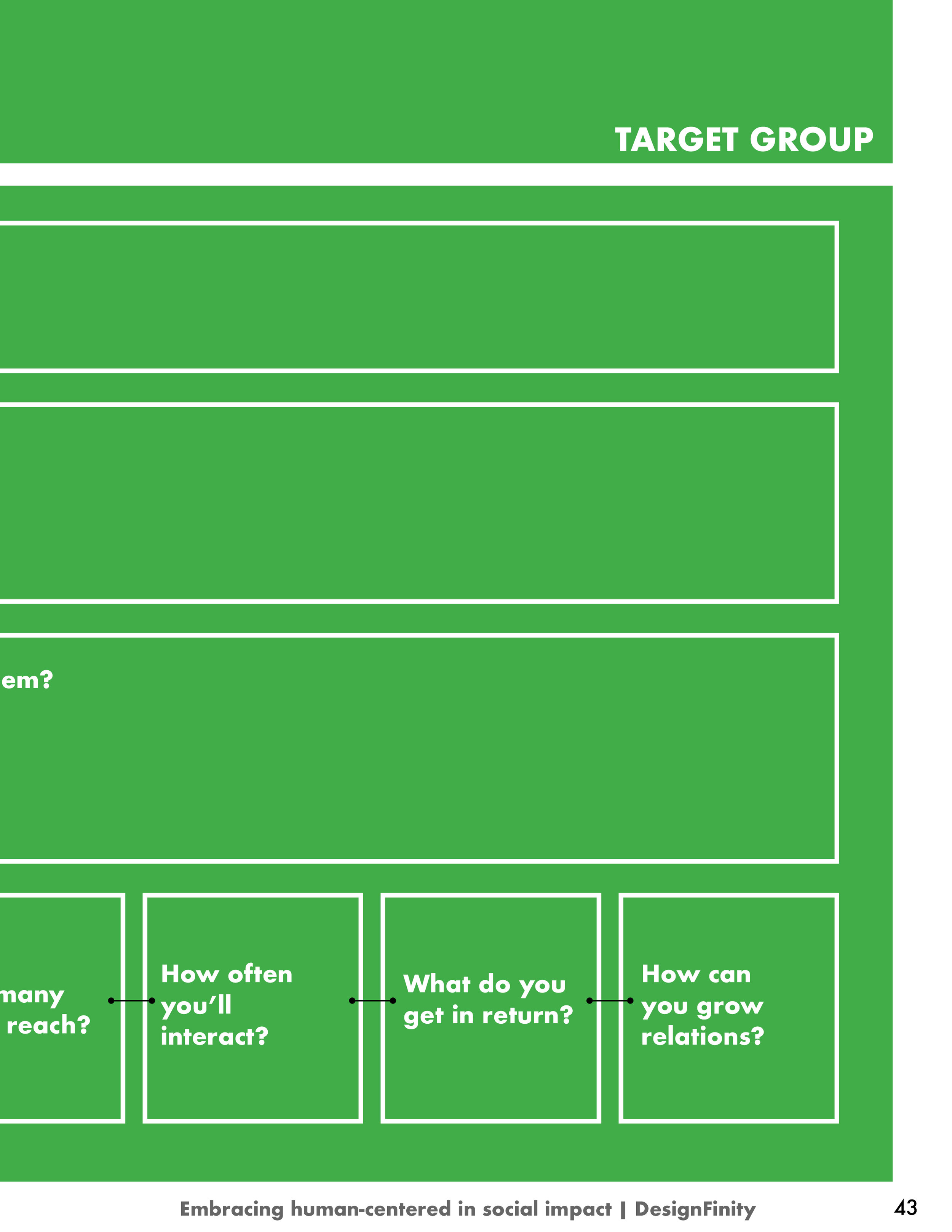
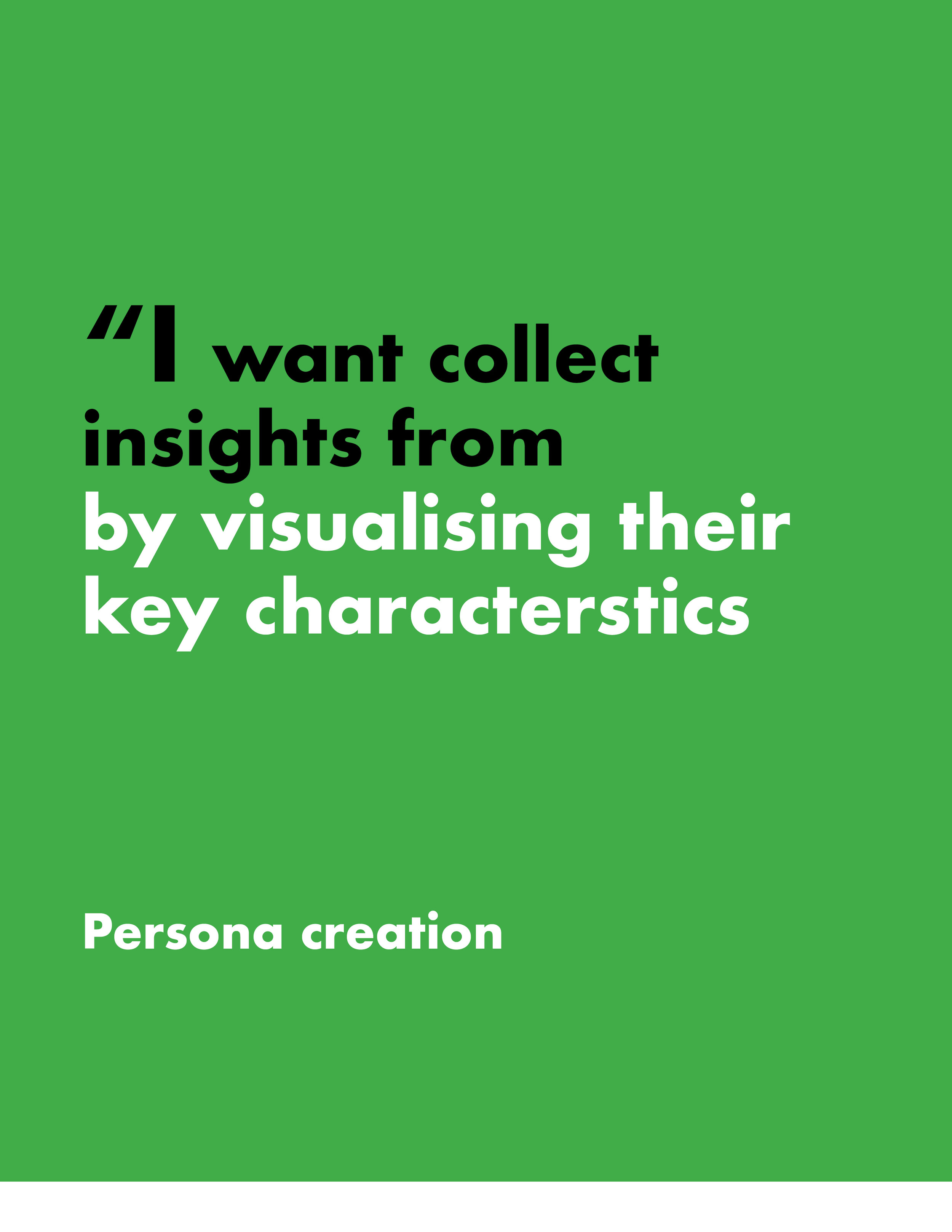
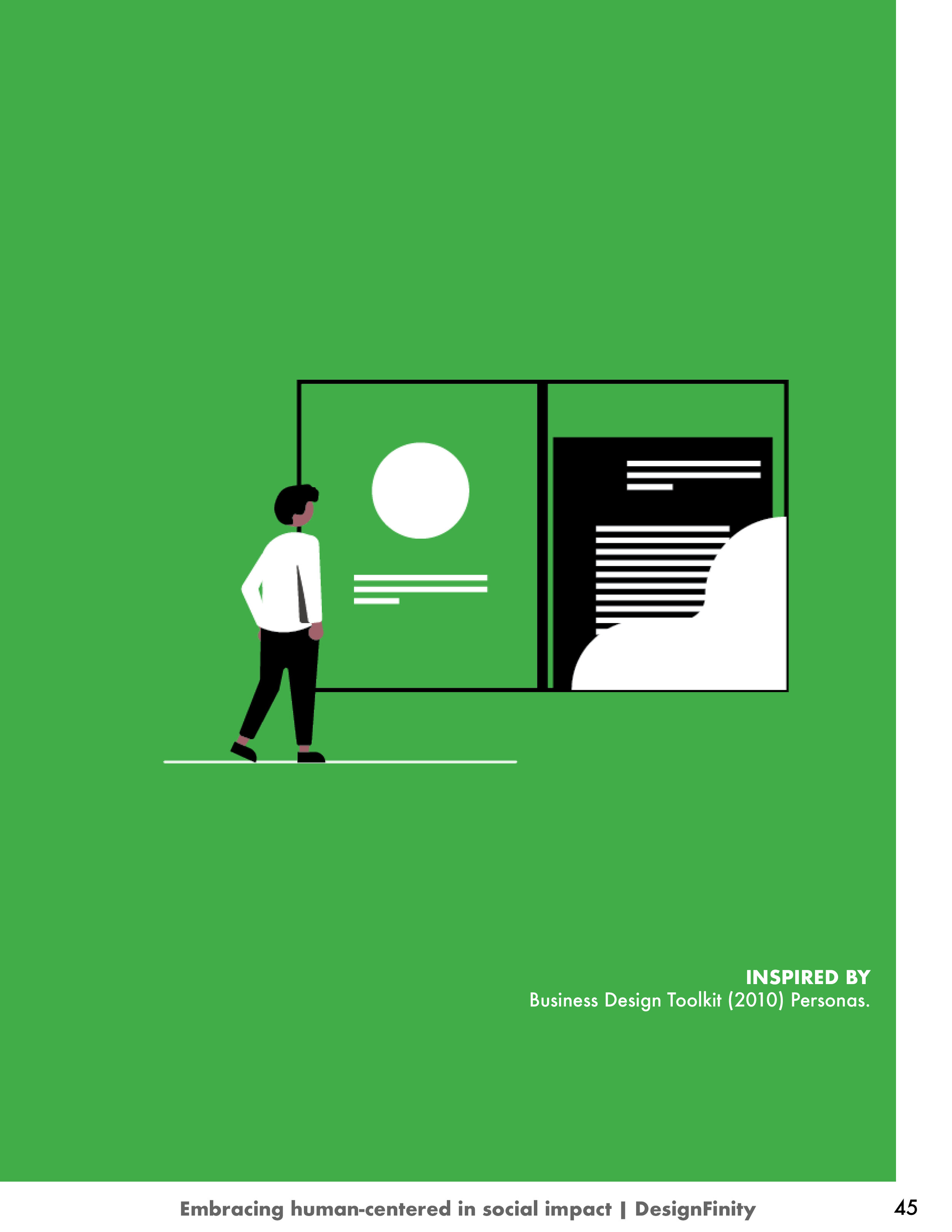
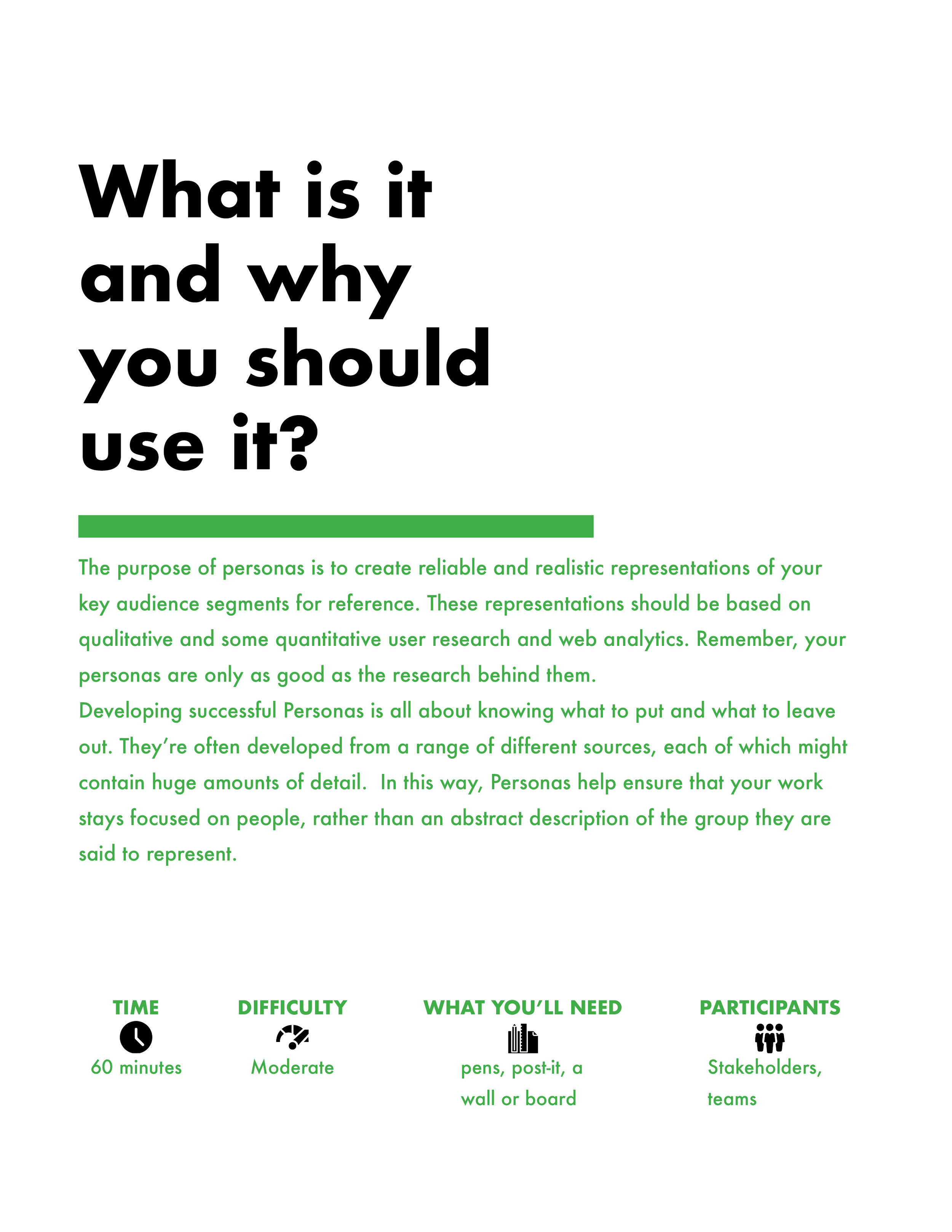
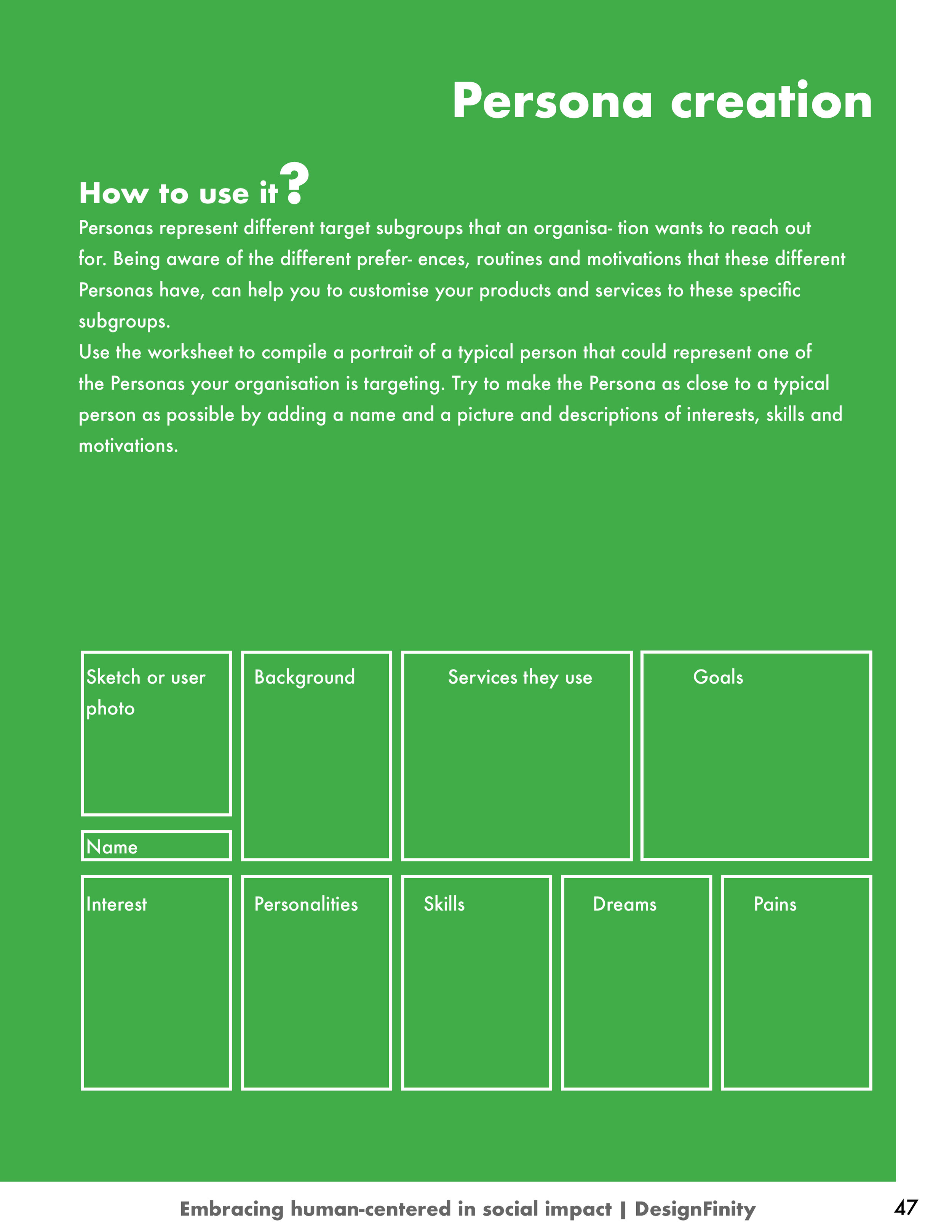
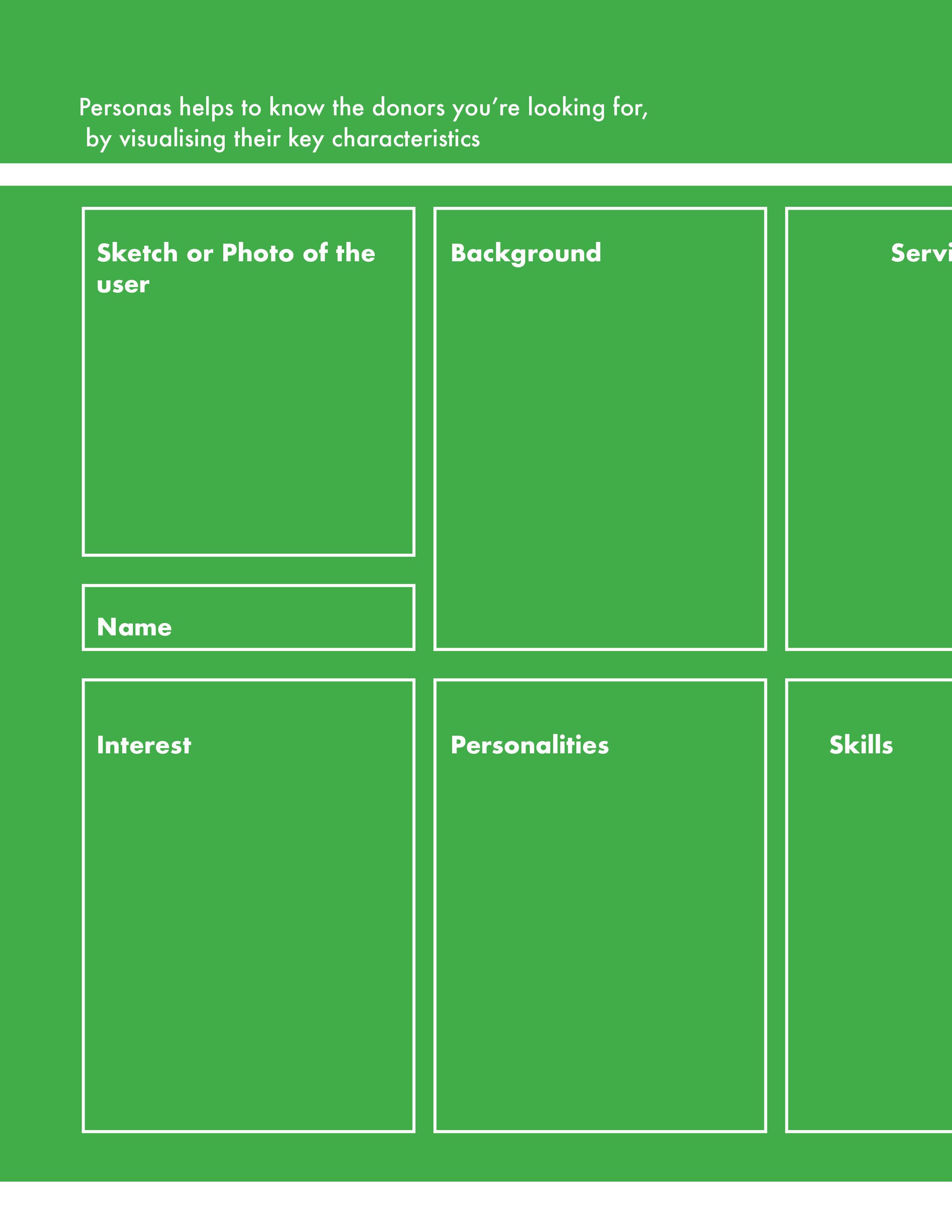
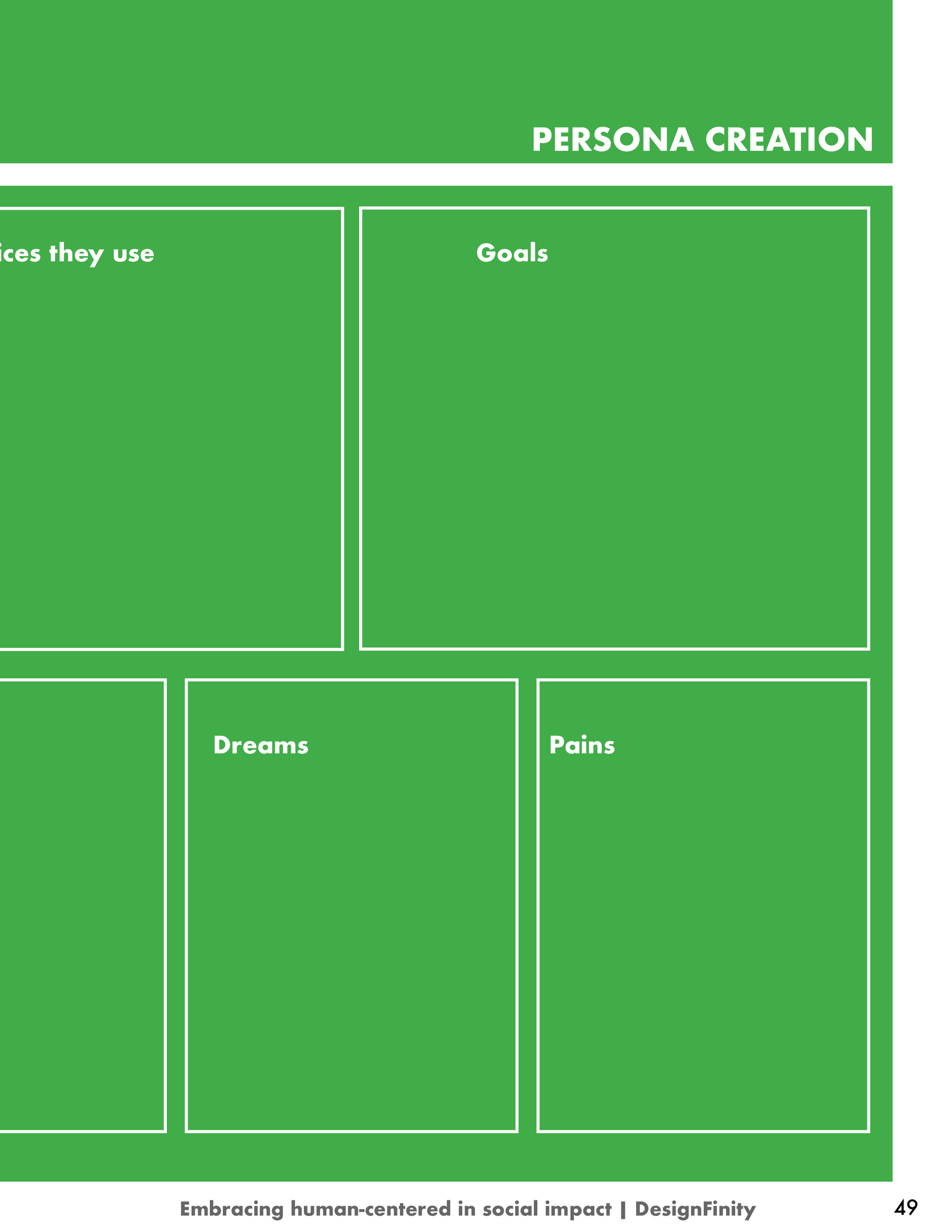
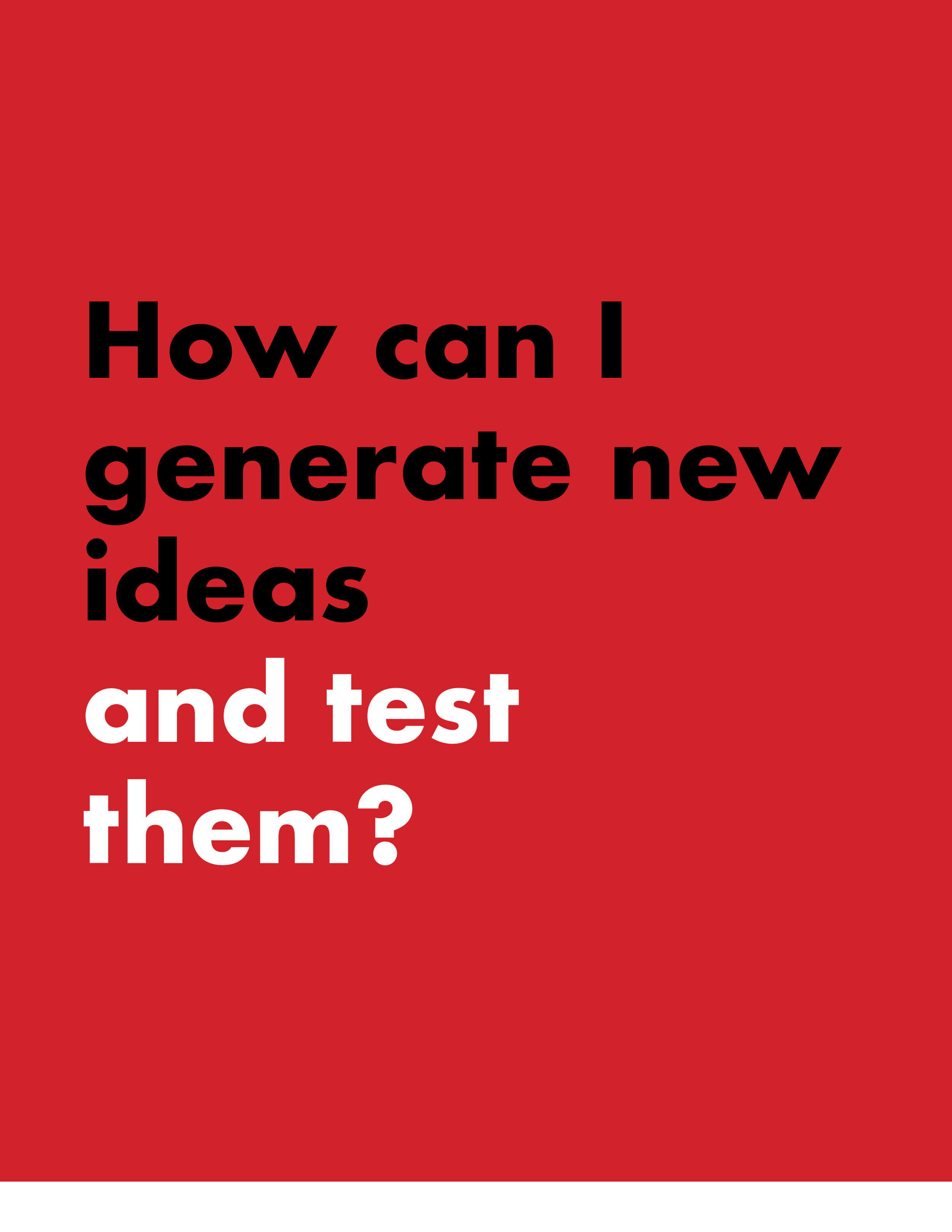
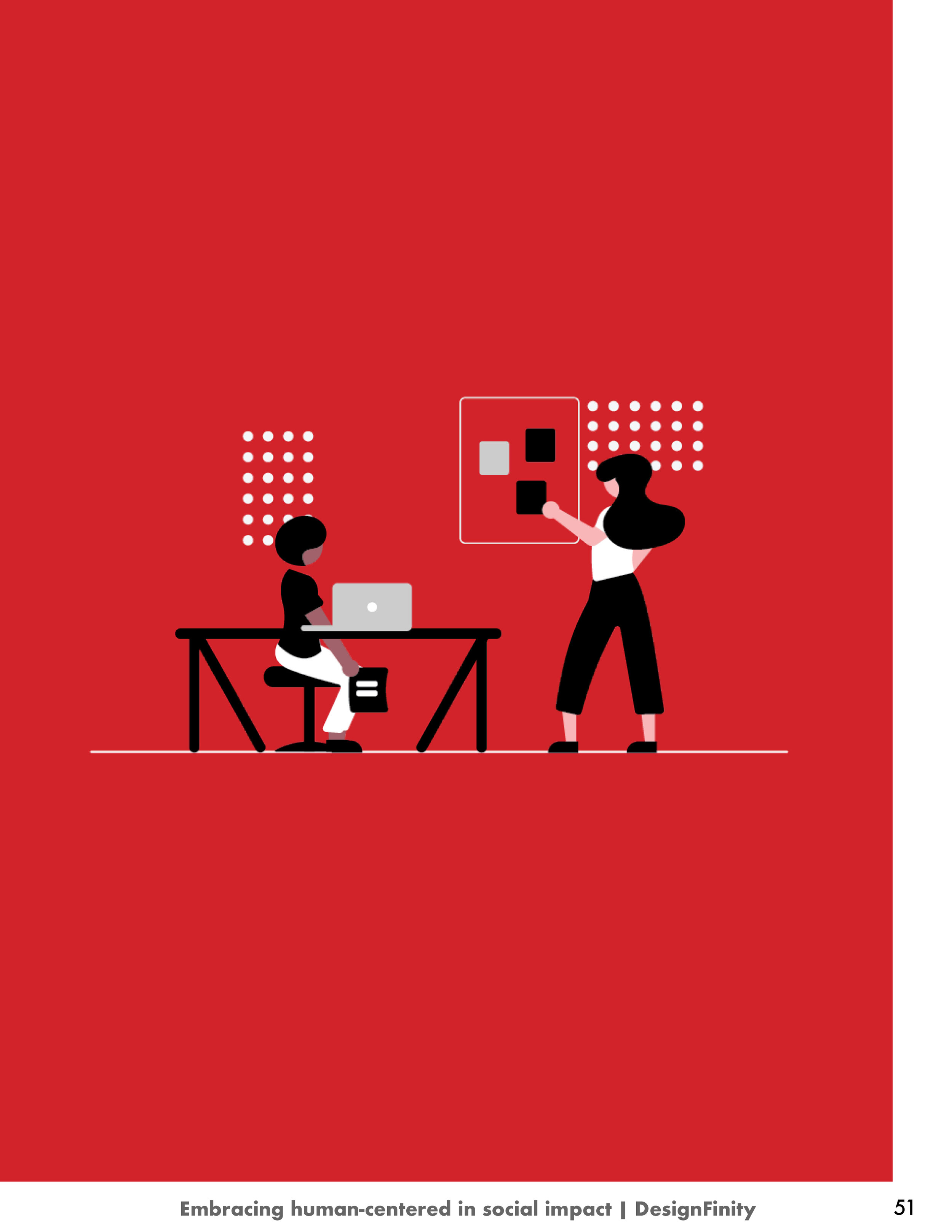
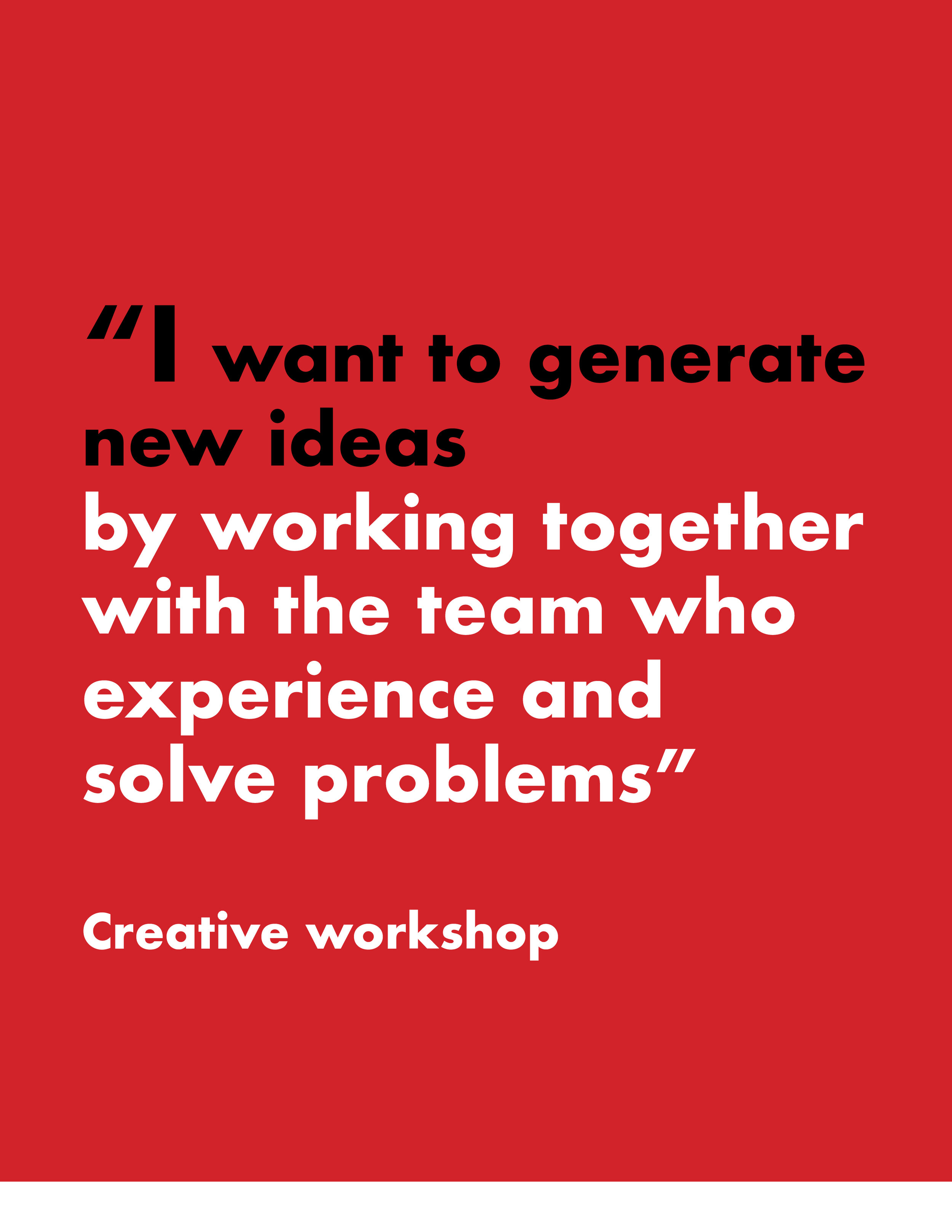
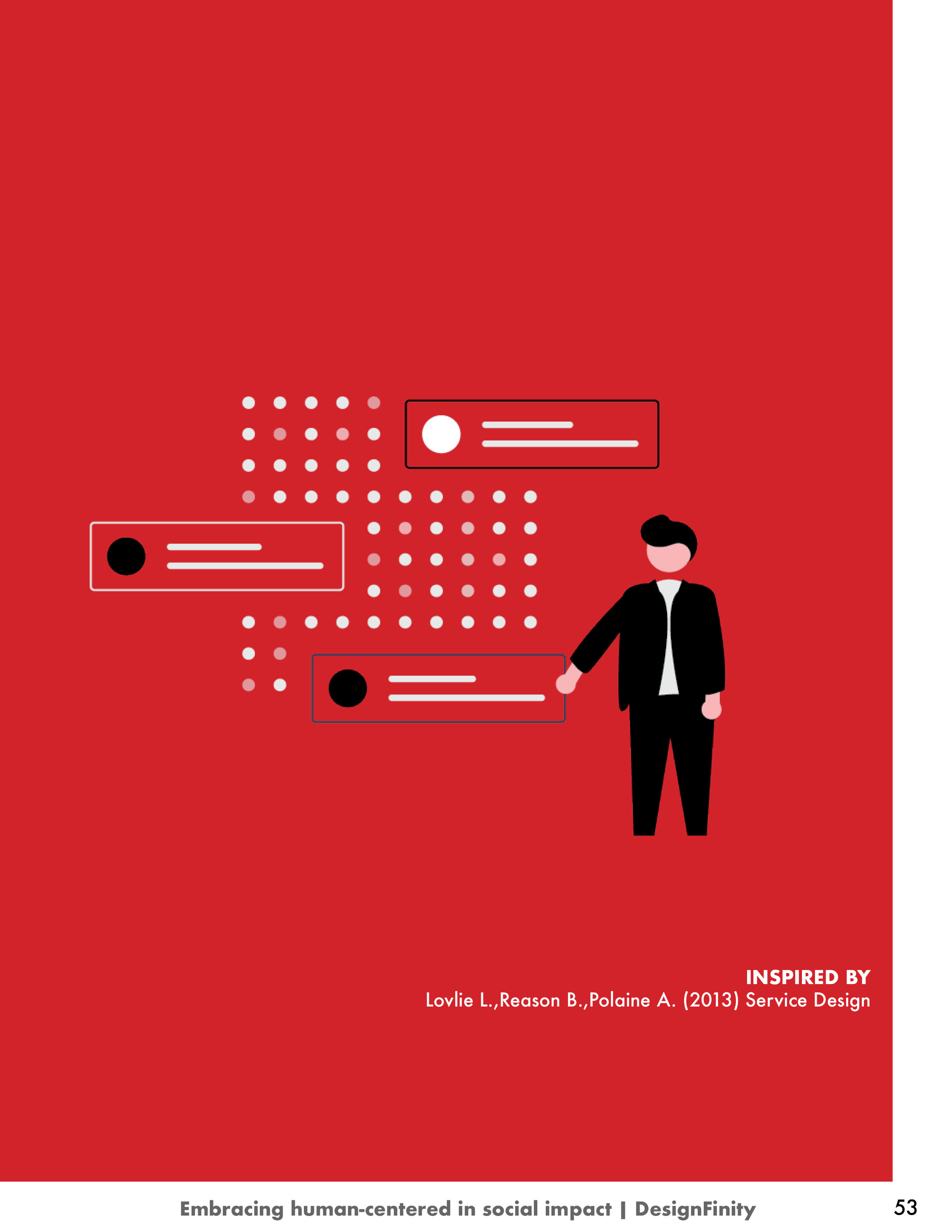
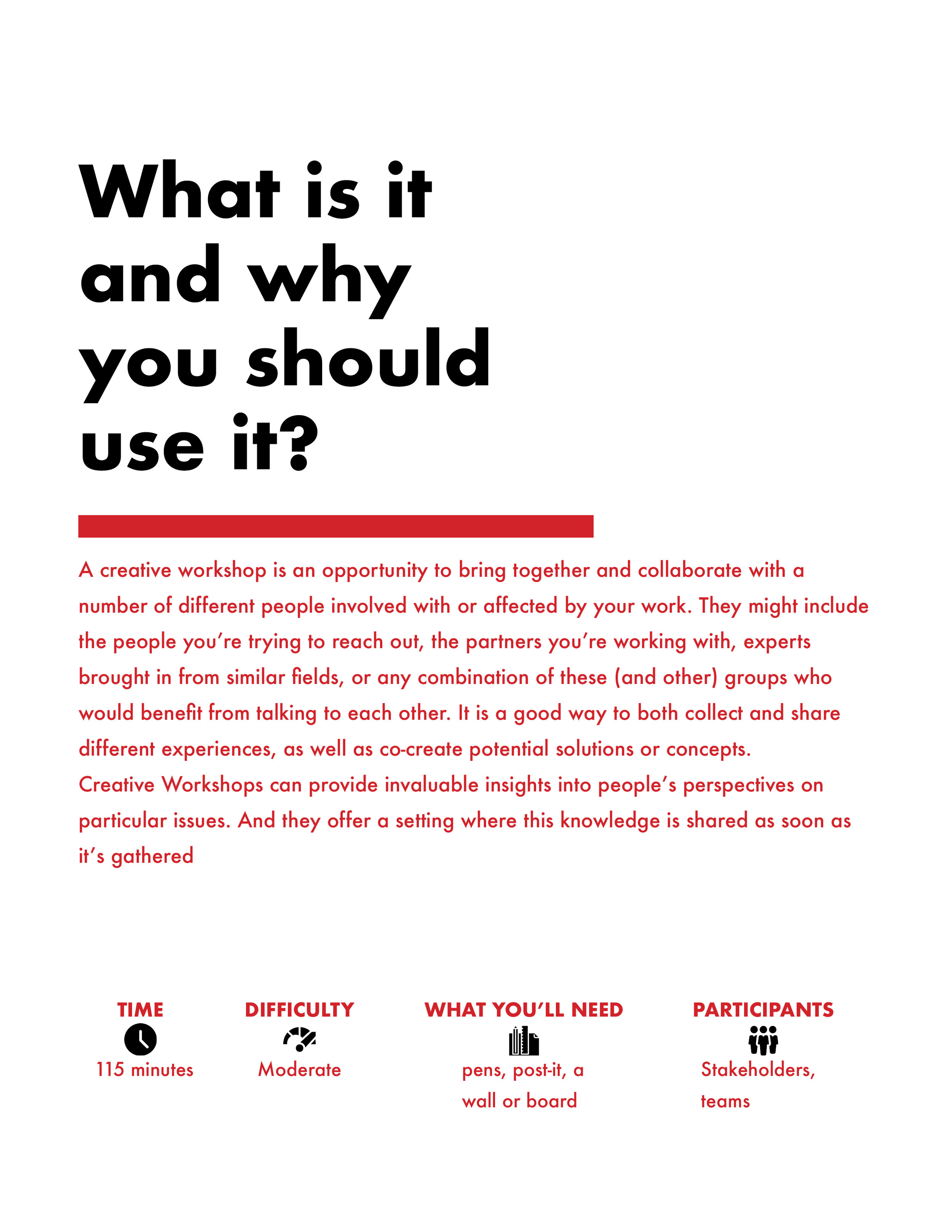
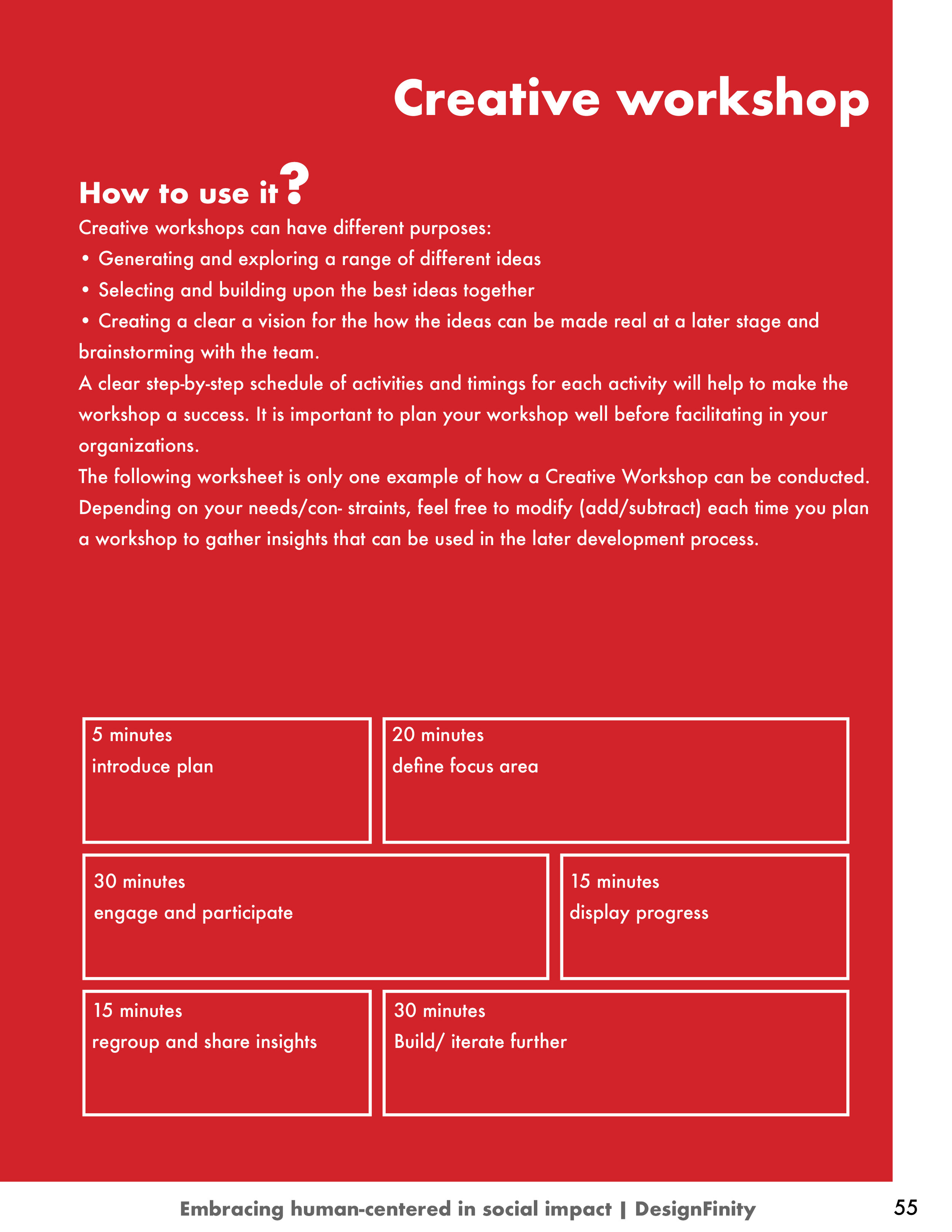
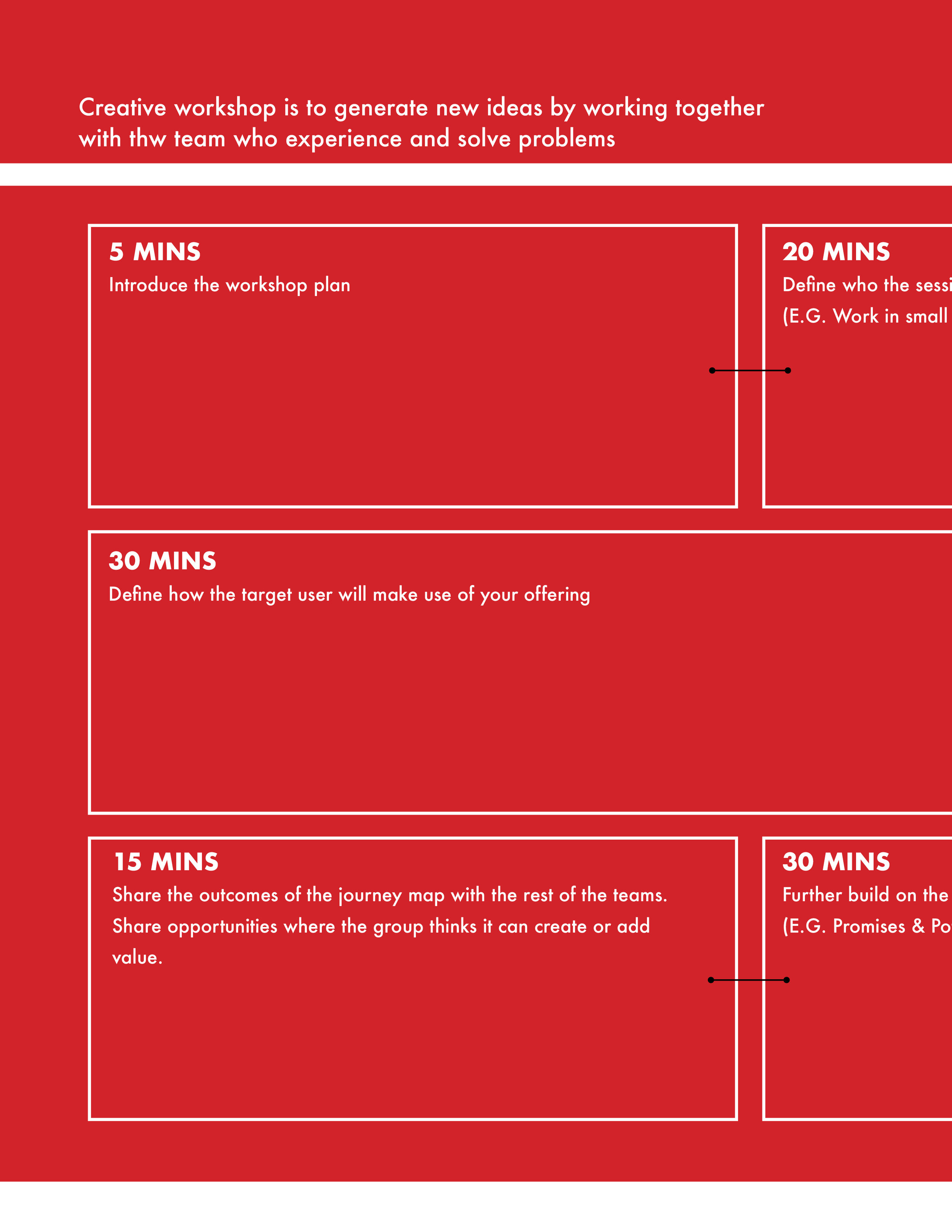
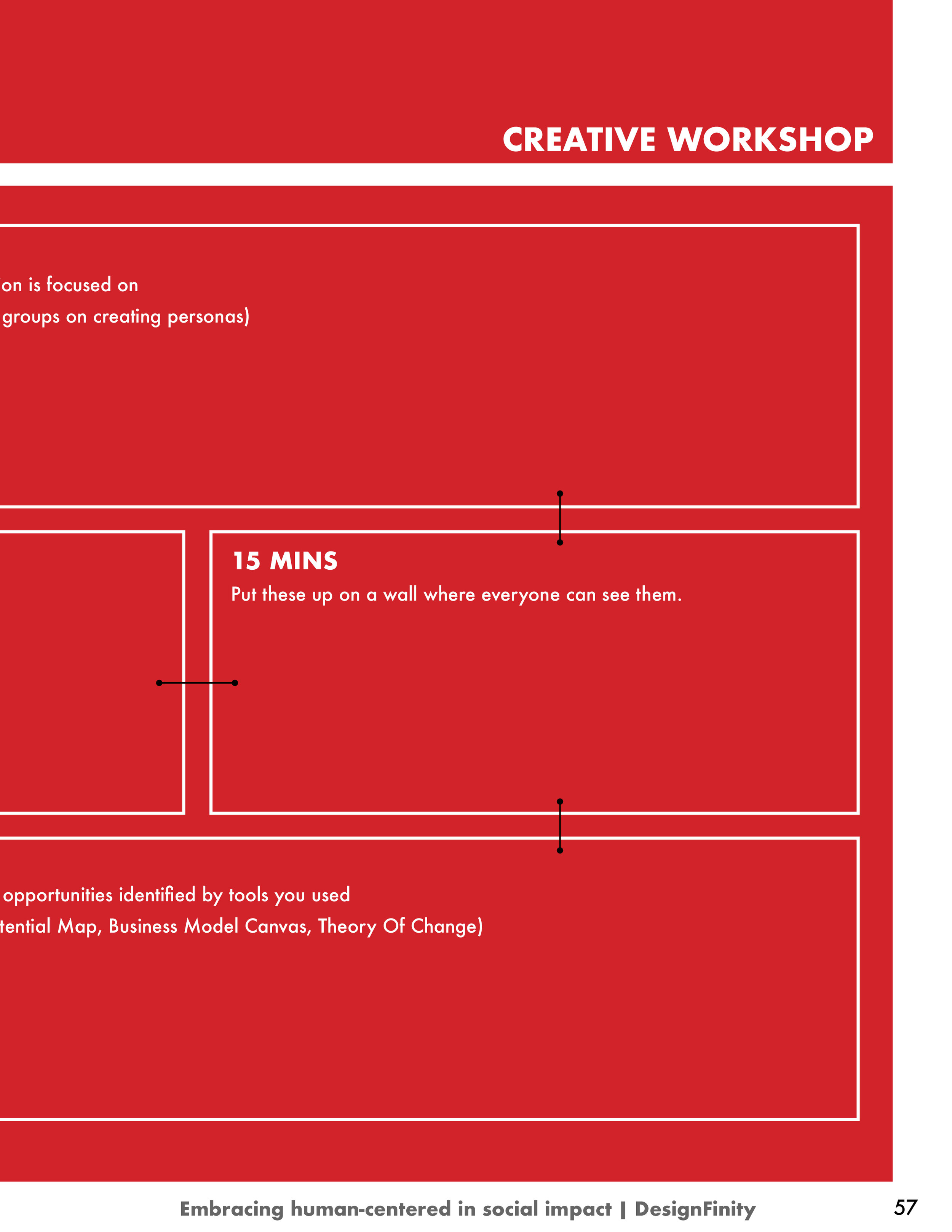
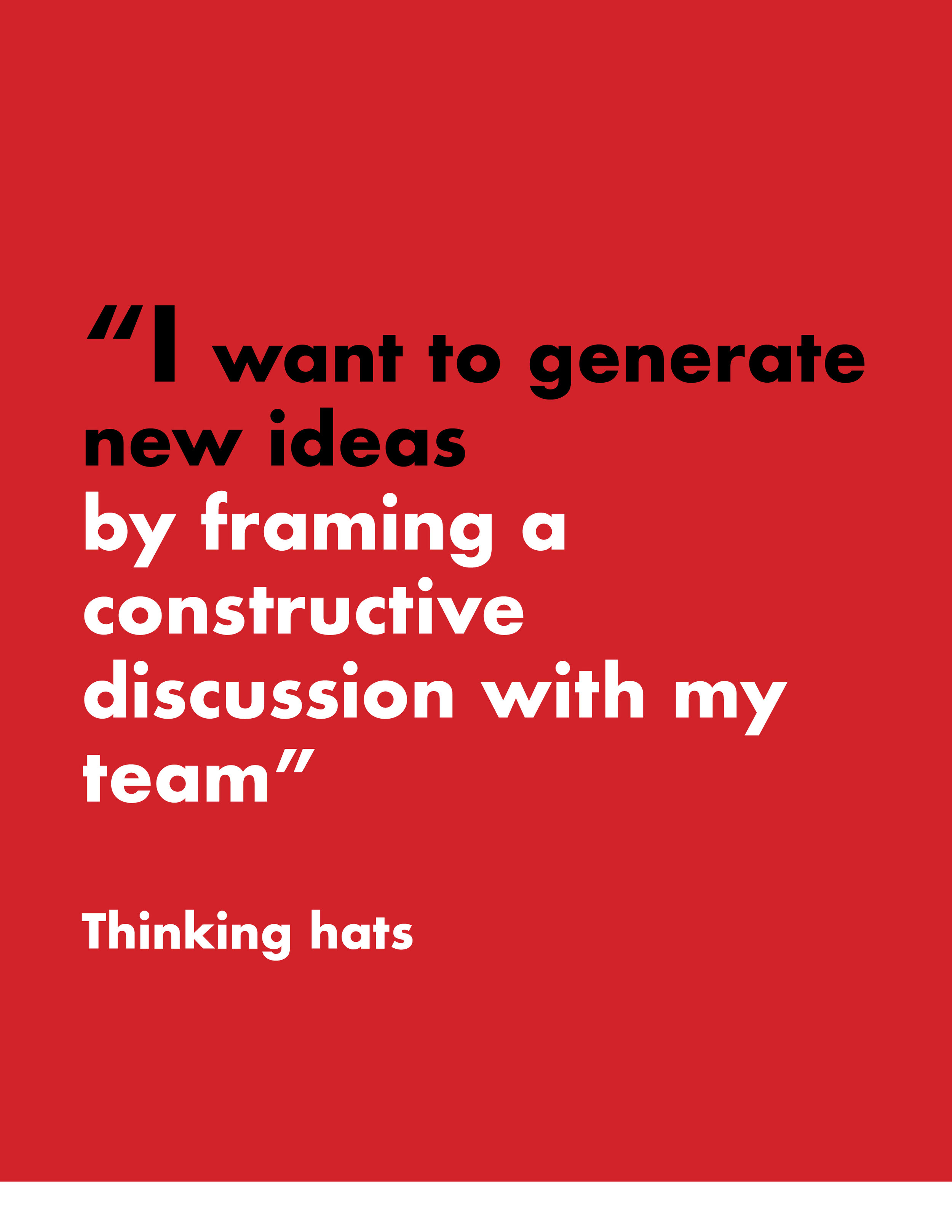
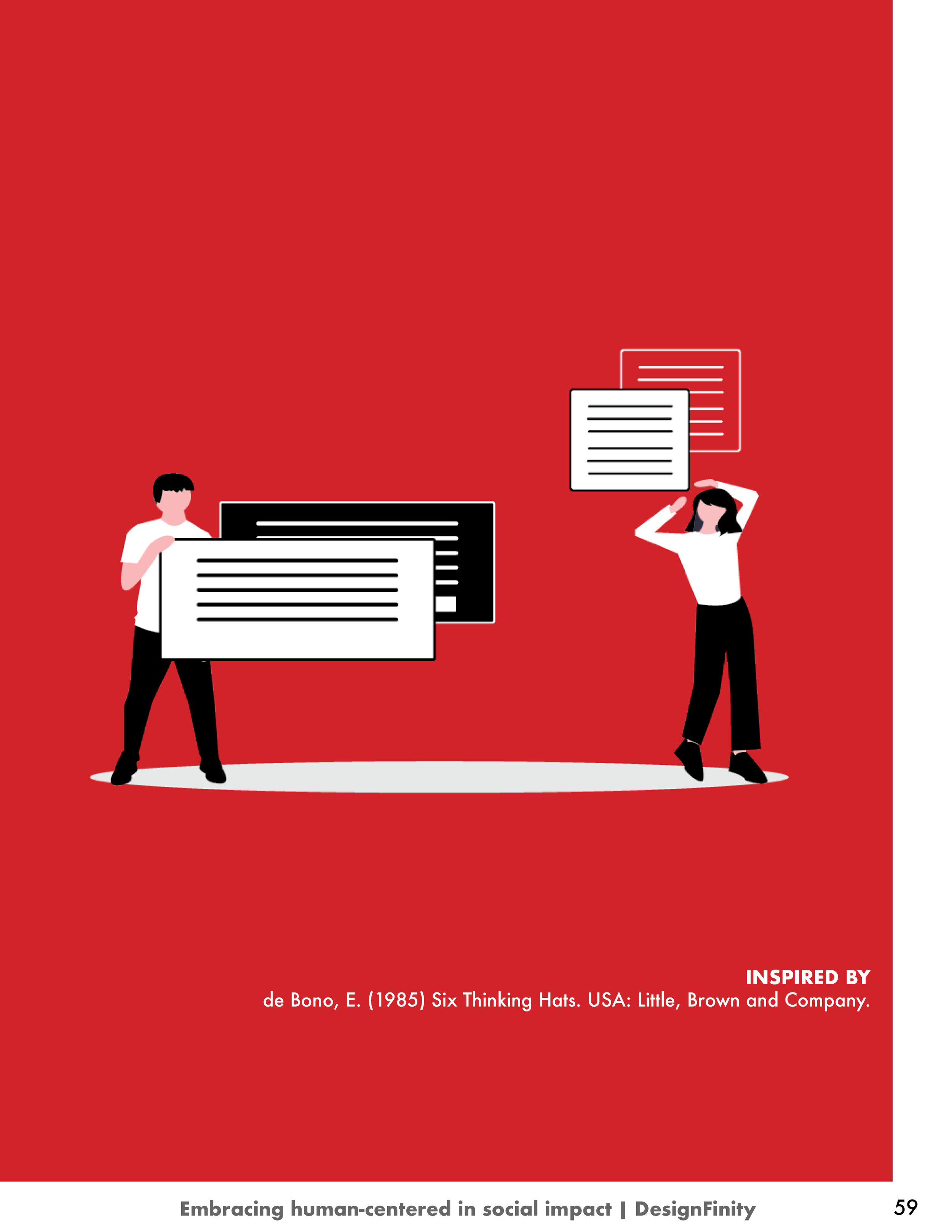
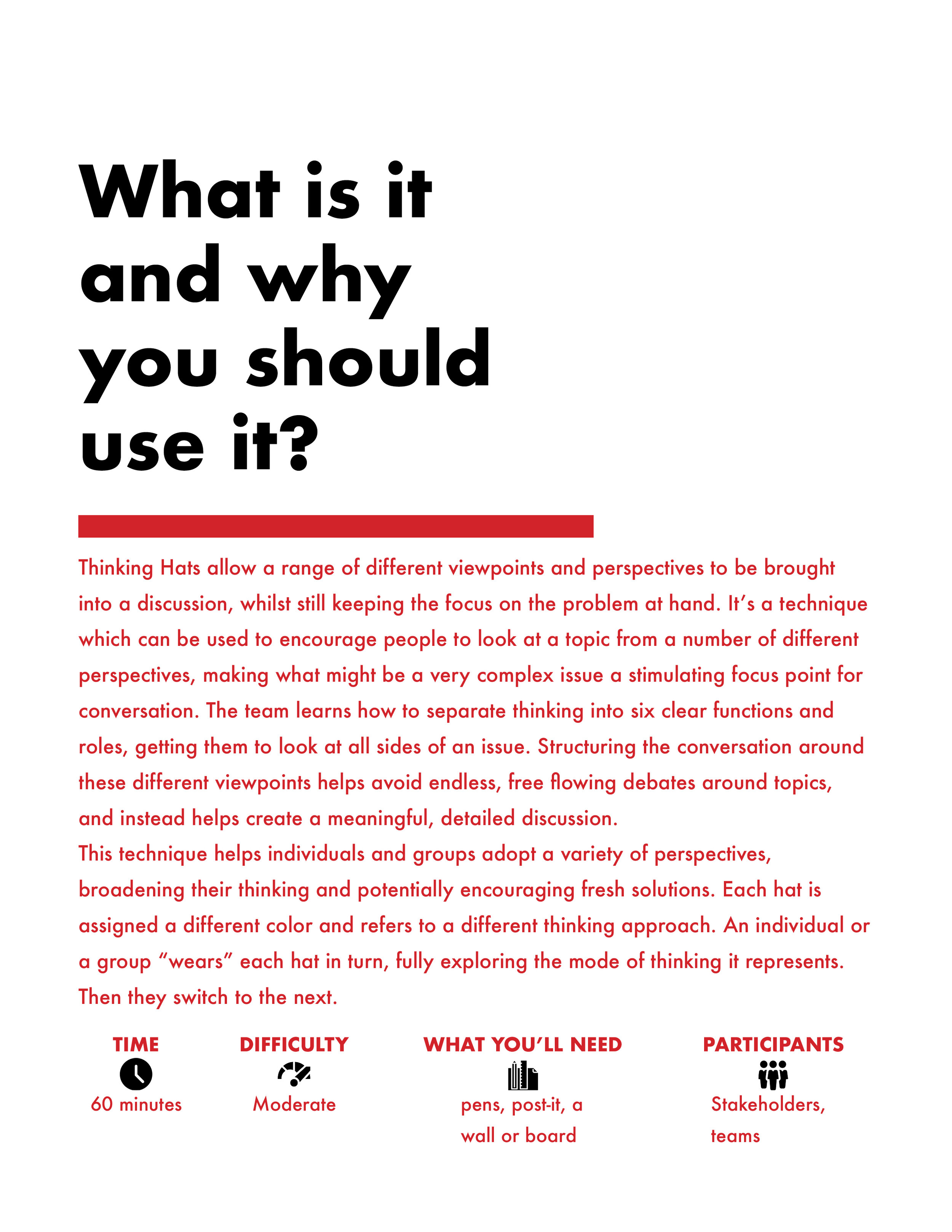
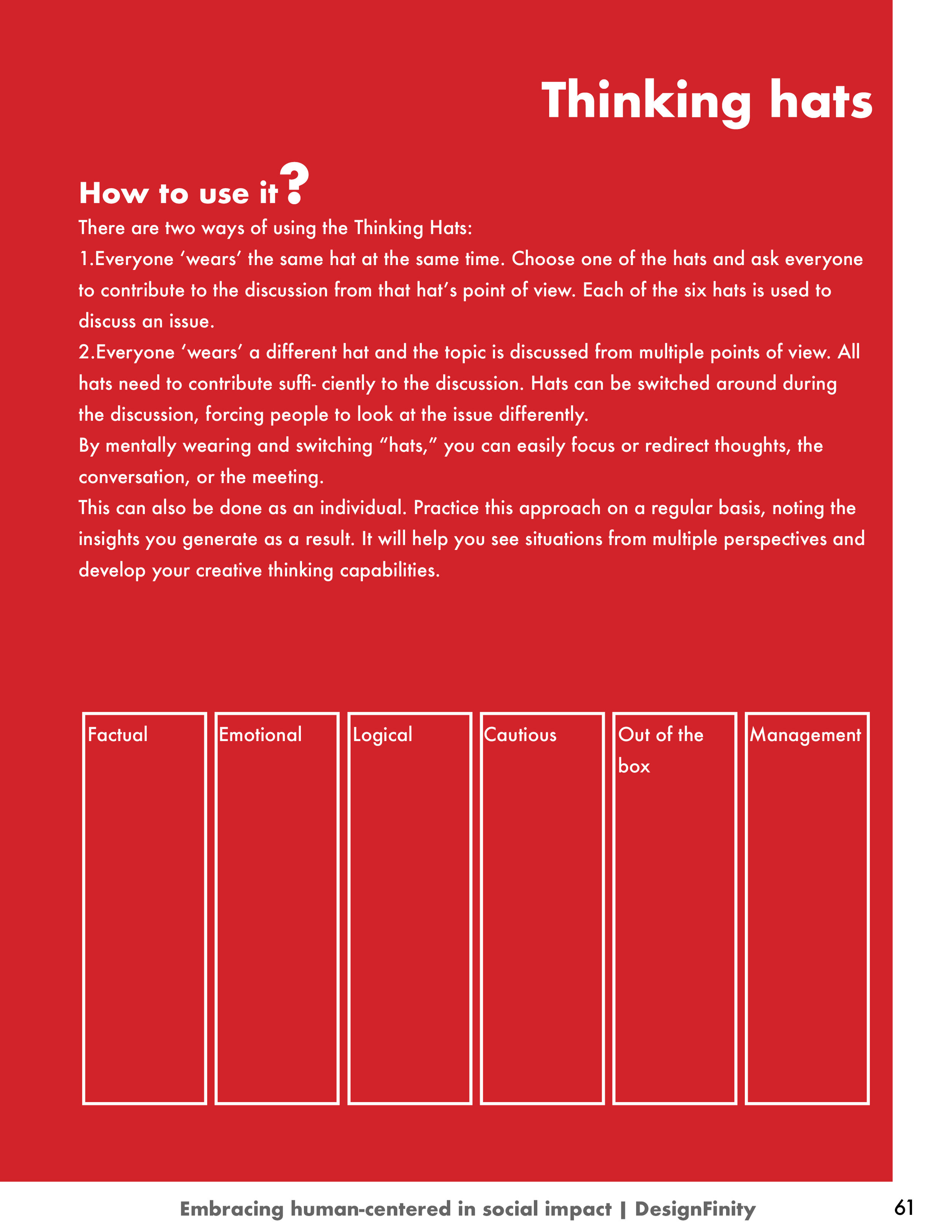
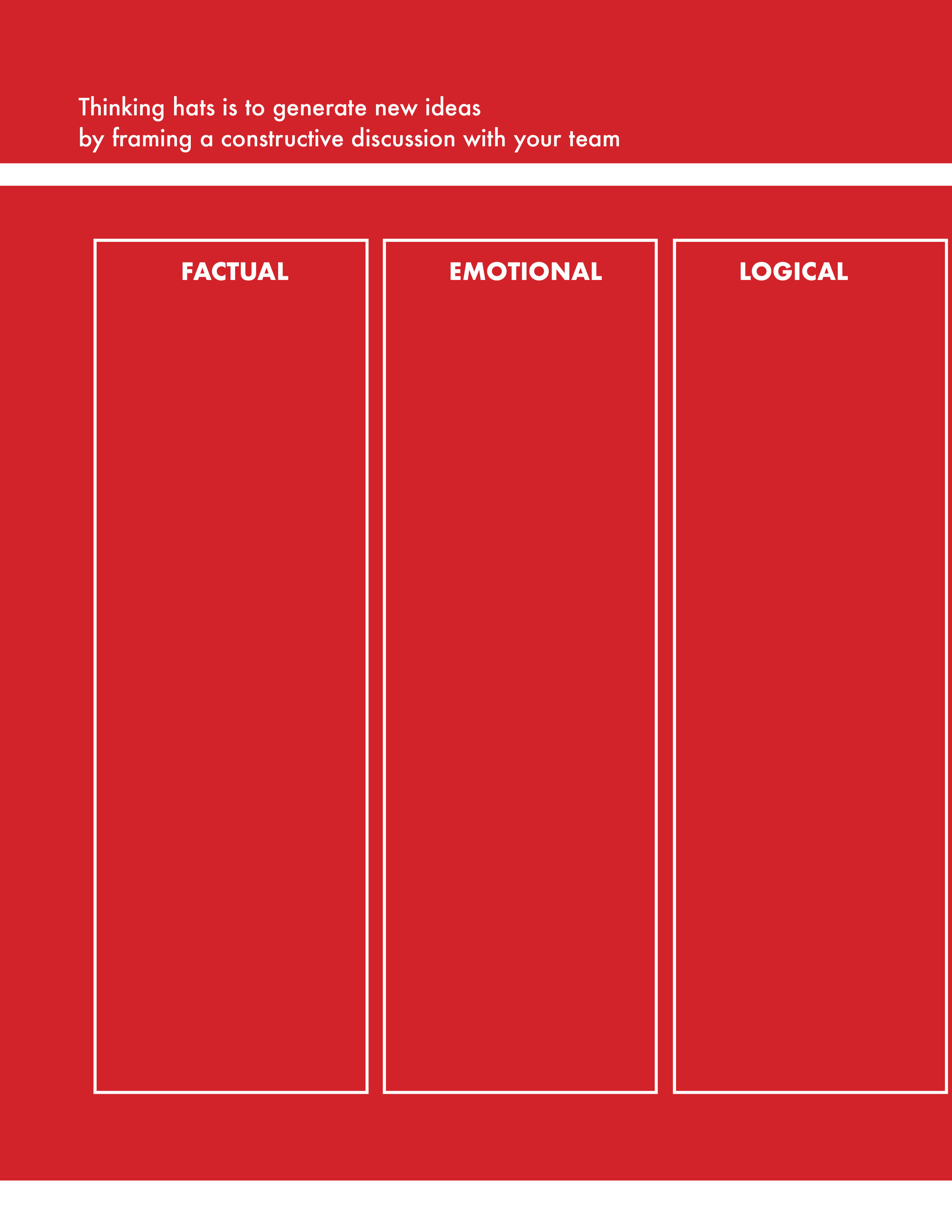
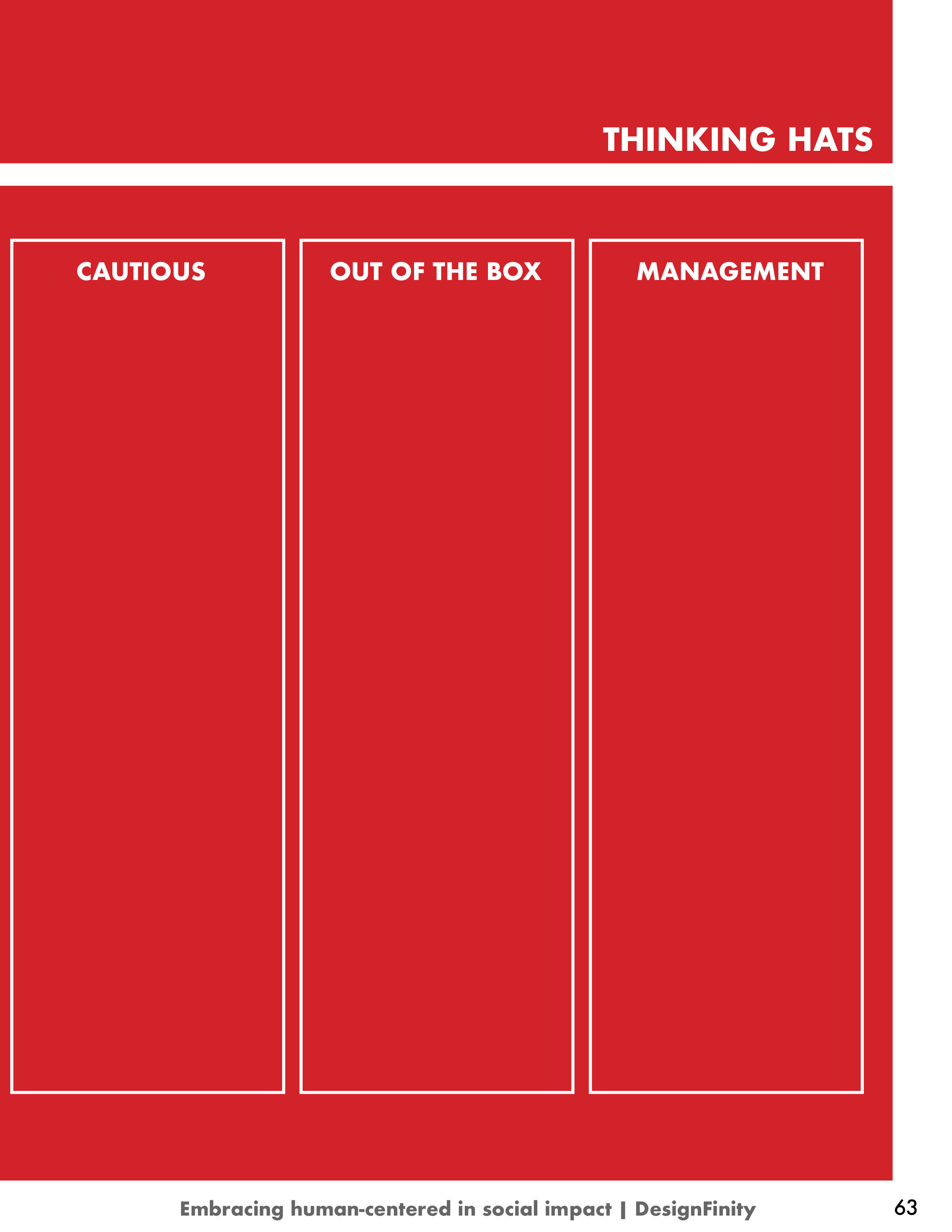
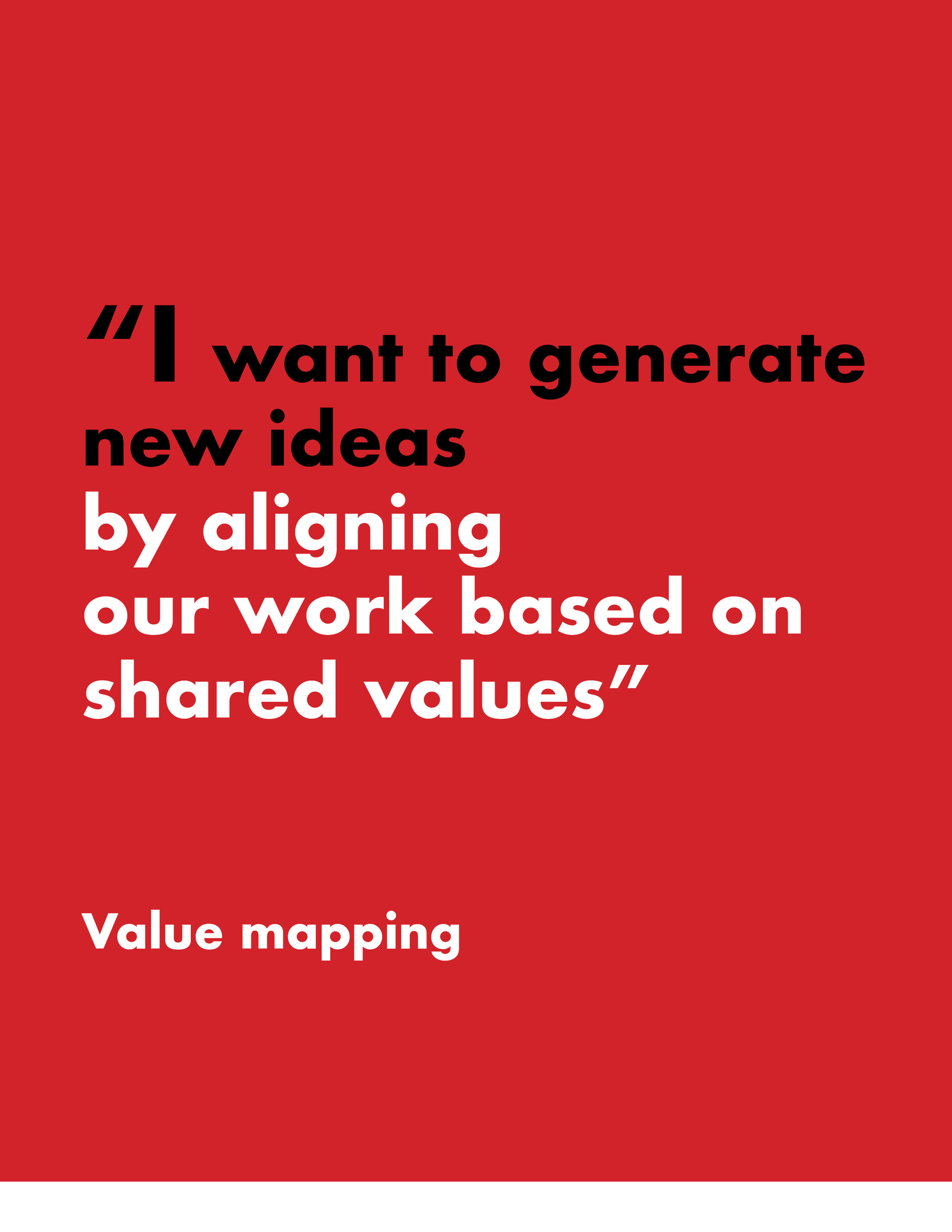
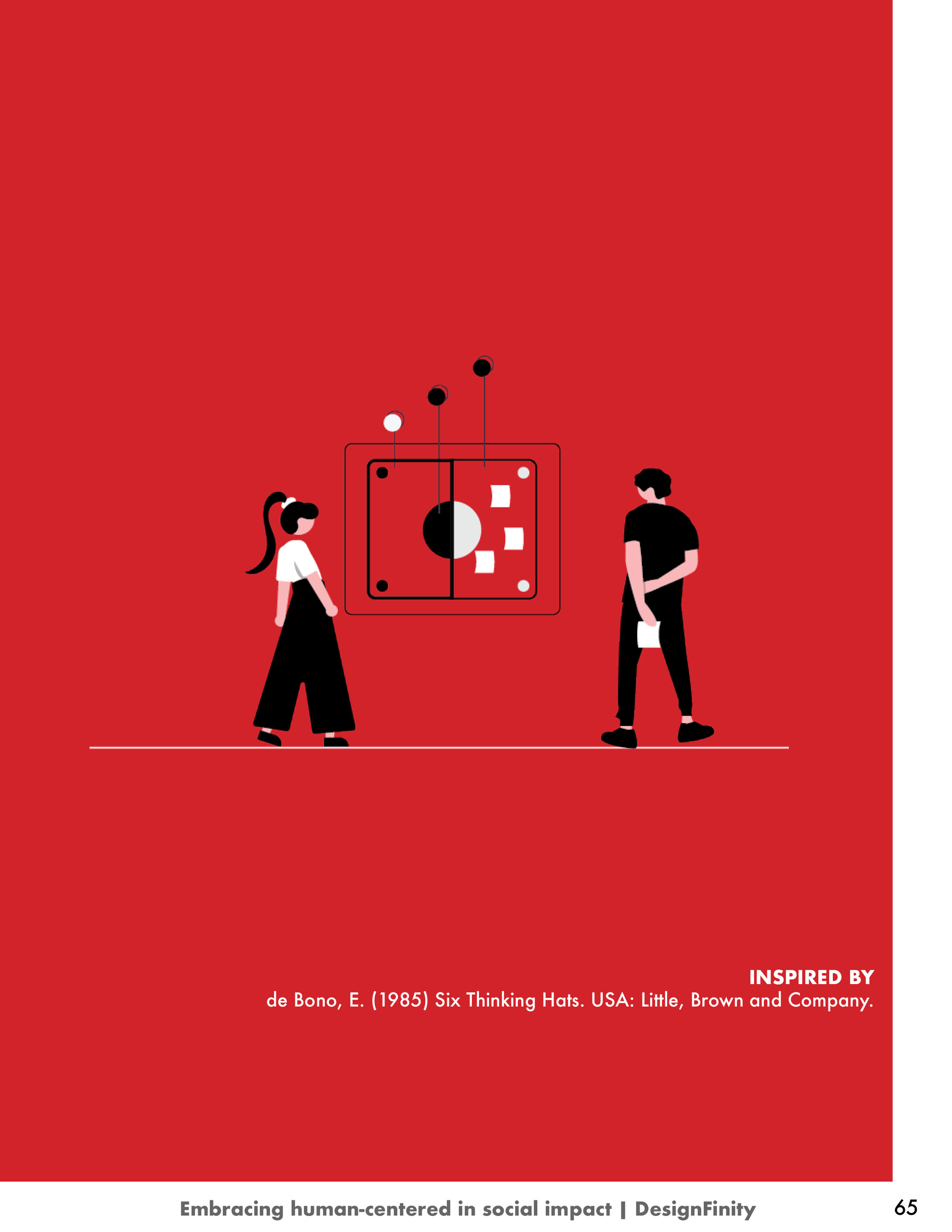
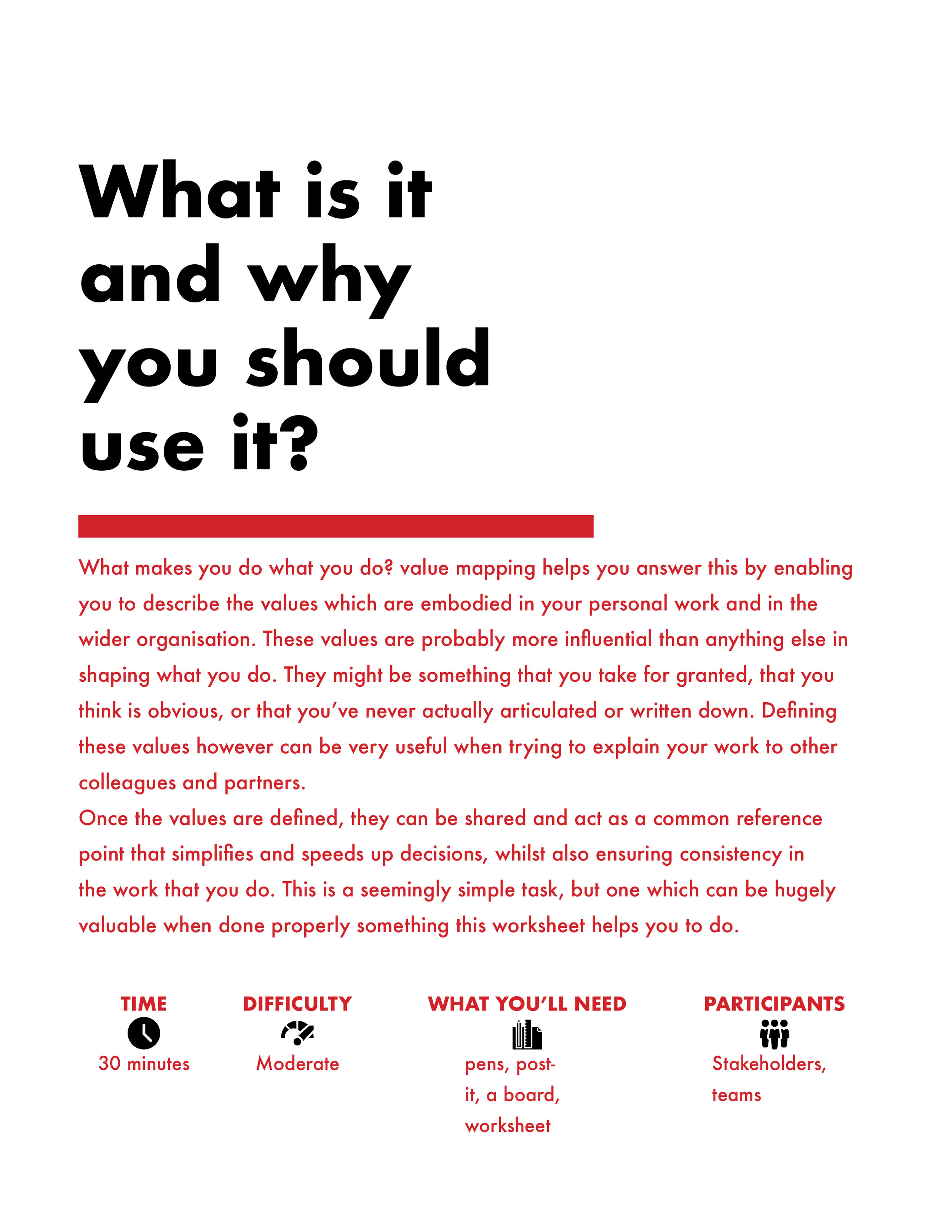
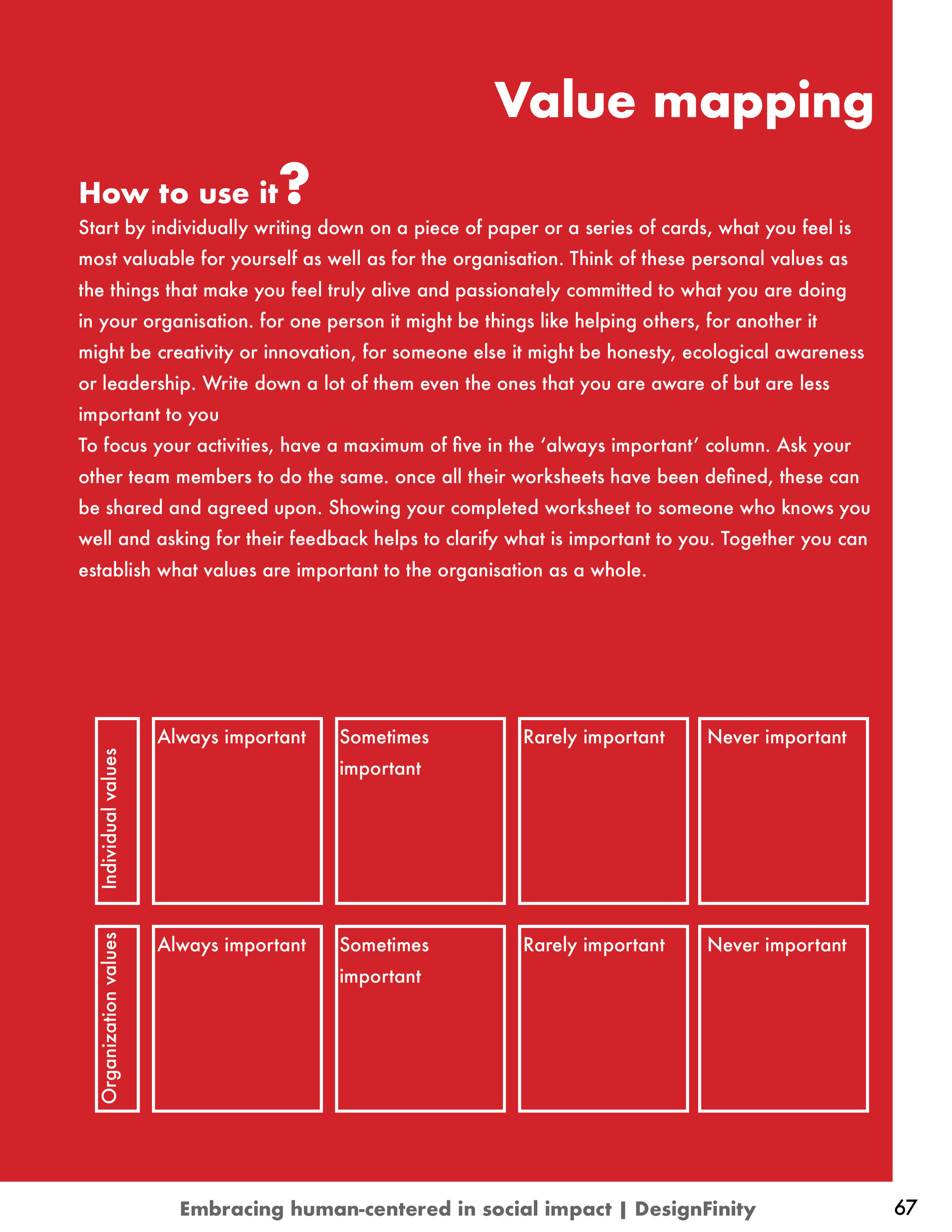
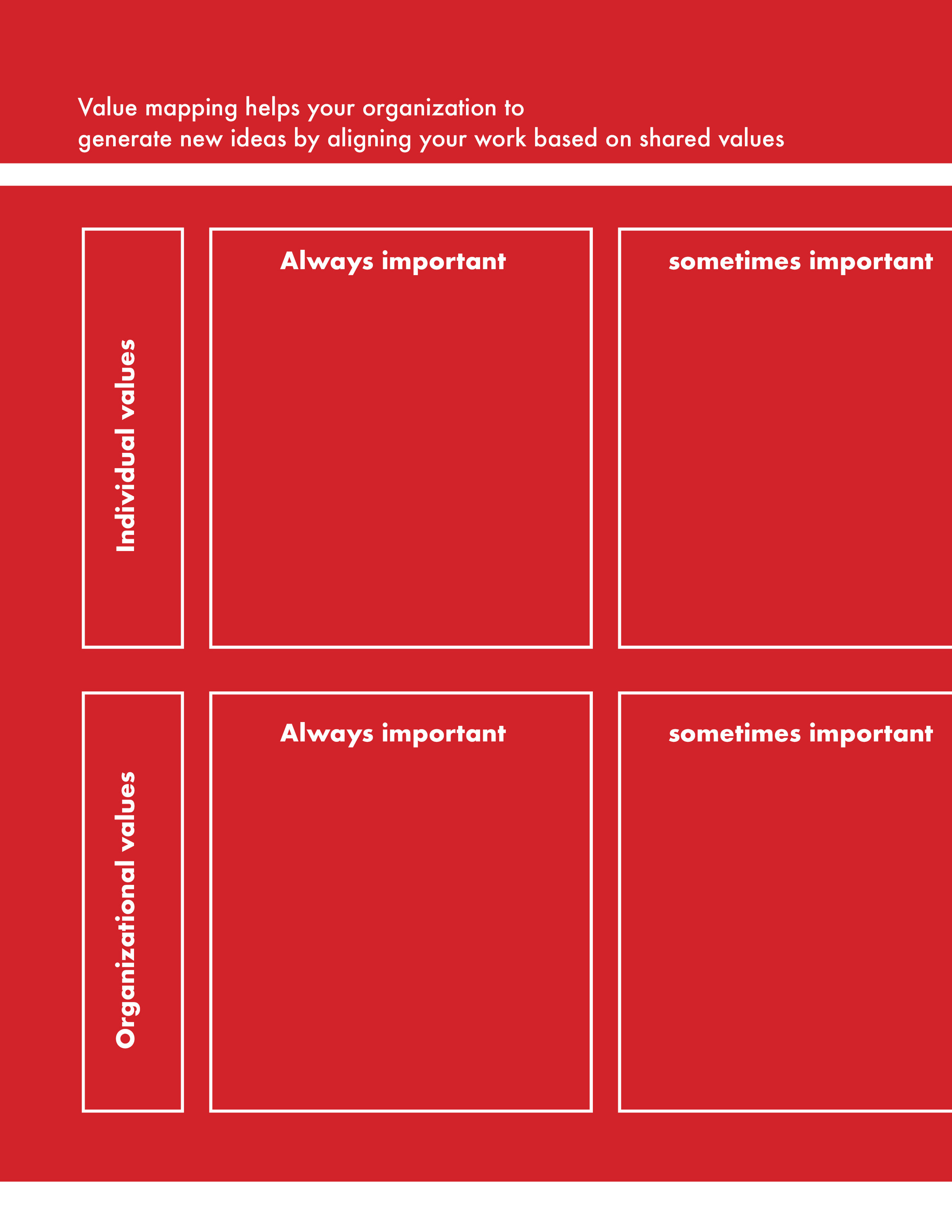
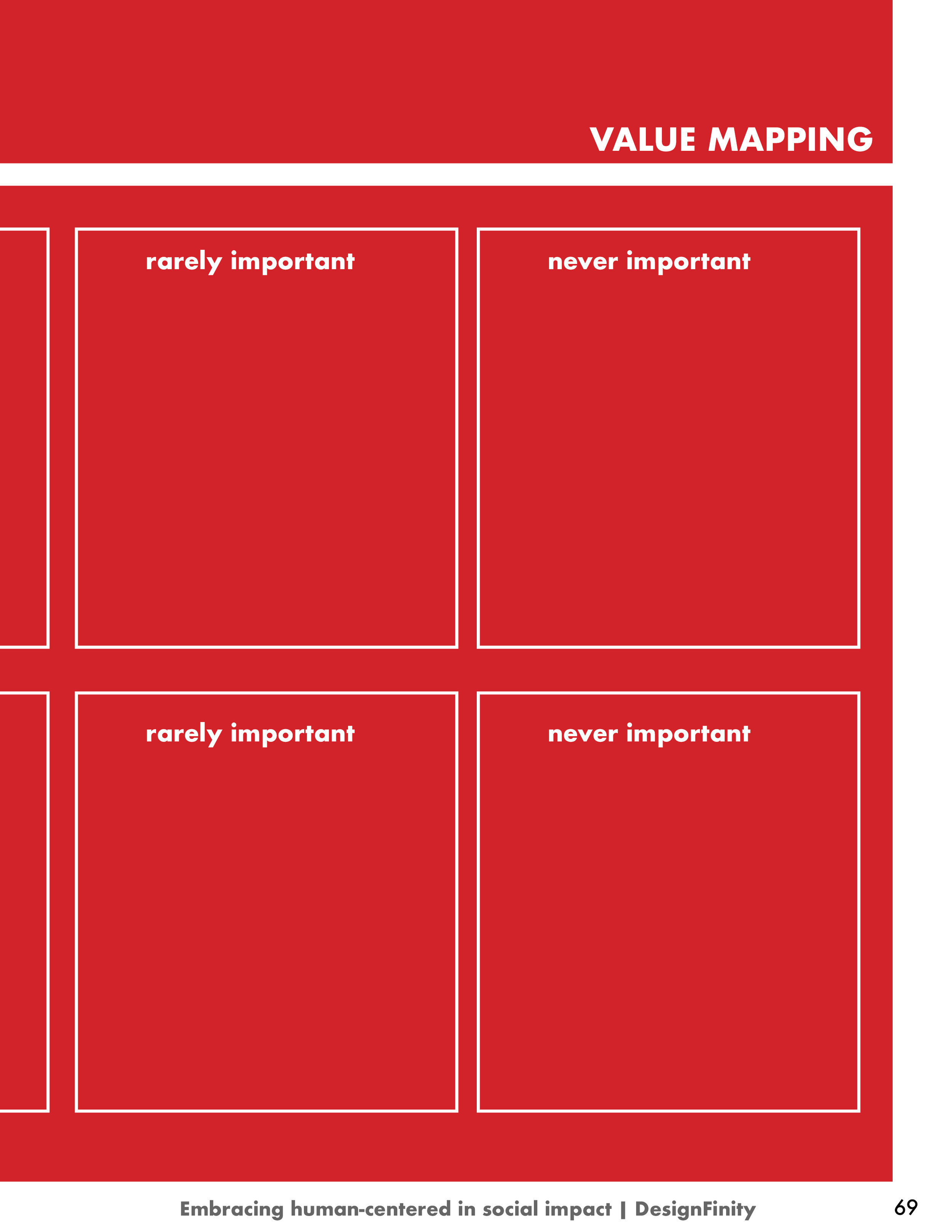
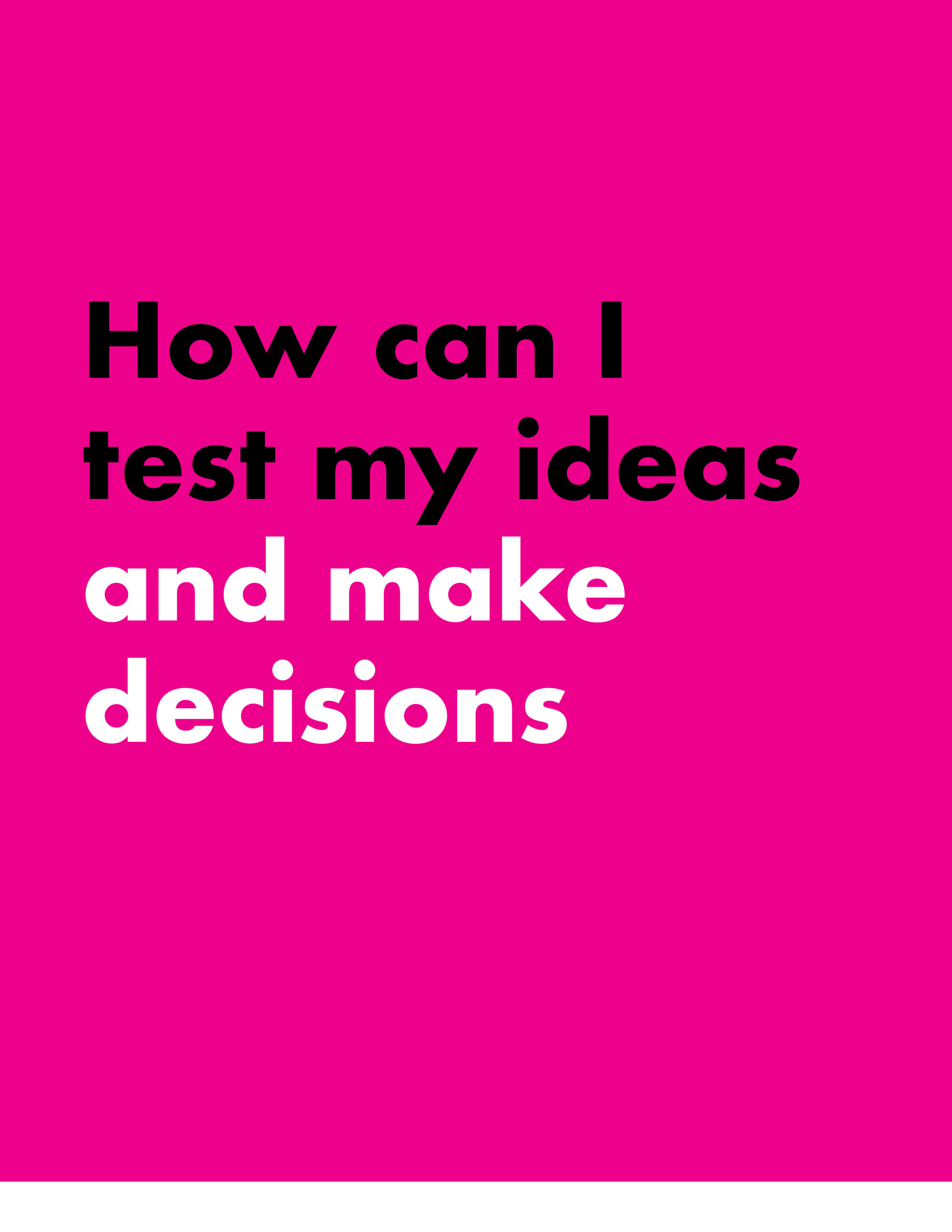
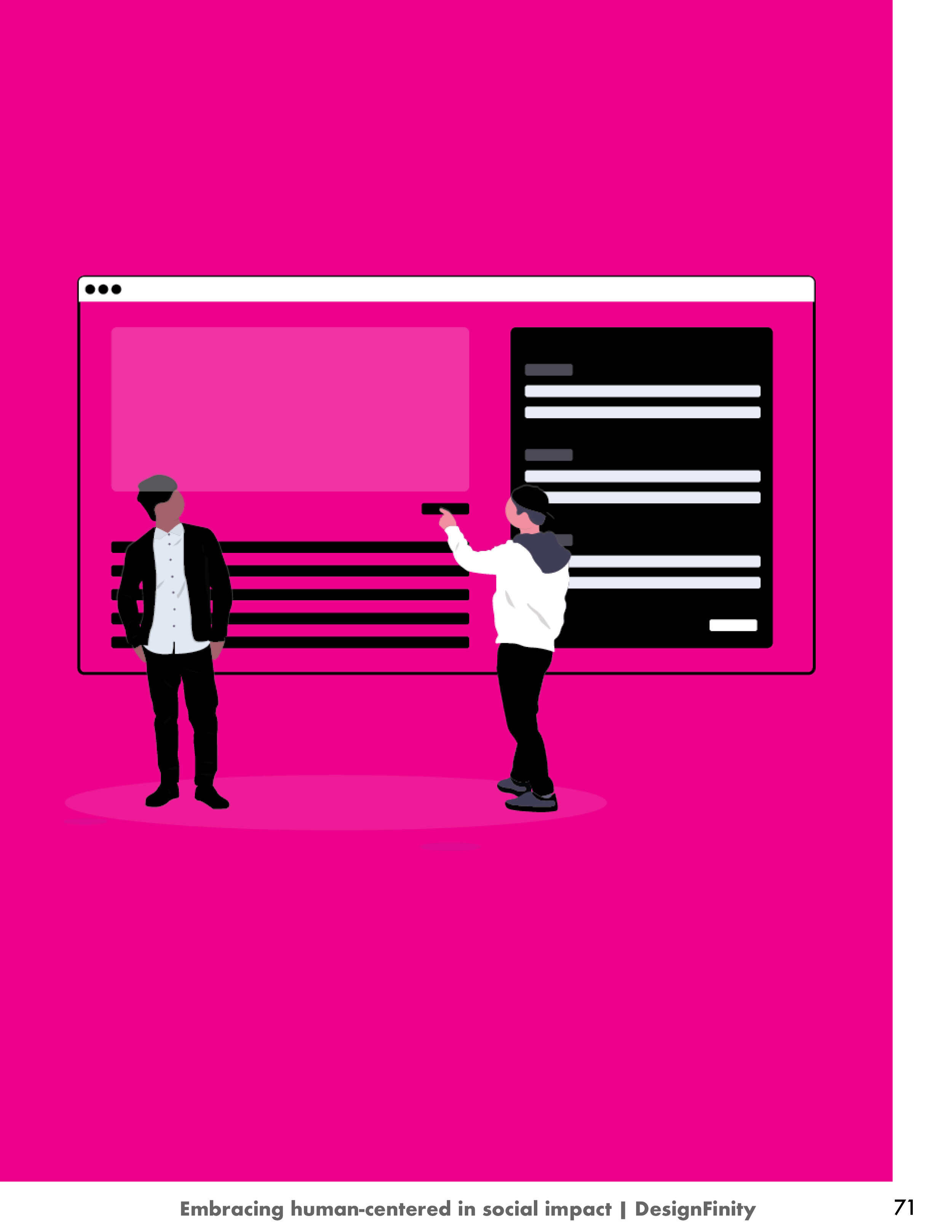
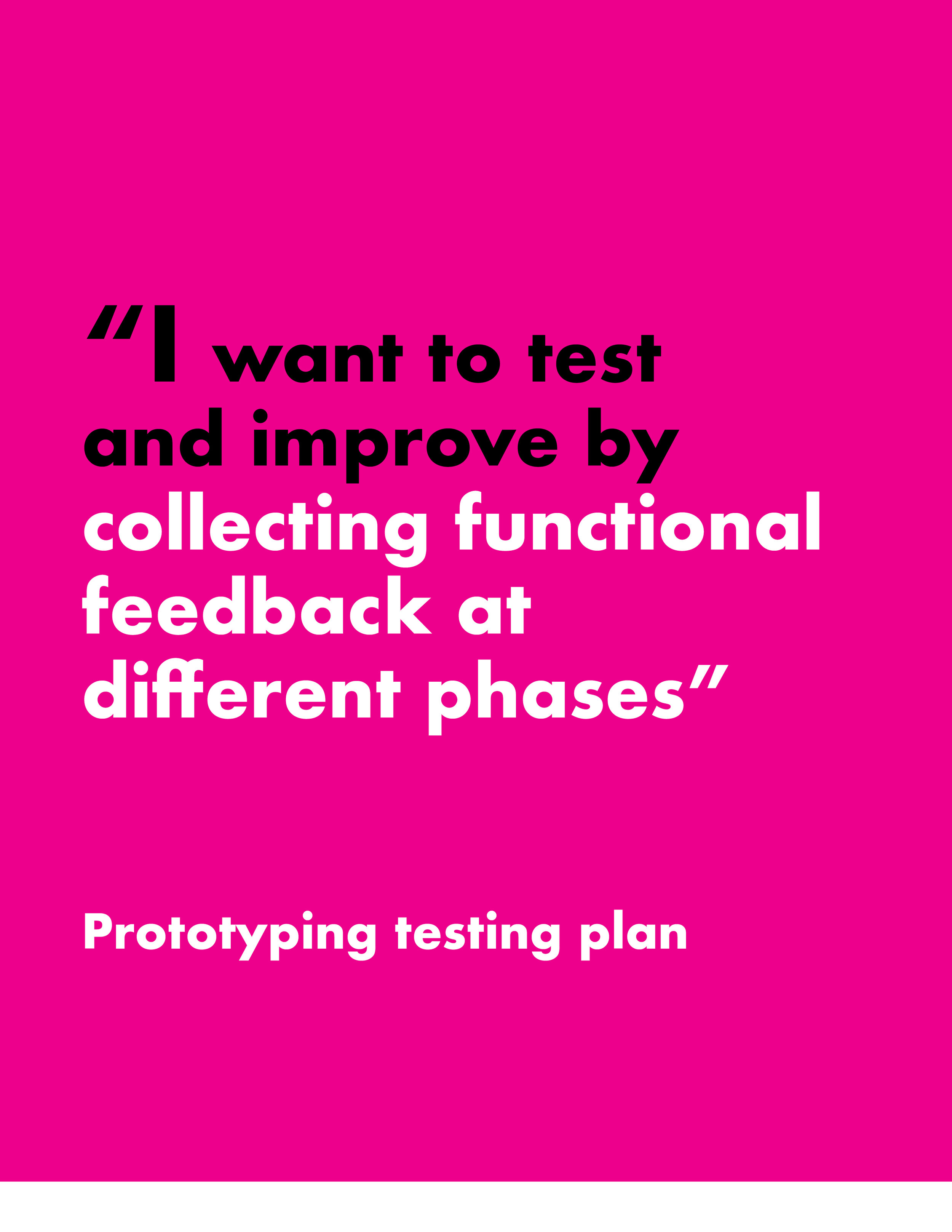
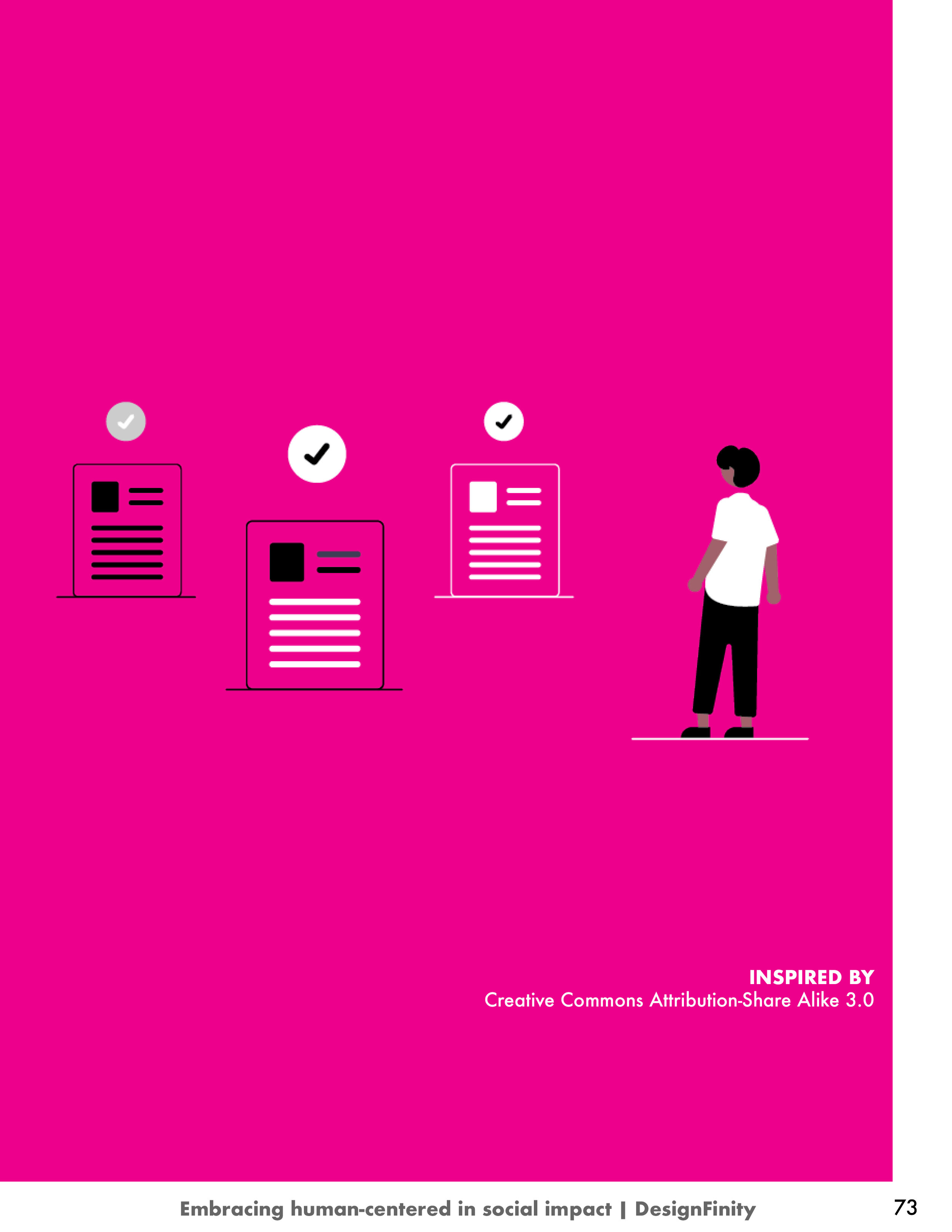
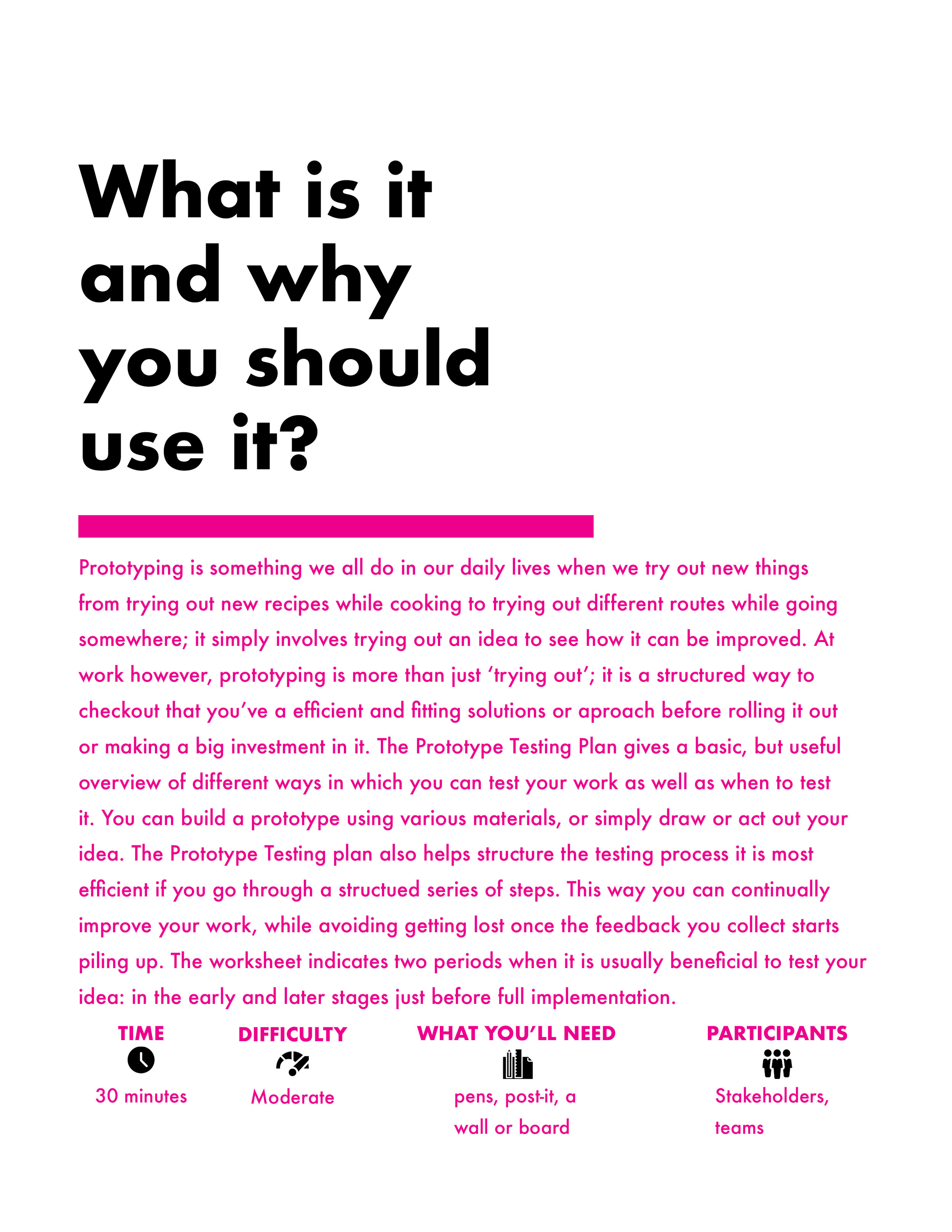
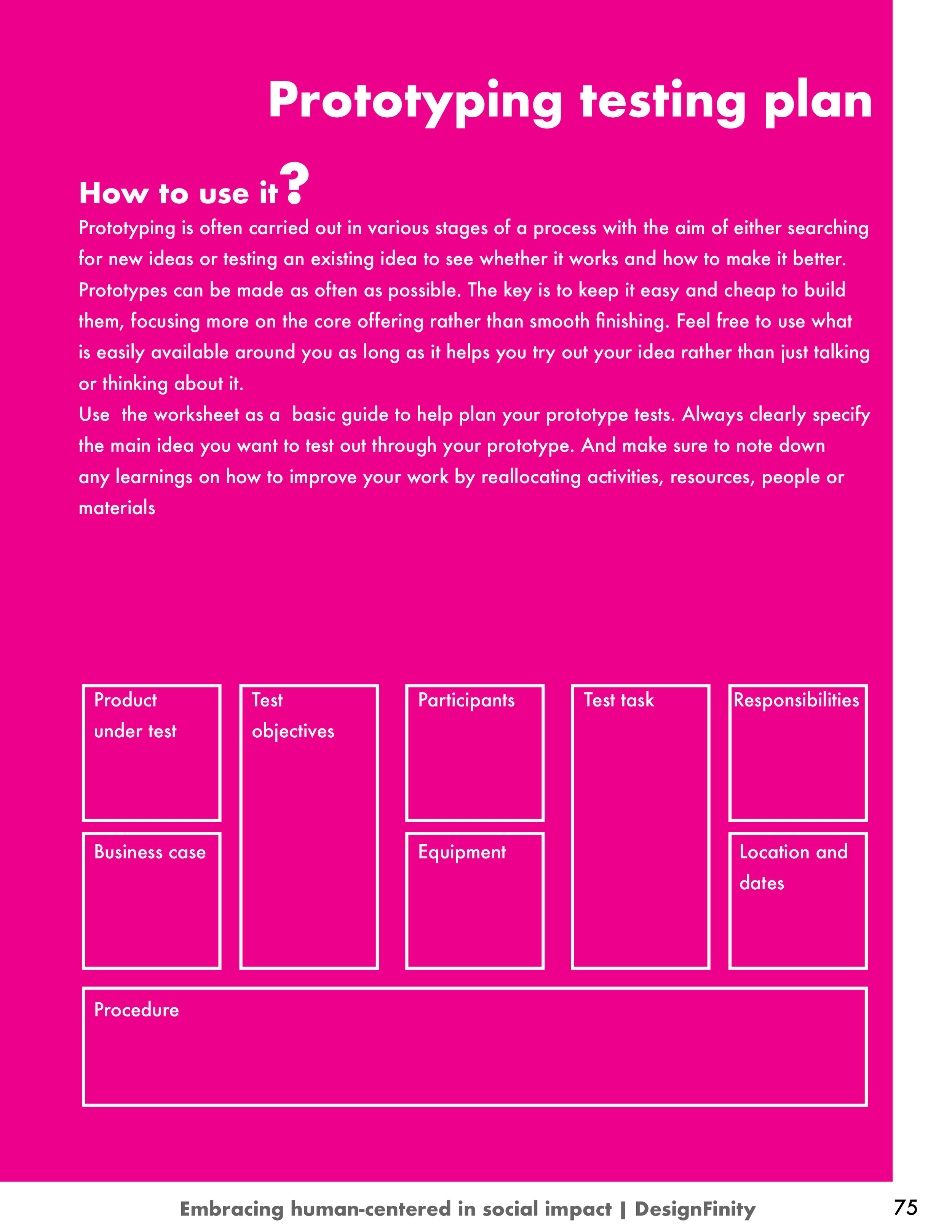
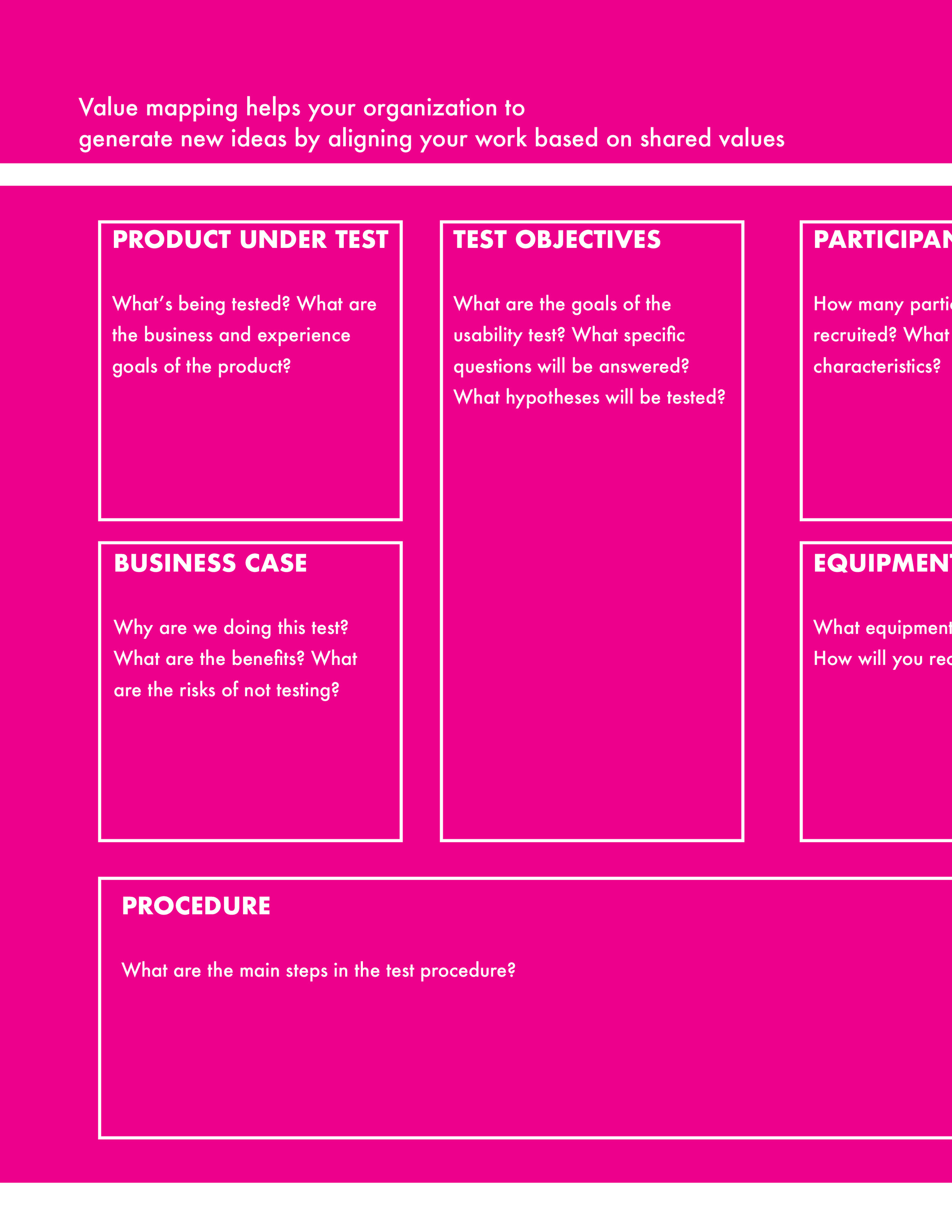
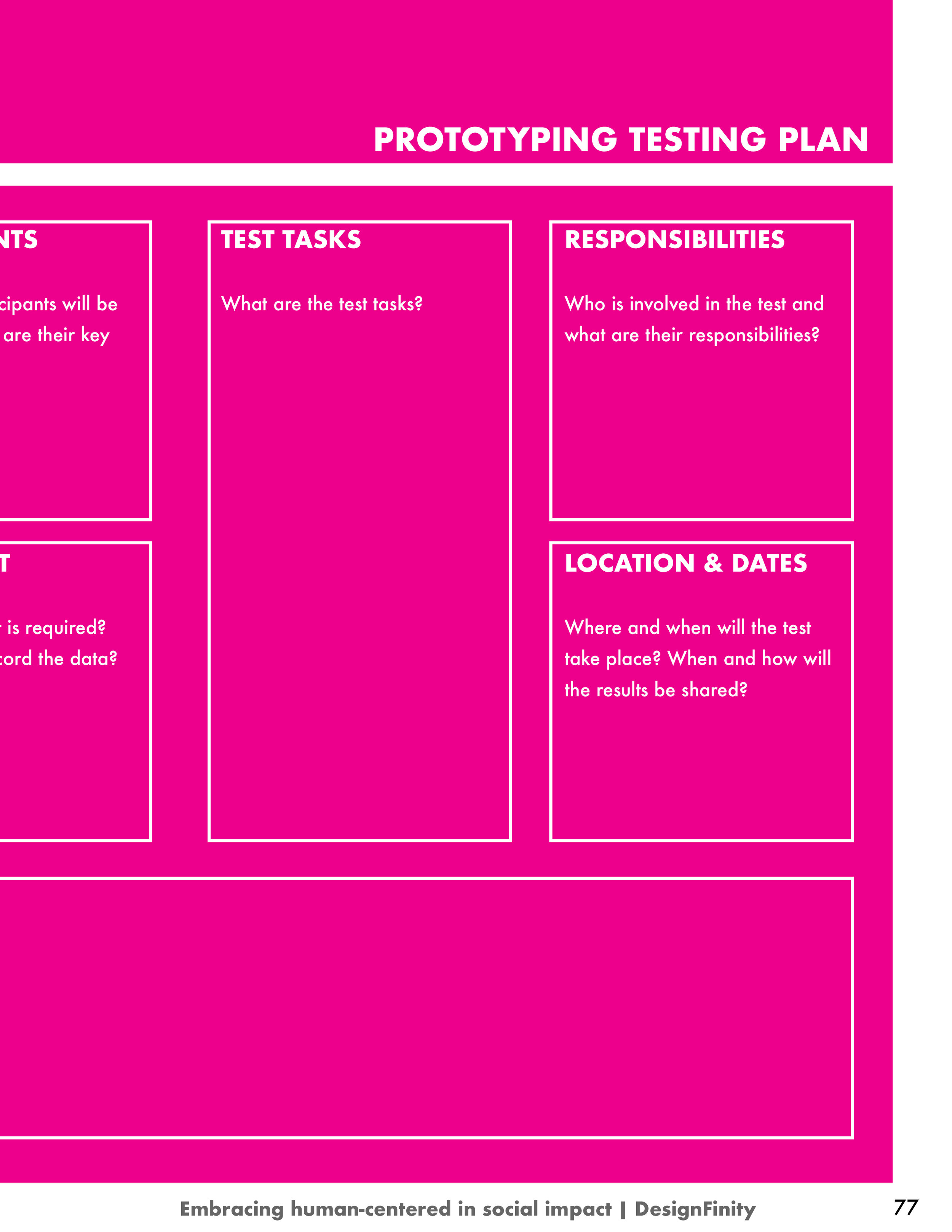
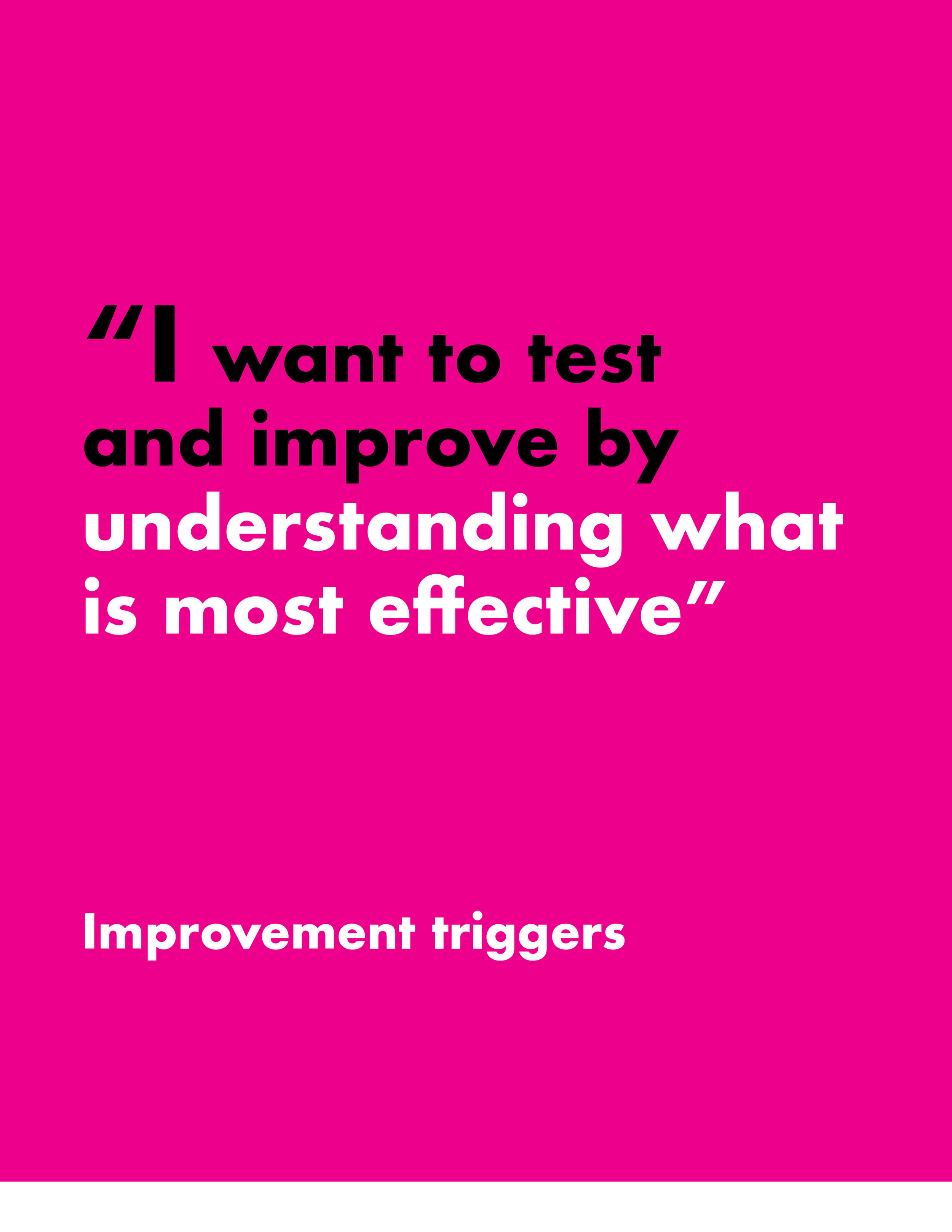
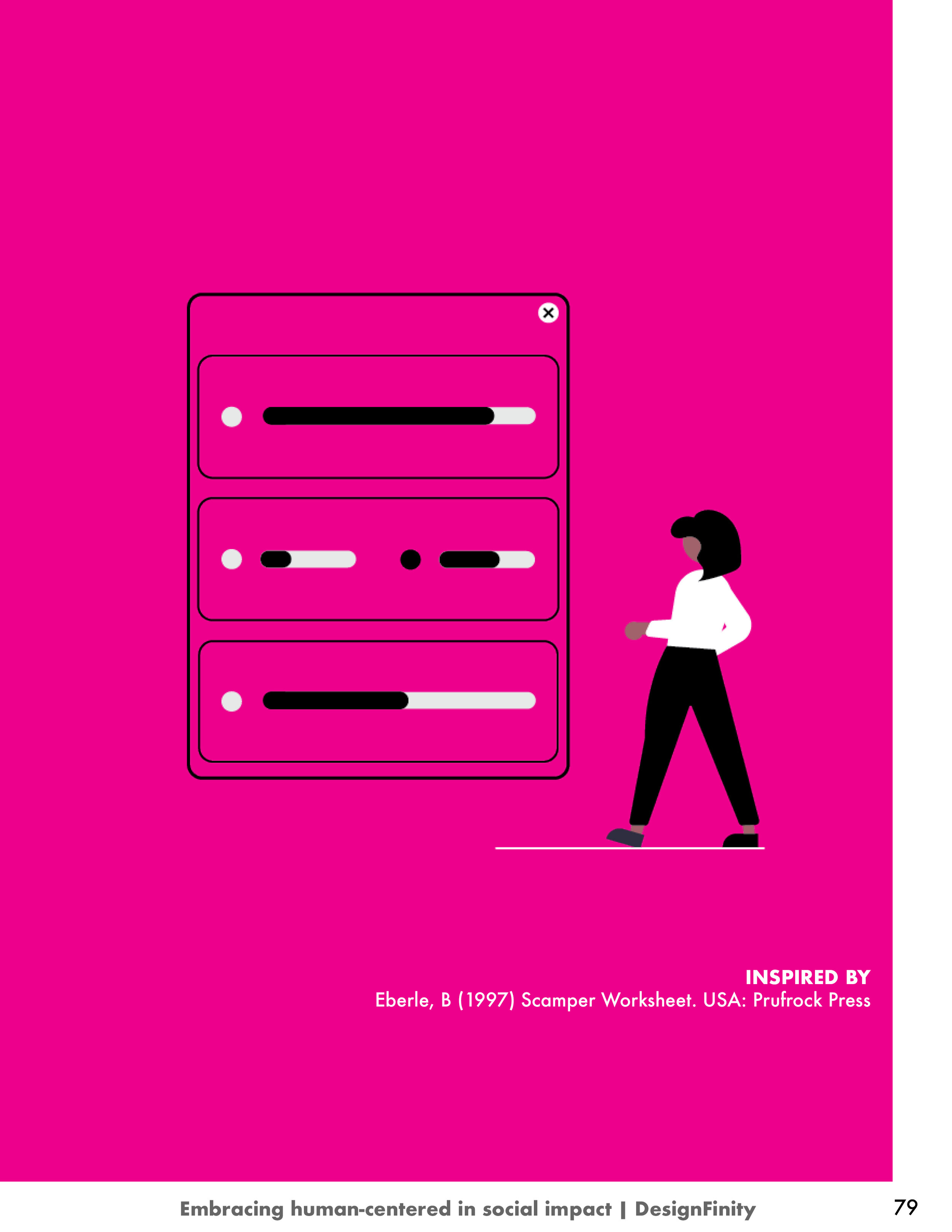
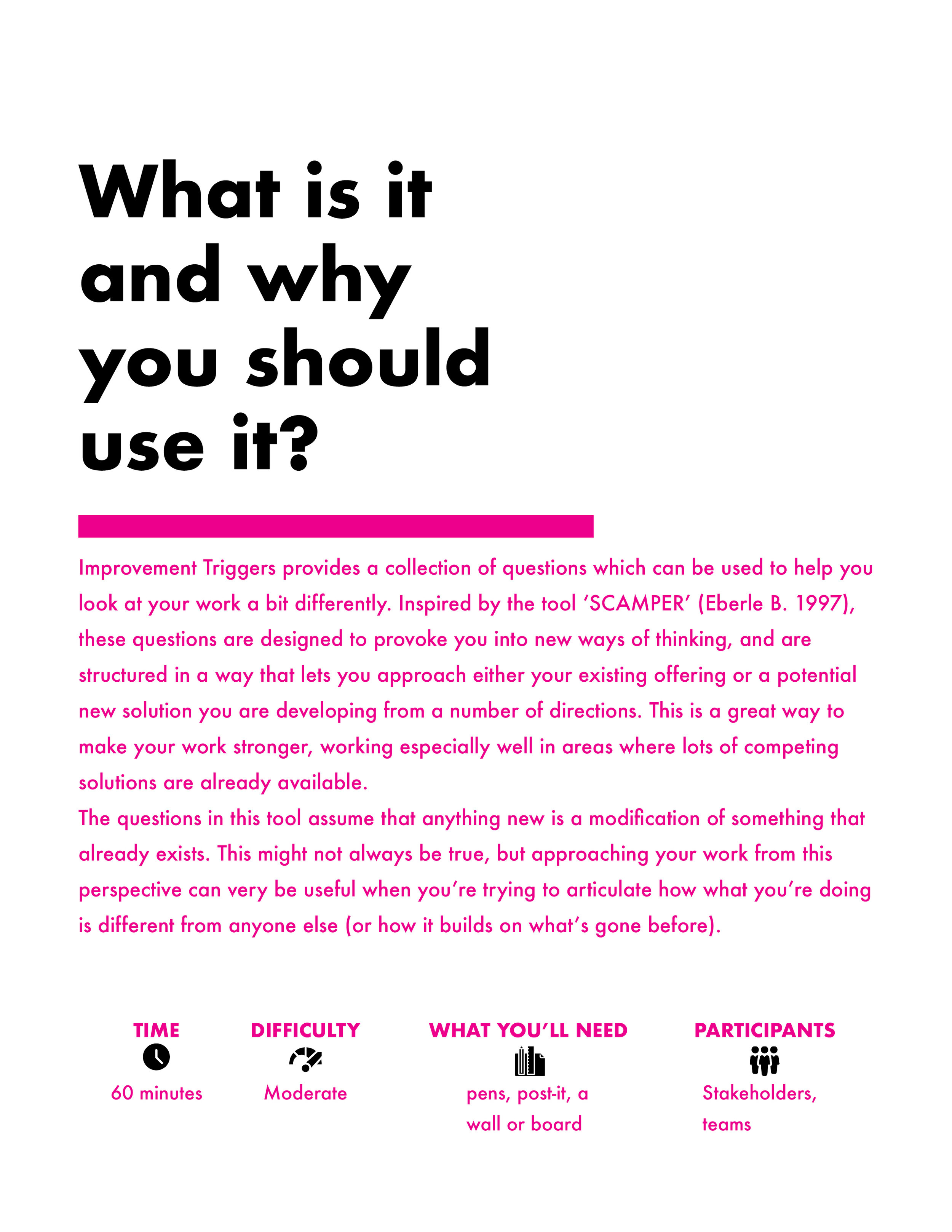
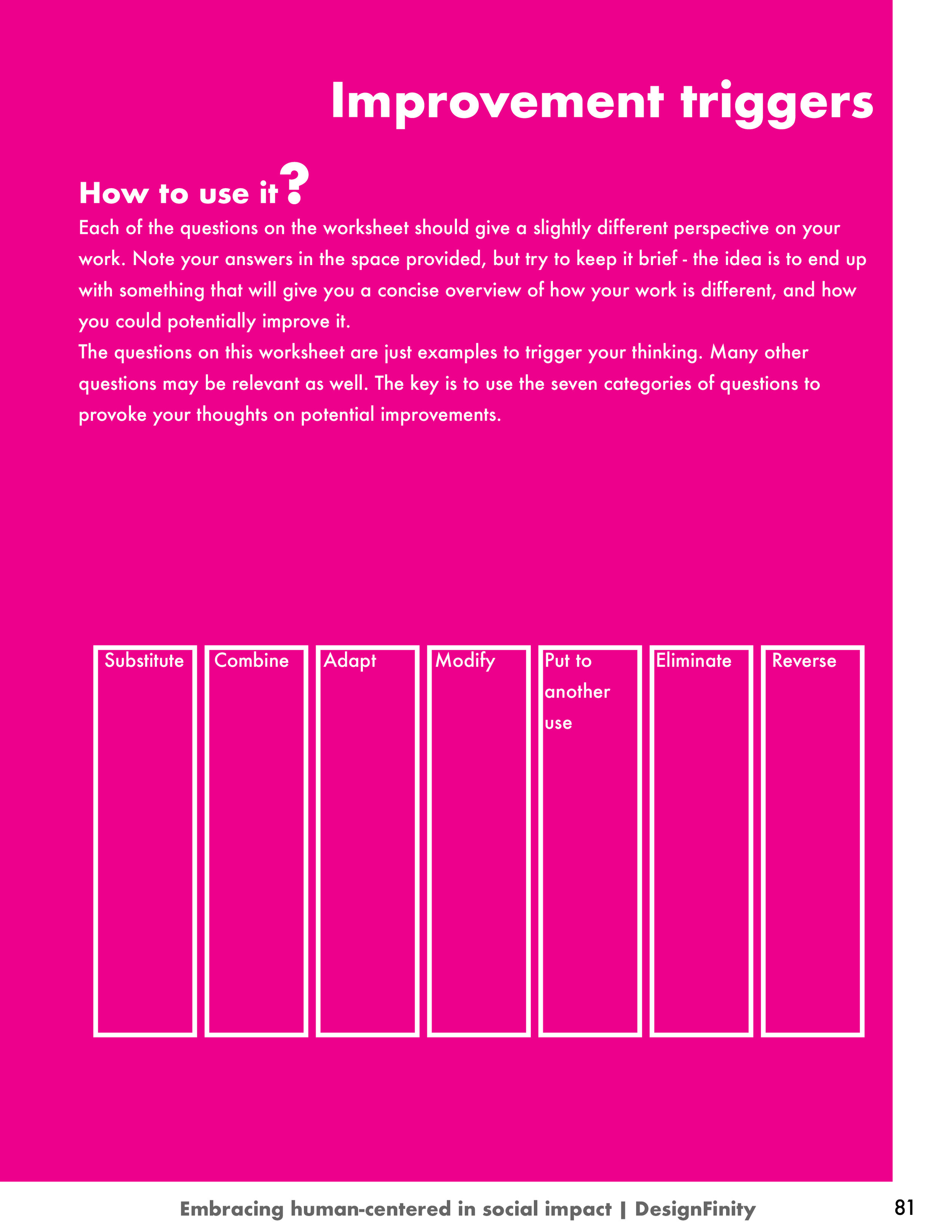
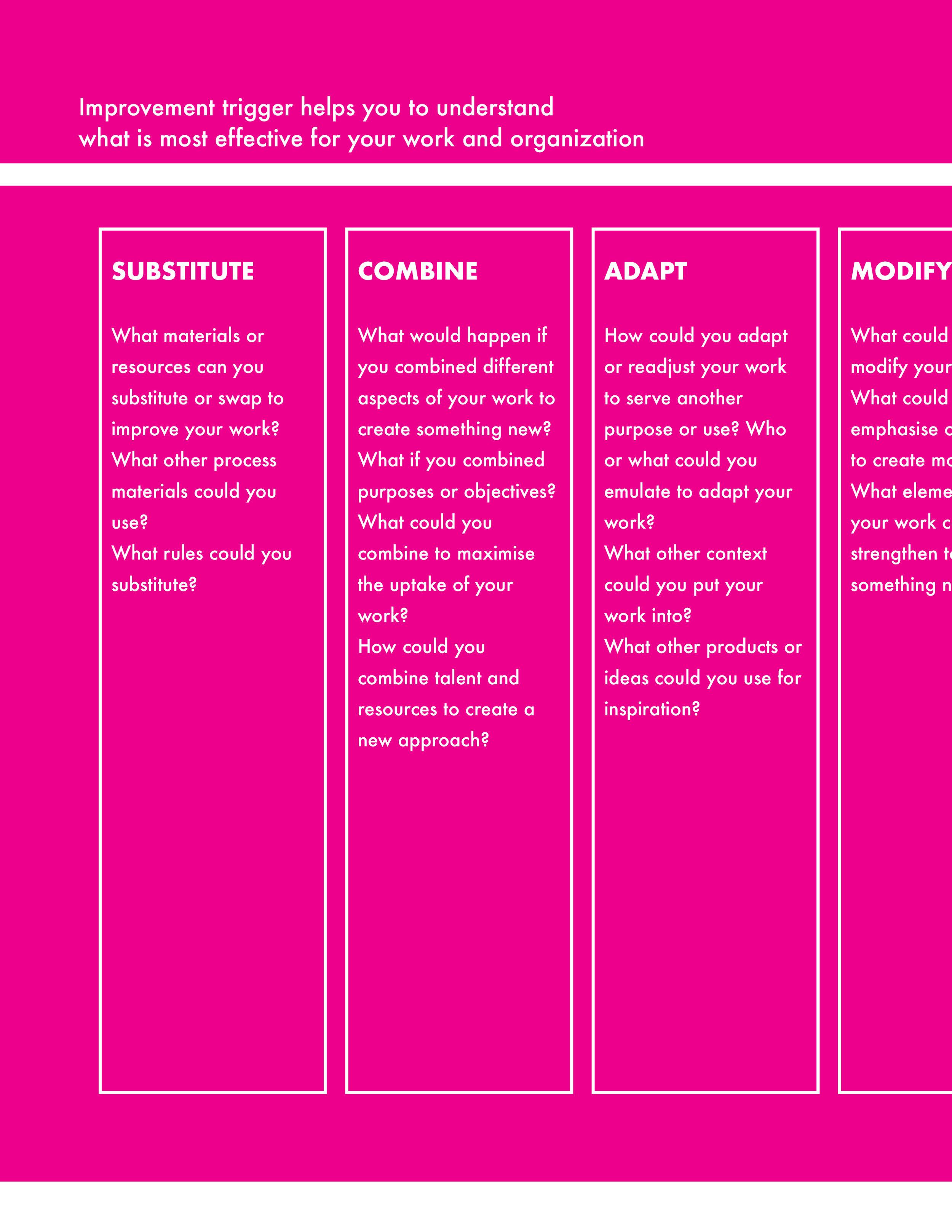
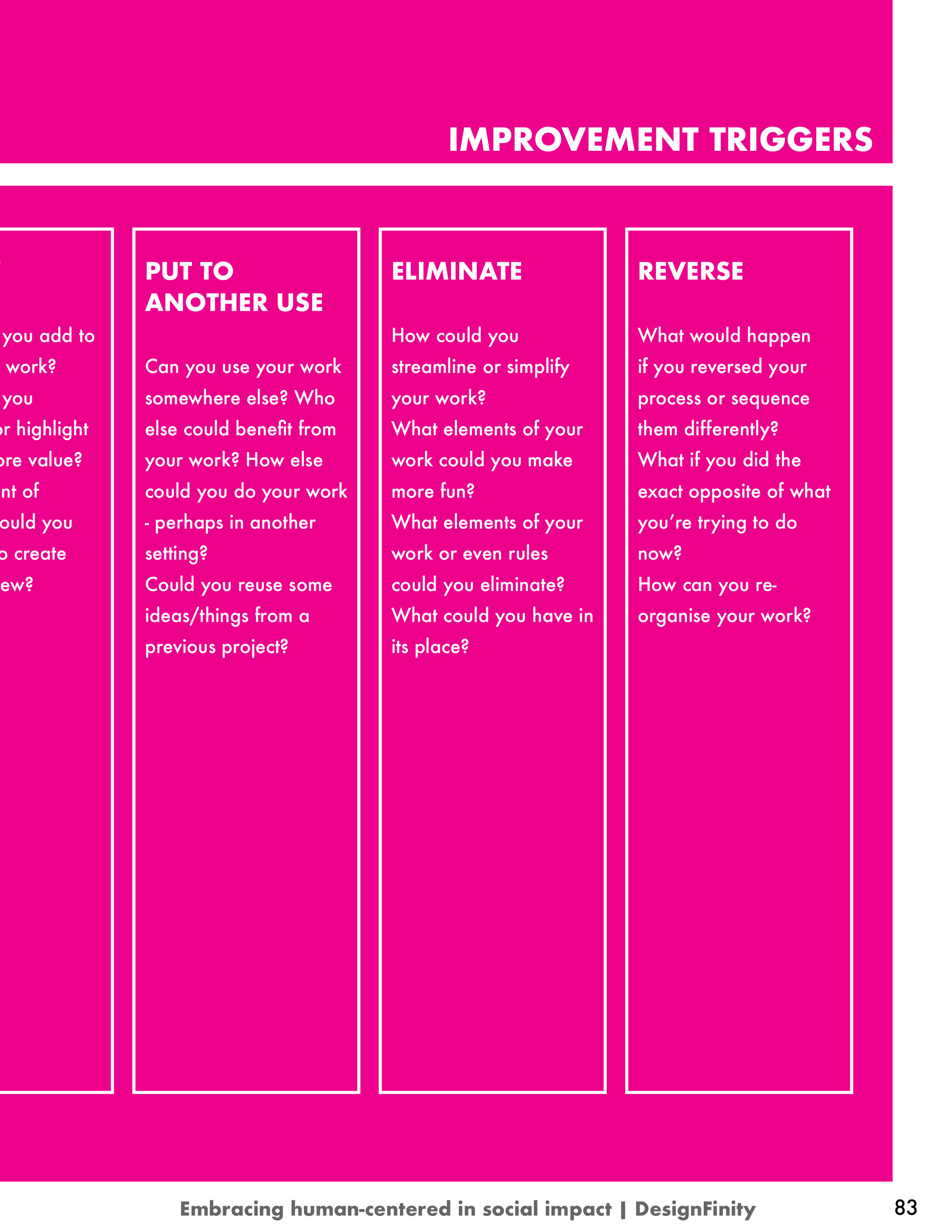
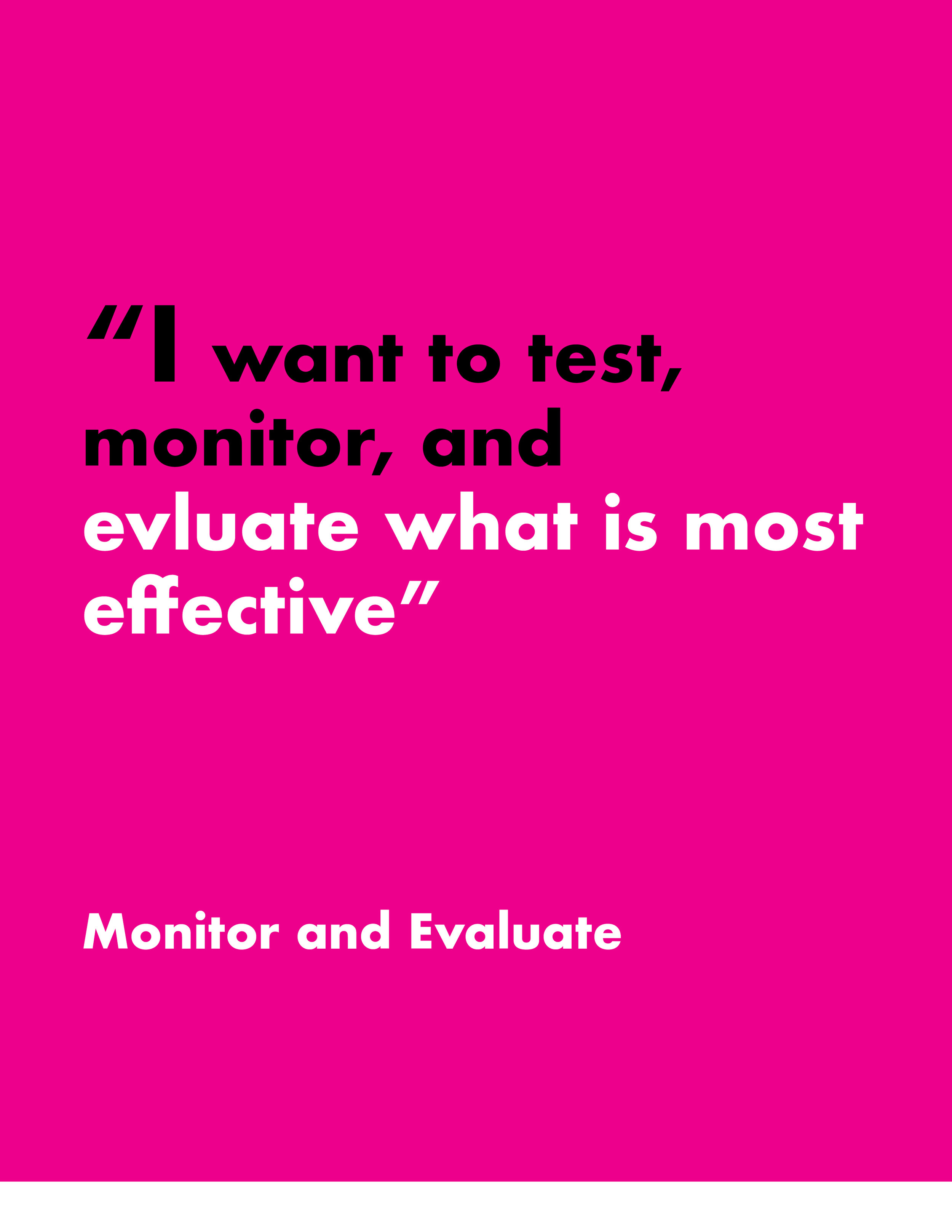
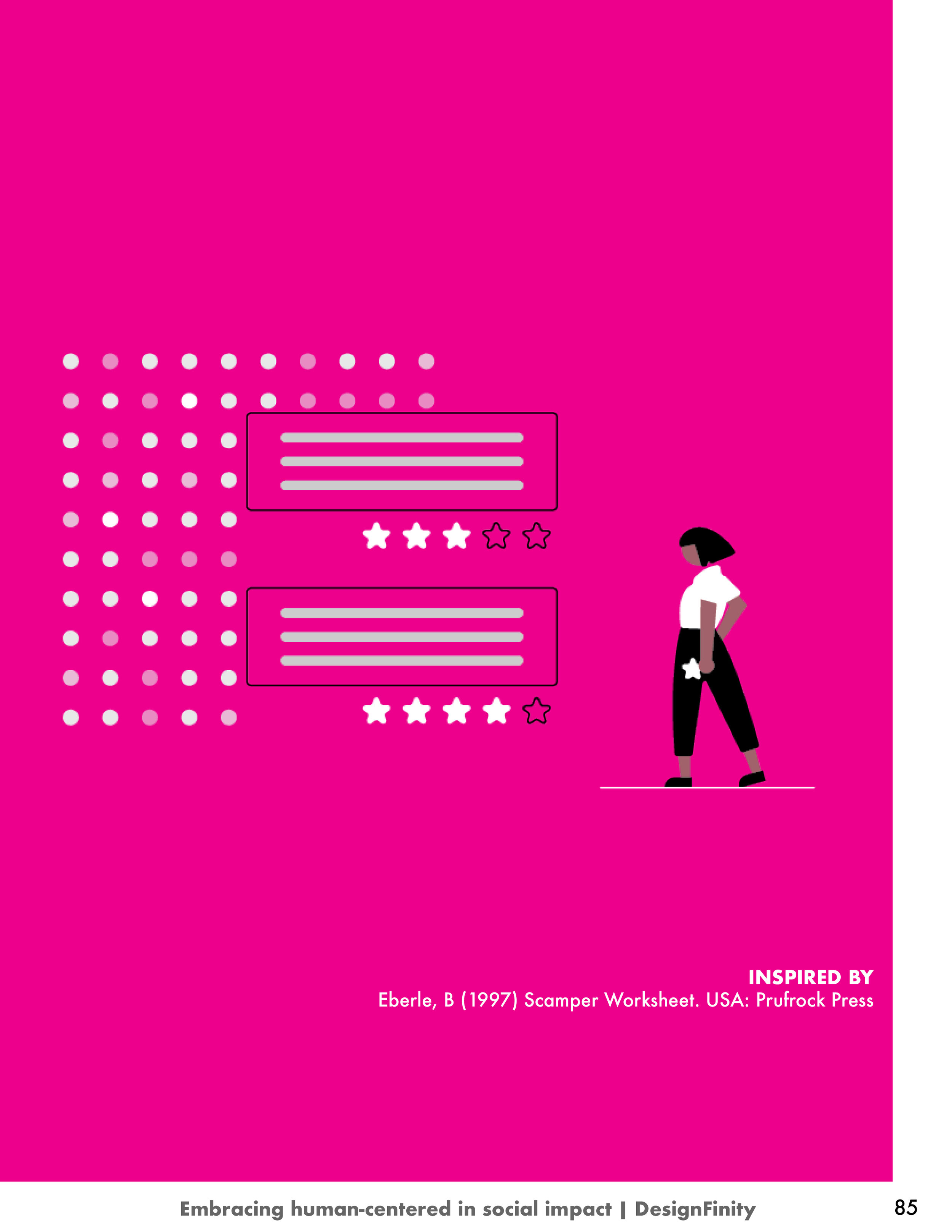
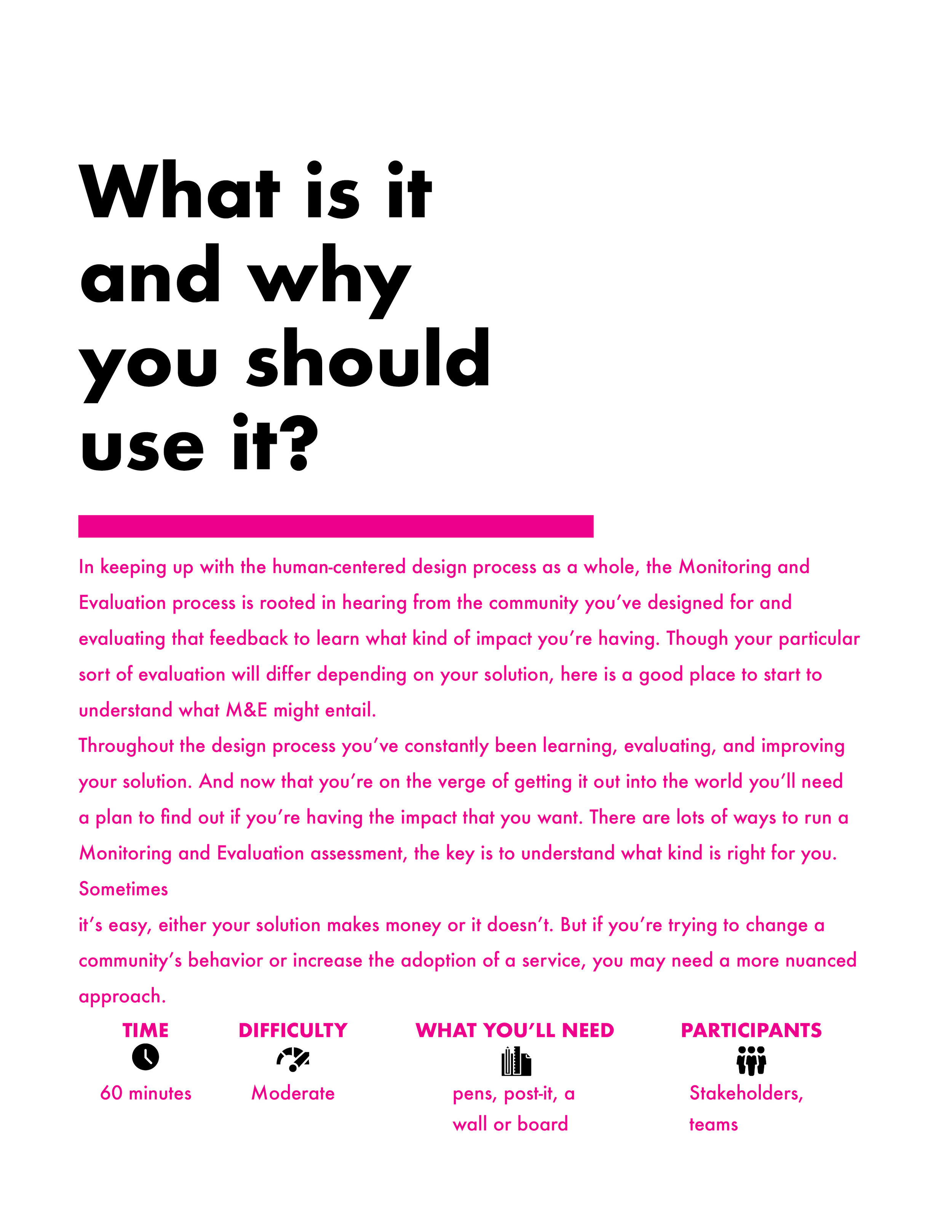
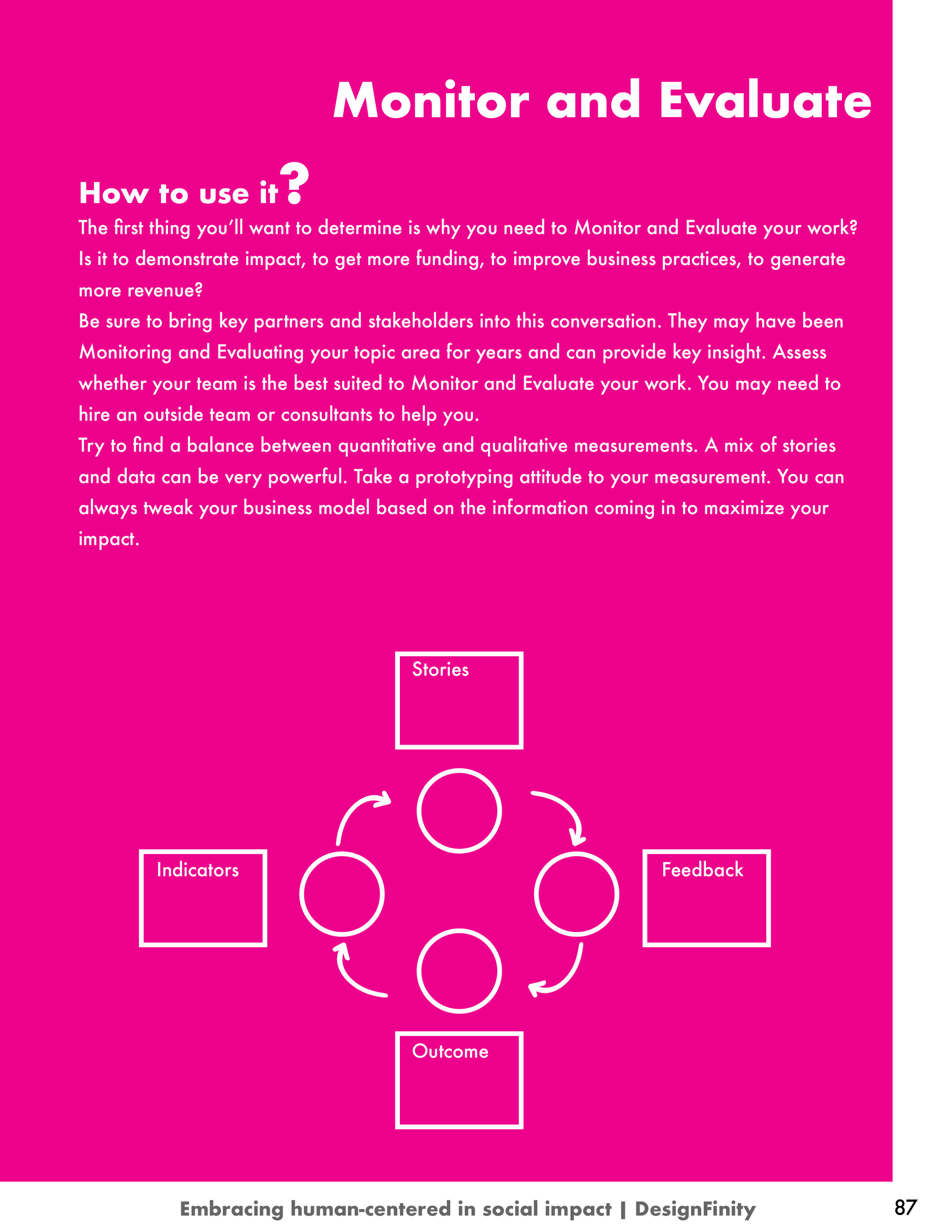
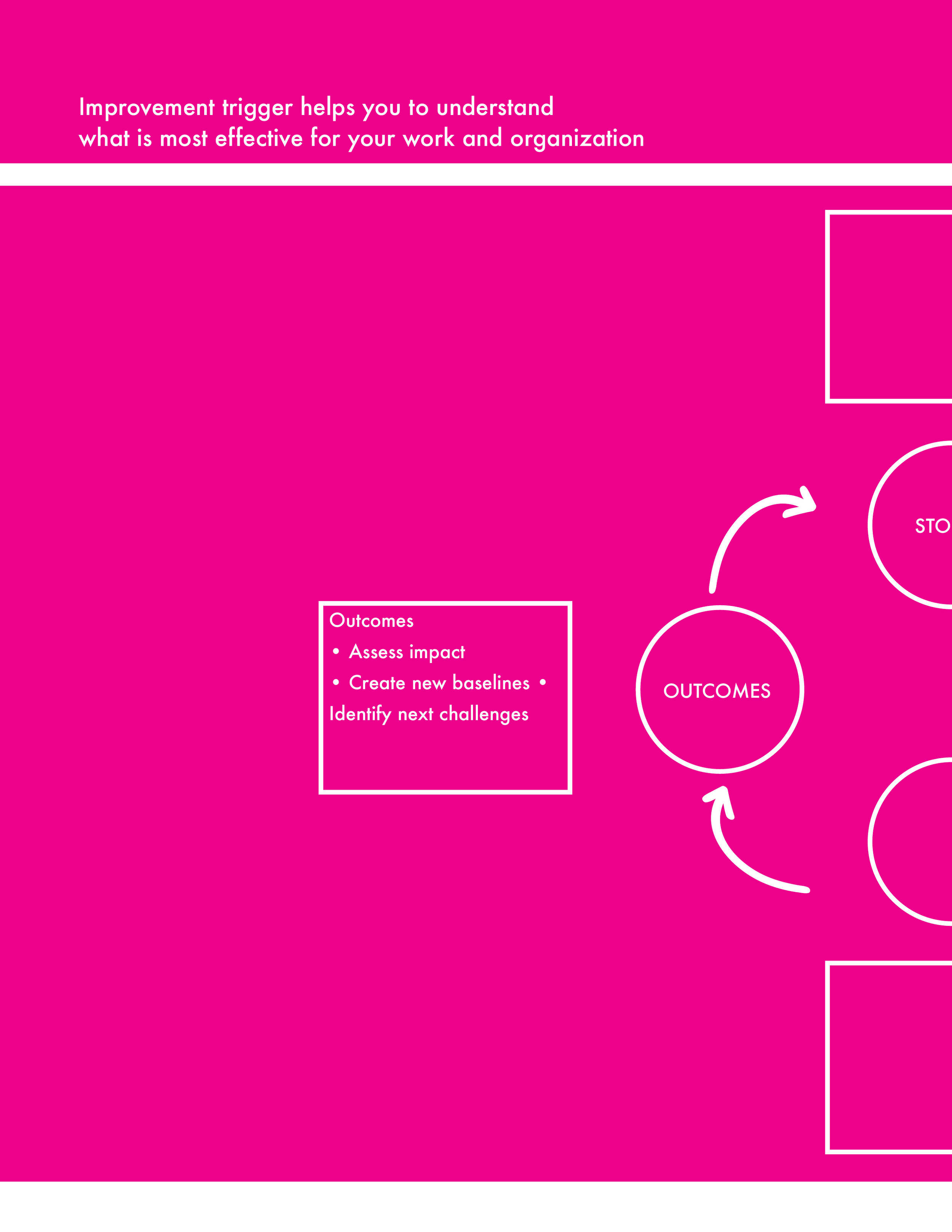
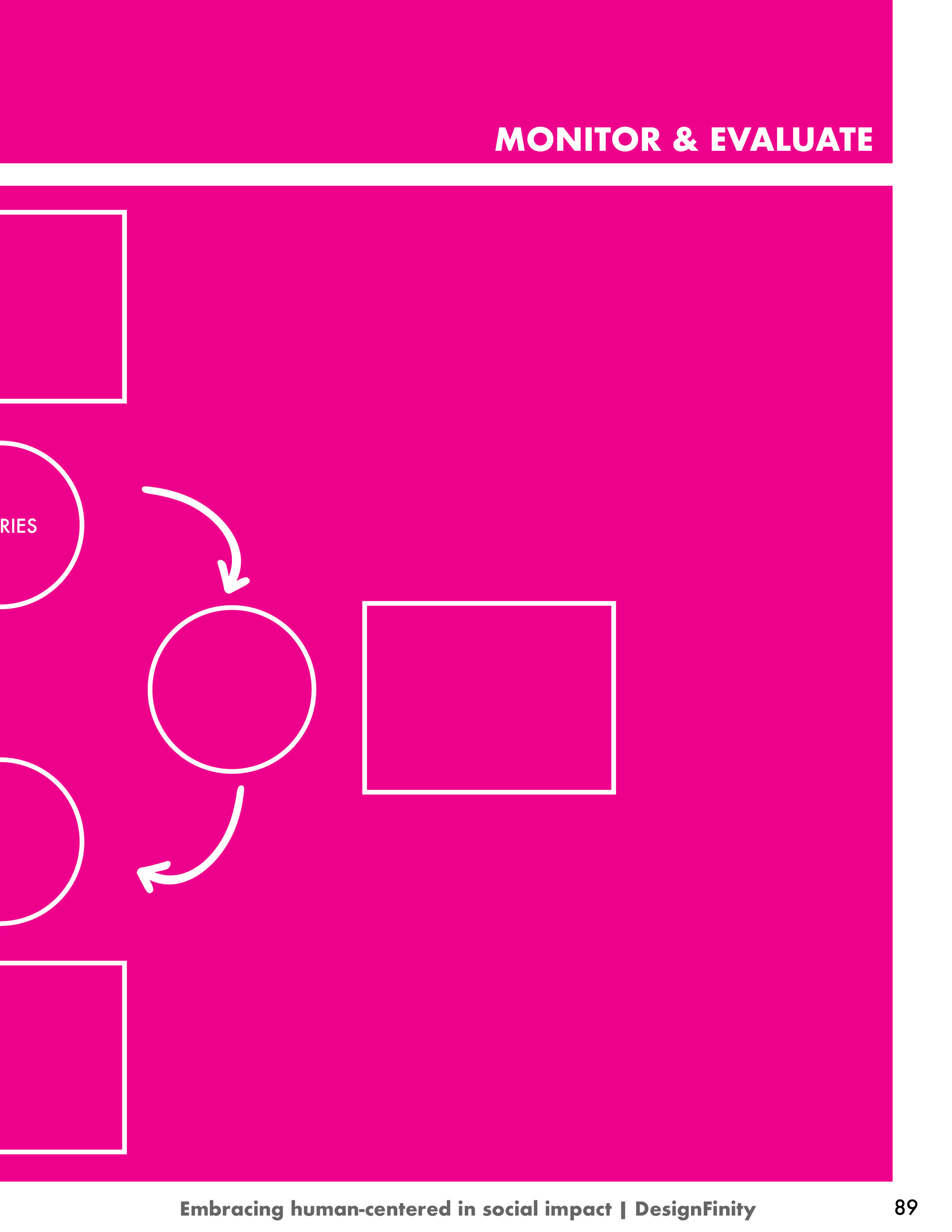
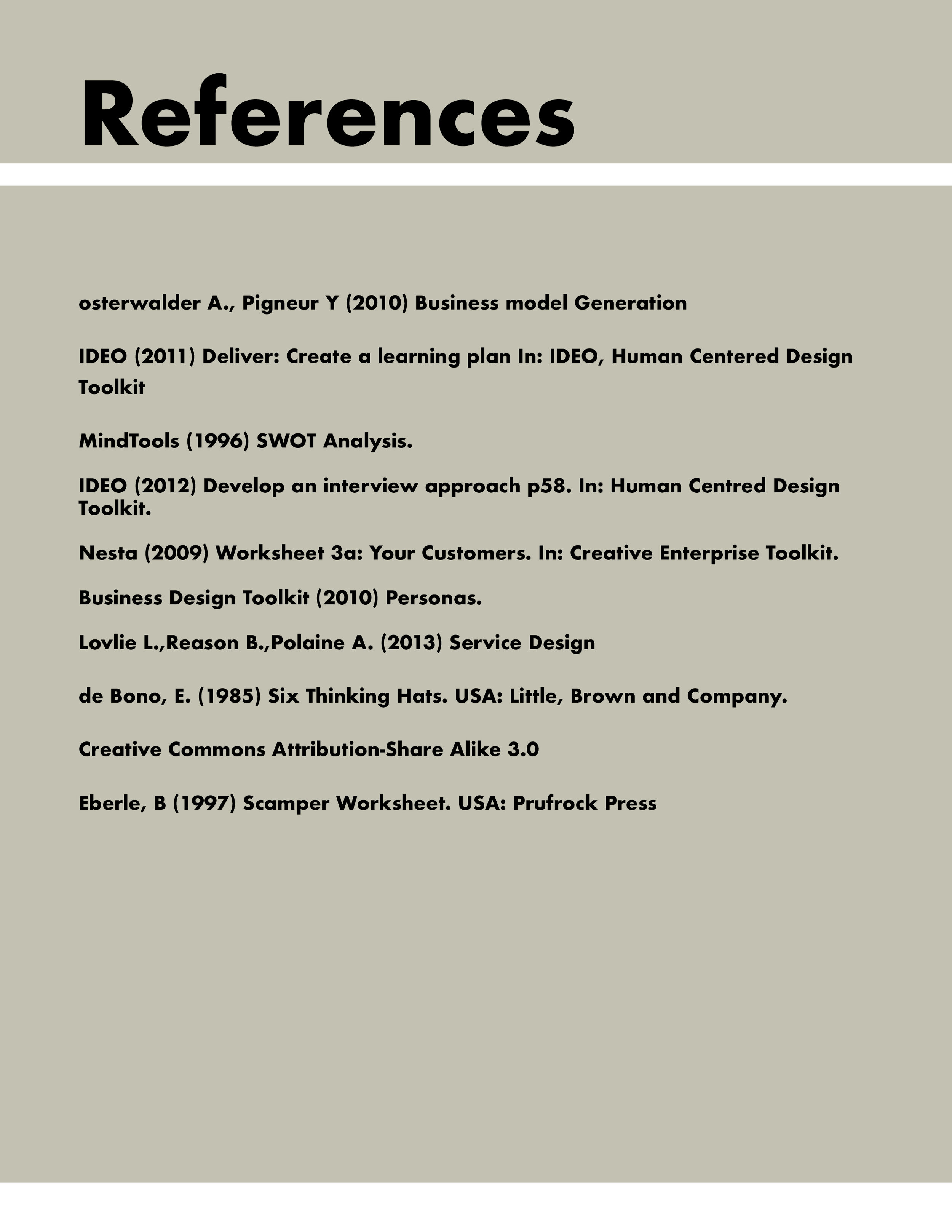
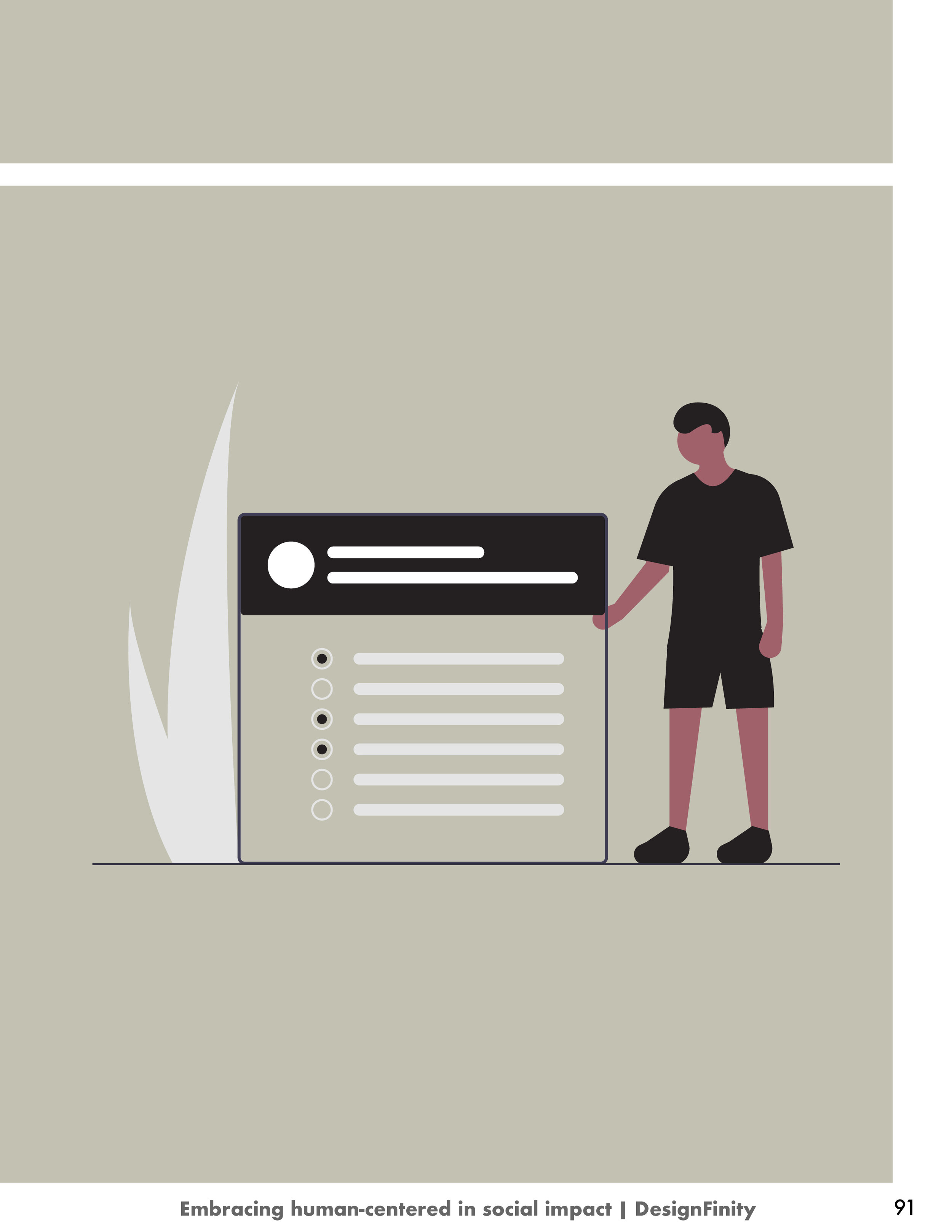

My learnings and takeaway
This project helped me understand my ability as a design researcher and strategist. Initially, I was assuming a different area at its core issue with several other judgments, but retaining the purpose of understanding and being unbiased helped me identify not just a secure problem area but also a solution that could make a difference. The research process was challenging as I had constant learning from different stakeholders throughout this project.
COVID-19 did affect the design approach, but I was able to identify my ability to move and find a potential solution by conducting the virtual workshop. As I progressed towards a design solution that was more fulfilling through the toolkit, I learned how to make a toolkit prototype and eventually make it as a final deliverable within three weeks. This project challenged me the most as it was an individual project but made me a flexible and robust designer who can find the best possible solution to any problem within a limited time constrain























































